Food Africa Business
HIGHLANDS DRINKS LTD
CEO Joachim Westerveld on how to build on legacy to create a modern and successful soft beverage company



AFRICA INFANT FORMULA MARKET
TRENDS IN MALT DRINKS
PROCESSING
INVESTMENTS IN AFRICA RETAIL INDUSTRY
MONK FRUIT AS A SUGAR ALTERNATIVE
WWW.FOODBUSINESSAFRICA.COM YEAR 10 | ISSUE NO. 57 MAY/JUNE 2023 AFRICA’S NO.1 FOOD & BEVERAGE INDUSTRY MAGAZINE
SCAN ME
OBIPEKTIN from APECX is a natural fibre, which is mainly obtained from apples and citrus fruits. It offers natural gelling, thickening and stabilising properties. OBIPEKTIN can complement or even replace other texturising ingredients in many applications – highly functional and very versatile.

Advantages of OBIPEKTIN from APECX
Flexible pectin with versatile use
Perfect texture and mouthfeel for food and beverage products
Plant-based, suitable for vegetarians and vegans
Halal, kosher, non GMO, FSSC 22000 certified
V E R S A T I L E P E C T I N F O R N A T U R A L G E L L I N G , T H I C K E N I N G A N D S T A B I L I S A T I O N
www.apecx.ag
Pearl Dairy: Lato Instant Porridge | Brookside
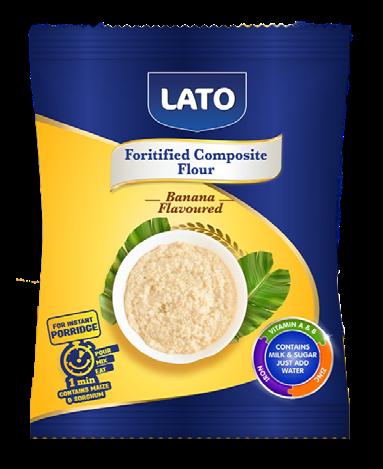
Dairy: Plant based milk | Jetlak Foods Limited:


Frosti Fruit Drink | Bakhresa Group: Azam O’cream

Icecream | Bounty Kenya Limited: Non-Alcoholic

wine & Energy Drink | Kitui Flour Mills: Dola

Vegetable Cooking Oil


45 Beverage makers expand malt drink options as African consumers rediscover their lost passion

51 Monk fruit presents itself as a viable natural alternative to sugar

56 Retail in Africa is a bag full of opportunities steeped in immense challenges
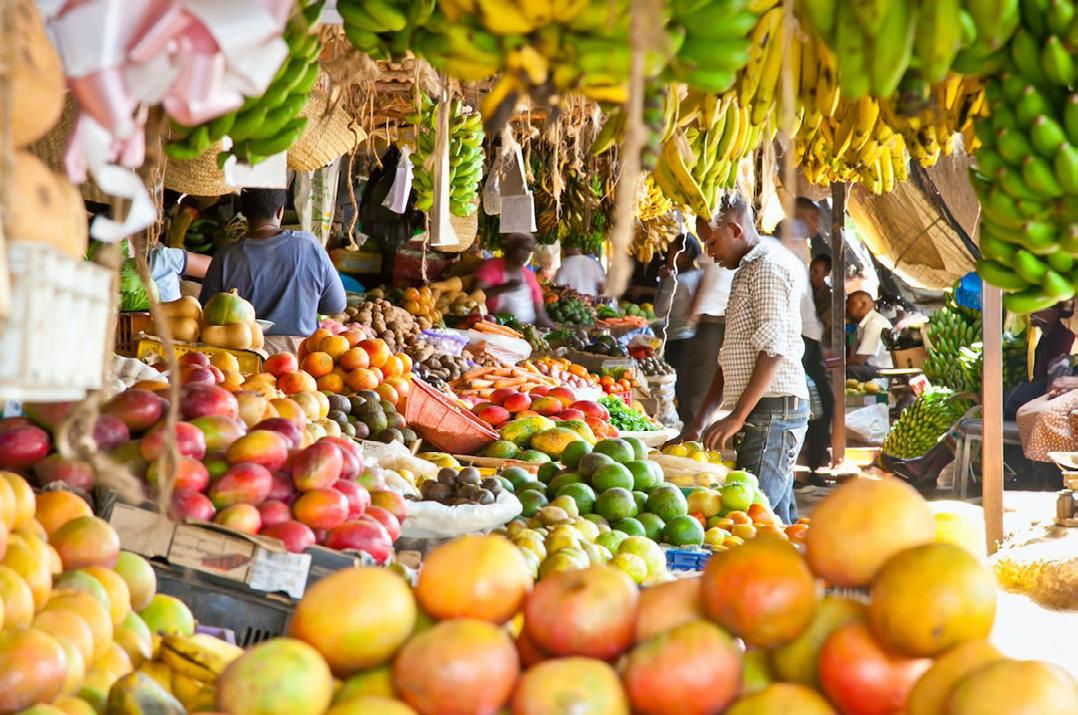
FOODBUSINESSAFRICA.COM MAY/JUNE 2023 | FOOD BUSINESS AFRICA 1 CONTENTS DAIRY BUSINESS AFRICA 39 Infant milk formula popularity is on the rise in Africa despite sustained efforts to limit its use
TECH AFRICA
BEVERAGE
FOOD INGREDIENTS AFRICA
MARKET TRENDS
REGULARS 4 Editorial 10 News Update 26 Appointments Update 62 Supplier News & Innovations
Innovations:
32 New Product
YEAR 10 | ISSUE NO. 57 MAY/JUNE 2023
30
My Company Profile: Highlands Drinks Ltd
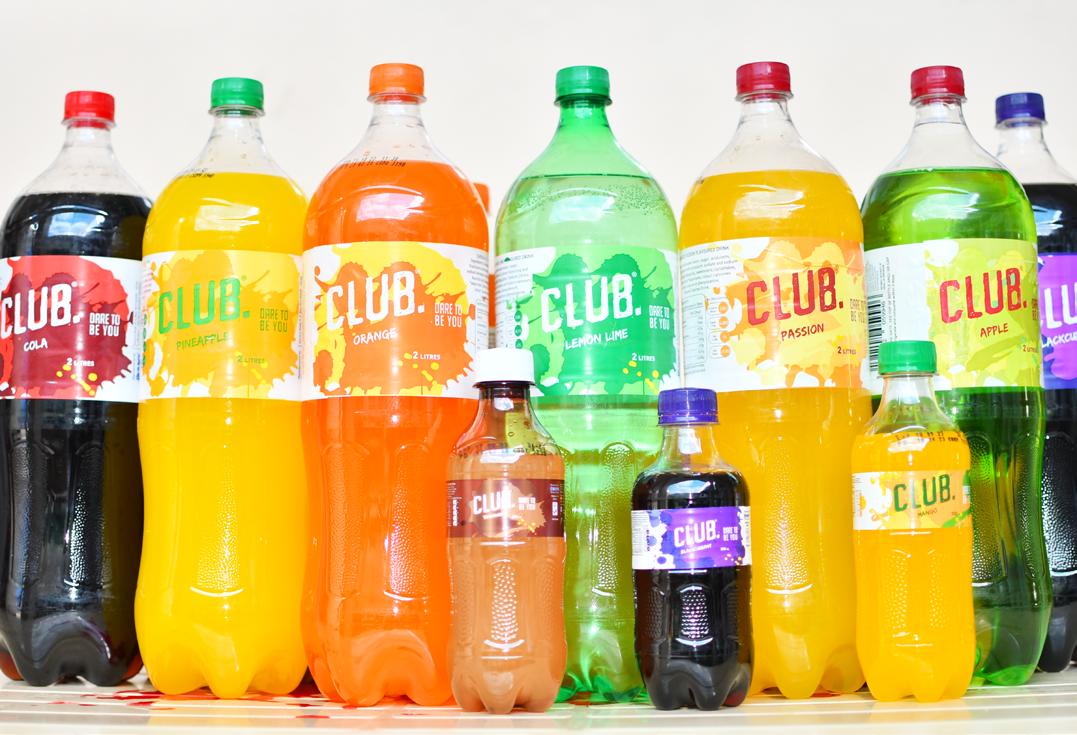

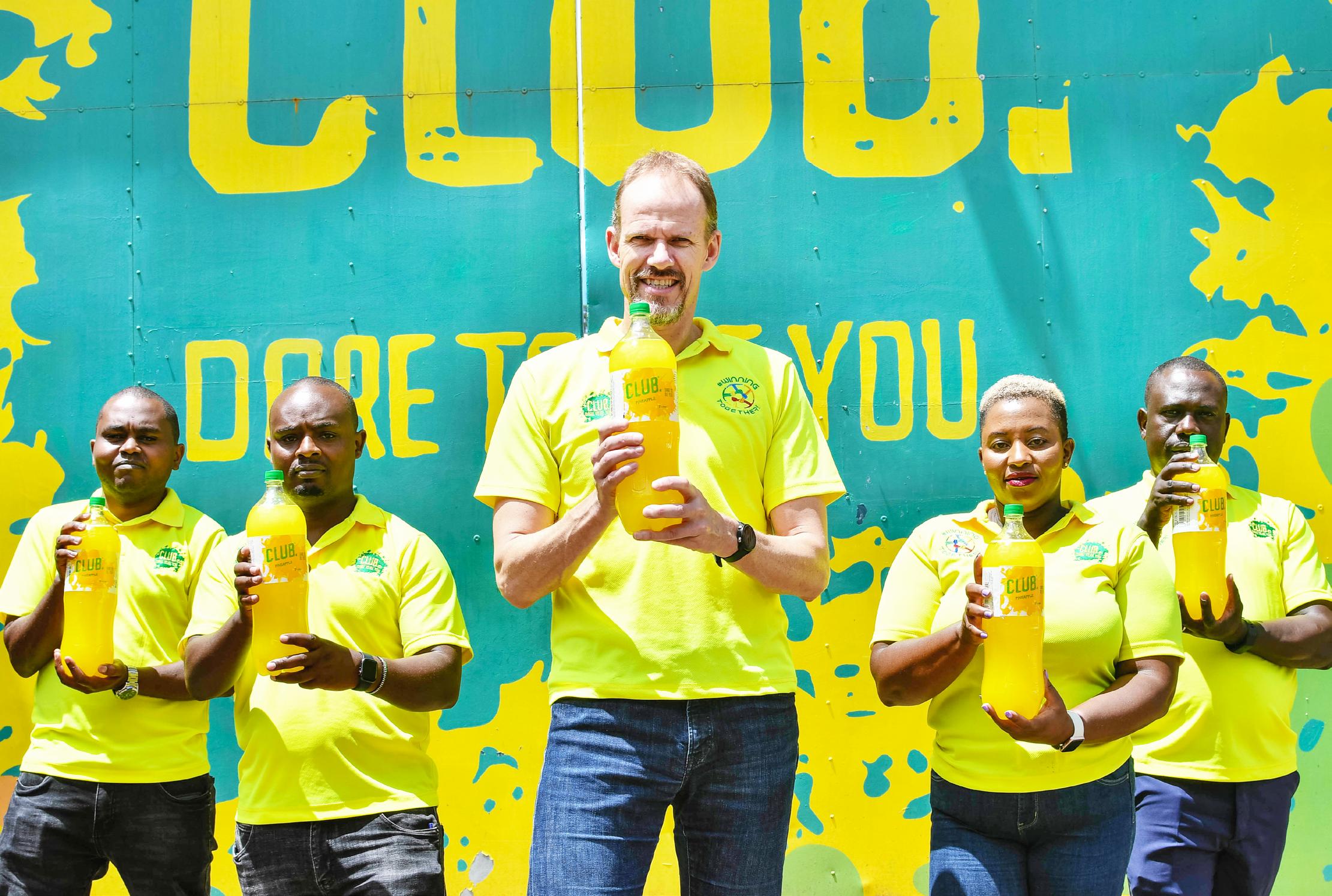
Highlands is a Kenyan company manufacurting and marketing non-alcoholic beverages, with a history spanning 69 years. Provides
8 Events Calendar
MAY/JUNE 2023 | FOOD BUSINESS AFRICA FOODBUSINESSAFRICA.COM 2 ON THE COVER -
you a highlight of the key food industry events in Africa and the Middle East
CONTENTS YEAR 10 | ISSUE NO. 57 MAY/JUNE 2023
Joachim Westerveld, CEO, Highlands Drinks Ltd

Yes! Now everyone can enjoy delicious yoghurts PALSGAARD ® ACIDMILK SERIES Shelf-stable ambient yoghurts are the future of the category. Bring the joys of creamy, fruity yoghurts to consumers all over your market. Find out more at www.palsgaard.com/ambientyoghurt BRINGING GOOD THINGS TOGETHER By using the Palsgaard ® AcidMilk series of emulsifier and stabiliser blends in your yoghurt production, you can produce shelf-stable products that are easier to distribute and not reliant on a stable cold-chain. The Palsgaard ® AcidMilk series works for set, stirred and drinkable yoghurts. Simplify your distribution chain No UHT process required Maximise your products’ shelf-life
FOUNDER & PUBLISHER
Francis Juma
SENIOR EDITOR
Paul Ongeto
EDITOR
Abel Ndeda
ASSOCIATE EDITOR
Alphonce Okoth | Martha Kuria | Mary Wanjira
BUSINESS DEVELOPMENT DIRECTOR
Virginia Nyoro
BUSINESS DEVELOPMENT ASSOCIATE
Hellen Mucheru
HEAD OF DESIGN
Clare Ngode
VIDEO & DESIGN ASSISTANT
Newton Lemein
ACCOUNTS
Jonah Sambai
PUBLISHED BY: FW Africa

P.O. Box 1874-00621, Nairobi Kenya
Tel: +254 20 8155022, +254725 343932
Email: info@fwafrica.net
Company Website: www.fwafrica.net
Food Africa Business Food Africa Business
Be inspired to do more at Africa’s inaugural food industry week
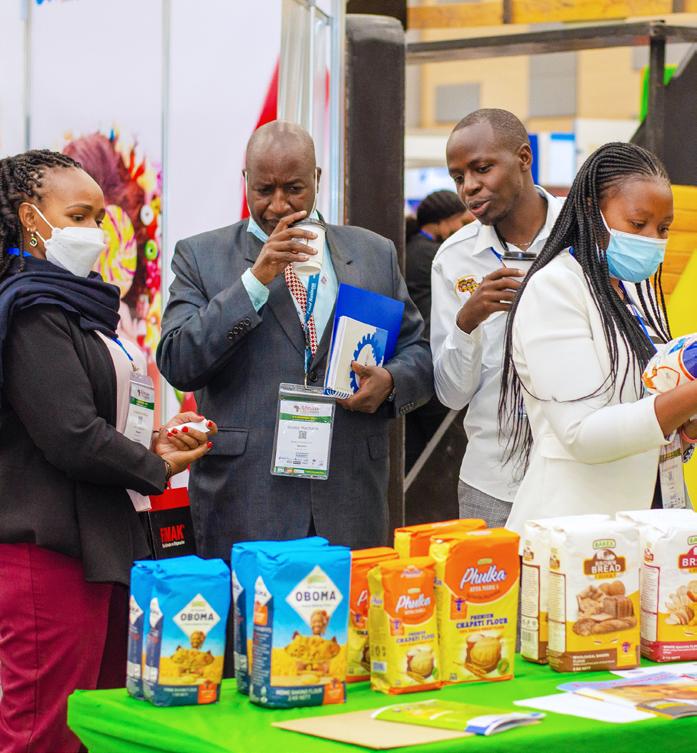
Welcome to our 57th issue of Food Business Africa Magazine. This issue launches shortly before the inaugural Africa food industry week that promises to offer stakeholders inspiration to take food manufacturing in Africa to even greater heights.
The Africa Sustainability Symposium kicks off the week with top decision-makers in the Industry converging at the Safari Park Hotel on June 13th to discuss the progress on sustainability and the latest innovations and technologies that mainstream sustainability in Africa and globally.
From the symposium, all focus will switch to the Sarit Center where the longest-running pure-play food, beverage, and milling industry trade show in the Eastern Africa region will be happening as from June 15th to 17th.
The expo will be co-located with Africa Food Safety & Nutrition Summit which will focus on shedding light on the opportunities, challenges, and market trends in Africa’s food safety, quality, and food systems landscape.
We hope to see you at either one or all of the above events.
Inside this edition, you will find a detailed overview of the retail industry in Africa and what trends will inform its transformation in future.
Elsewhere in the magazine, we highlight the story of Highlands Drinks Limited as it celebrates its 69 years of refreshing Kenyans with best-tasting drinks at affordable prices.
We also take a deep dive into the infant nutrition market in Africa as well as bring you the latest trends in the African malt drink industry.
Food Business Africa (ISSN 2307-3535) is published 6 times a year by FW Africa. Reproduction of the whole or any part of the contents without written permission from the editor is prohibited. All information is published in good faith. While care is taken to prevent inaccuracies, the publishers accept no liability for any errors or omissions or for the consequences of any action taken on the basis of information published.

On the evening of Friday, June 16, we shall go back to the iconic Safari Park Hotel to celebrate the people, new product innovations, sustainability initiatives, and leading companies in Africa’s food industry at the Africa Food Awards.
With a host of other insightful articles and the latest news from the food industry, we hope that you enjoy your read.
Paul Ongeto, Senior Editor FW Africa
MAY/JUNE 2023 | FOOD BUSINESS AFRICA FOODBUSINESSAFRICA.COM 4
Year 10 | Issue 2 | No.57 • ISSN2307-3535 EDITORIAL WWW.FOODSAFETYAFRICA.NET CEO BUSINESS AFRICA WWW.HEALTHCAREMEA.COM WWW.SUSTAINABLEPACKAGINGAFRICA.COM WWW.CEOBUSINESSAFRICA.COM OUR PUBLICATIONS
MILLING MIDDLE EAST & AFRICA AFRICA Packag ng SUSTAINABLE
WWW.FOODBUSINESSAFRICA.COM WWW.MILLINGMEA.COM
HealthCare MIDDLE EAST & AFRICA

Agrofood Ethiopia is Ethiopia’s leading trade show & conference on agriculture, food & beverage technology, food ingredients and food. Products like agricultural machines, farming tractors, harvesting equipment, analytical equipment, poultry equipment, milling and mixing installations/equipment, fish farming equipment, irrigation systems as well as food ingredients and finished food will be featured.
DATE: 08 - 10 June 2023
VENUE: Millennium Hall, Addis Ababa, Ethiopia
WEBSITE: www.agrofood-ethiopia. com
AFRICA
The Africa Sustainability Symposium is the first conference dedicated to the sustainability agenda across Africa. It brings together the key stakeholders in the private sector, government ministries and agencies; NGOs and development organisations; academic and research institutions; suppliers of various technologies and the general public to define the sustainability agenda in Africa.
DATE: 13 June 2023
VENUE: Safari Park Hotel, Nairobi, Kenya
WEBSITE: www. africasustainabilitysymposium.com
The Food & Beverage West Africa is the premier exhibition dedicated to West Africa's food and beverage industry. The event provides the attendees with a fantastic opportunity to exhibit new food and drink products and to build better business connections across the grocery, catering and wider F&B industry in Nigeria and beyond.
DATE: 13 - 15 Jun 2023
VENUE: Landmark Centre, Lagos, Nigeria
WEBSITE: www.fab-westafrica.com
The Summit is focused on shedding light into the opportunities, challenges and market trends in Africa’s food safety, quality and food systems landscape, with attendees expected from more than 60 countries in Africa and the World, virtually and in person.


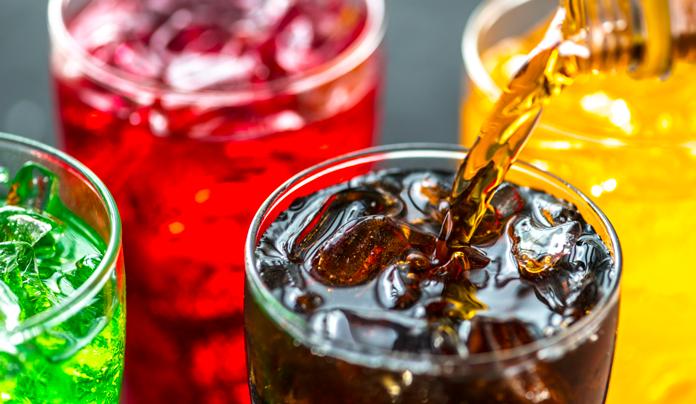


DATE: 15 - 17 June 2023
VENUE: Sarit Expo, Nairobi, Kenya
WEBSITE: summit.foodsafetyafrica. net
AFMASS Food Expo showcases the latest products from small, medium and large food companies and an array of equipment, packaging, ingredients, laboratory technology and other supply chain solutions from Africa and the World. With a mix of food manufacturers, retailers, distributors, importers and exporters plus some of the leading suppliers of new technologies to the food industry, this is the perfect trade show to discover the present and future of the food industry in Africa.
DATE: 15 - 17 June 2023
VENUE: Sarit Expo, Nairobi, Kenya
WEBSITE: www.afmass.com
Grains Africa is undeniably eminent for an international trade fair which brings together Processors, growers, Sellers & Buyers in considering to indulge in the latest in the industry including the bright aspects of Flour, Silos, Cereals, Beans, Legumes, Rice, Graders & Sorters, Processing Machinery, Weighing Equipment & Machinery, Sugar, Milling & Packaging, etc.

DATE: 15 - 17 June 2023
VENUE: UMA Show Ground, Kampala, Uganda
WEBSITE: mxmexhibitions.com/ grainsafrica_uganda
FOOD & BEVERAGE WEST AFRICA AGROFOOD ETHIOPIA AFRICA FOOD SAFETY SUMMIT
AFMASS FOOD EXPO
SUSTAINABILITY SYMPOSIUM
GRAINS AFRICA - INTERNATIONAL TRADE SHOW ON GRAINS & TECHNOLOGY
EVENTS CALENDAR MAY/JUNE 2023 | FOOD BUSINESS AFRICA FOODBUSINESSAFRICA.COM 6
AFRICA FOOD AWARDS
5TH GLOBAL DAIRY CONGRESS AFRICA 2023
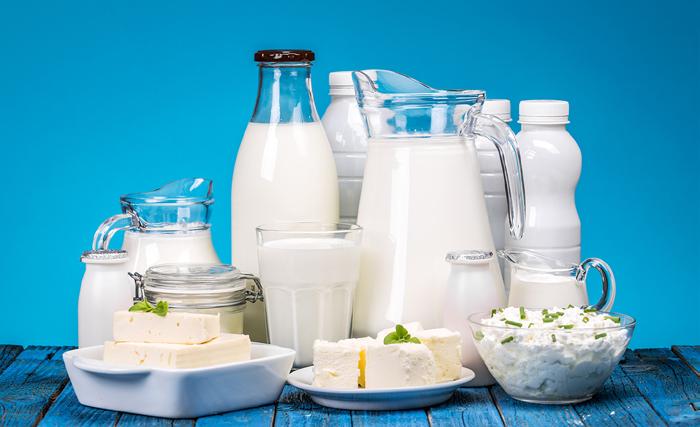
GCCA SOUTH AFRICAN COLD CHAIN CONFERENCE
The Africa Food Awards have become sub-Saharan Africa’s most respected food industry Awards process and ceremony – since the first edition in 2017. The awards celebrate the people, new product innovations, sustainability initiatives and leading companies in Africa’s food industry.

DATE: 16 June 2023
VENUE: Safari Park Hotel, Nairobi, Kenya
WEBSITE: www.agrikexpo.com
The 5th Global Dairy Congress Africa 2023 aims to promote African milk production and technology upgrading through international cooperation and communications. The conference will share the first-hand information on World and African latest dairy status and trends, accelerate African dairy technologies upgrading, and enhance African dairy availability and affordability.
DATE: 20-21 June, 2023

VENUE: Nairobi, Kenya
WEBSITE: www.szwgroup.com/ global-dairy-congress-africa
The South African Cold Chain Conference is South Africa’s one and only venue bringing together cold store operators, distributors, manufacturers, producers, retailers, controlled-environment builders, equipment suppliers and service providers to discuss opportunities and innovations of this essential sector.

DATE: 02-04 Aug, 2023
VENUE: Century City Hotel, Cape Town, South Africa
WEBSITE: www.coldchainconference. org/gcca-south-africa-0
Africa's Big 7 brings together the best in the food & beverage business to identify growth opportunities and to close deals. It allows you to connect directly with buyers from across the African continent. Buyers attend to source products, develop new partnerships, and conclude export and import deals.
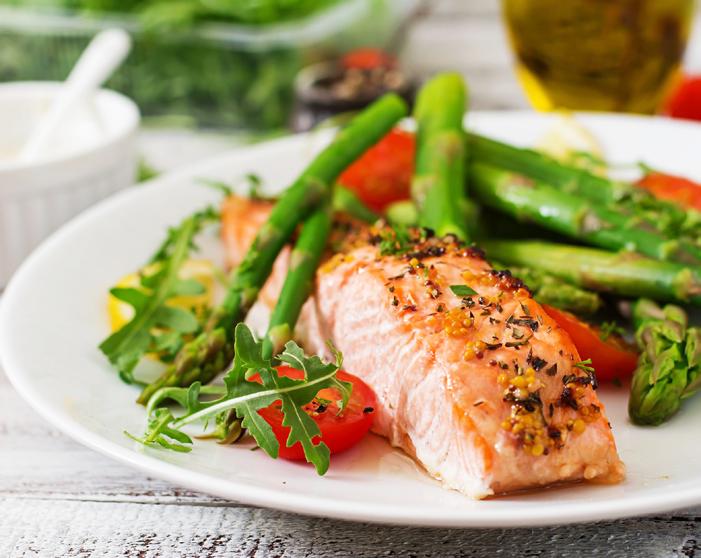
DATE: 18 - 20 Jun 2023
VENUE: Gallagher Convention Centre, Johannesburg, South Africa
WEBSITE: www.africabig7.com



The East Africa Bakery and Pastry Expo is a chance to learn about, make connections with, find, and trade the widest range of high-quality, cost-effective bakery ingredients, equipment, and related goods and services.
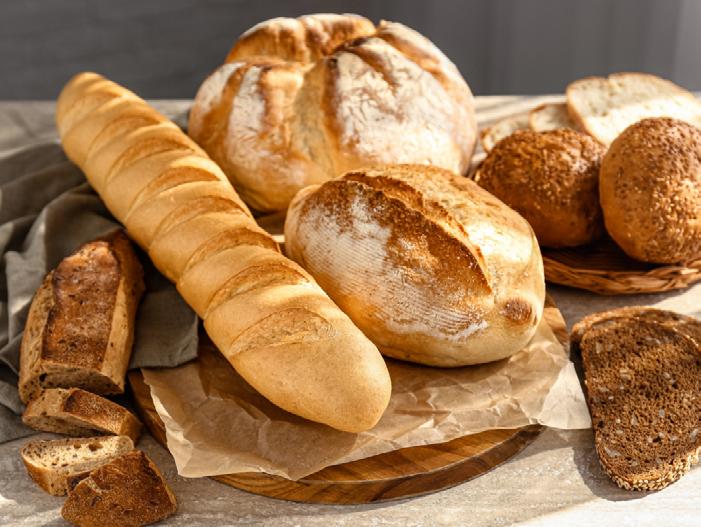
DATE: June 28 - 30 2023

VENUE: Sarit Expo, Nairobi, Kenya
WEBSITE: eastafricachef.com/eastafrica-bakery-and-pastry-expo-2021
EAST AFRICA BAKERY & PASTRY EXPO
CONNECT WITH US!
Follow Us Foodbizafrica Follow Us Foodbizafrica Like Food Business Africa Magazine Connect with us Food Business Africa Magazine
FOODBUSINESSAFRICA.COM MAY/JUNE 2023 | FOOD BUSINESS AFRICA 7
AFRICA'S BIG 7
by www.FoodBusinessAfrica.com
Kenya’s Agriculture and Food Authority introduces controversial sugarcane zoning in bid to stem off shortage
KENYA – The Agricultural and Food Authority of Kenya (AFA) has reintroduced the controversial zoning policy that restricts millers to only buy cane from their demarcated zones in an attempt to address the current acute shortage of the sweetener.
According to the AFA, restricting
millers to harvest of sugarcane in their select regions will help fight cane poaching which has been growing in the recent past and leading to conflicts.
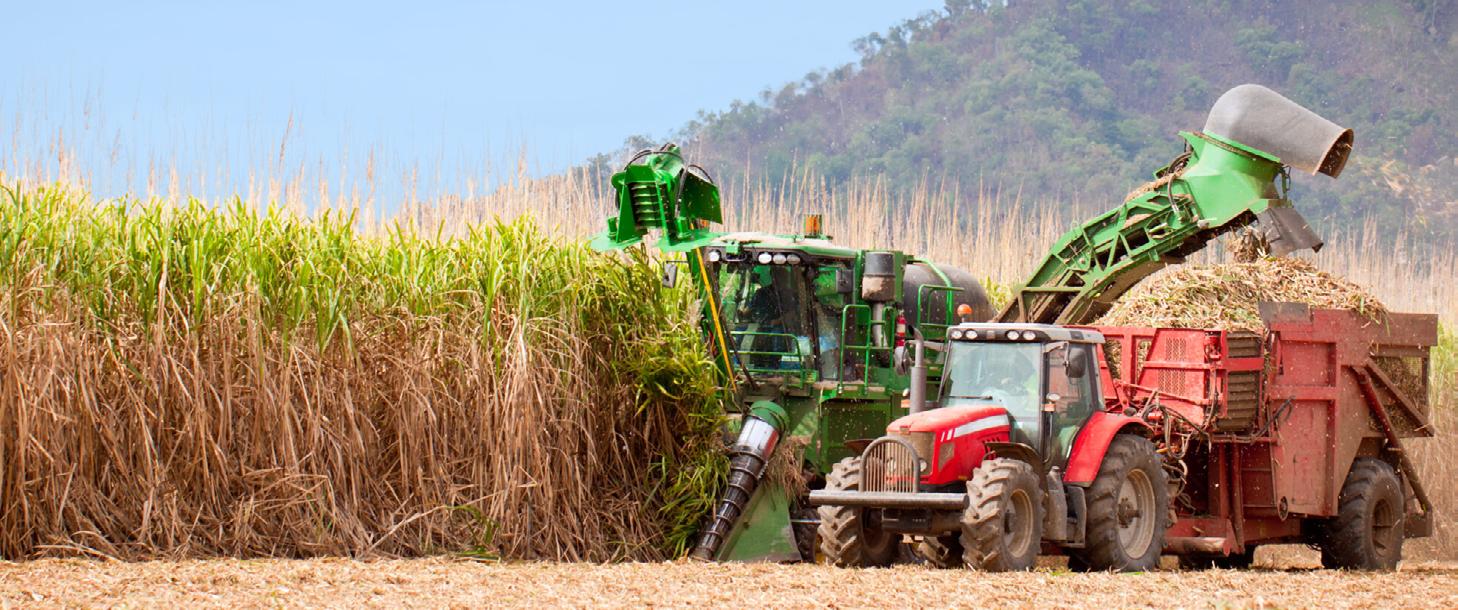
The authority has since announced the delineation of the sugar belt into six regions to limit conflicts and
Coca-Cola rebrands Minute Maid for the first time in juice brand’s 75-year history
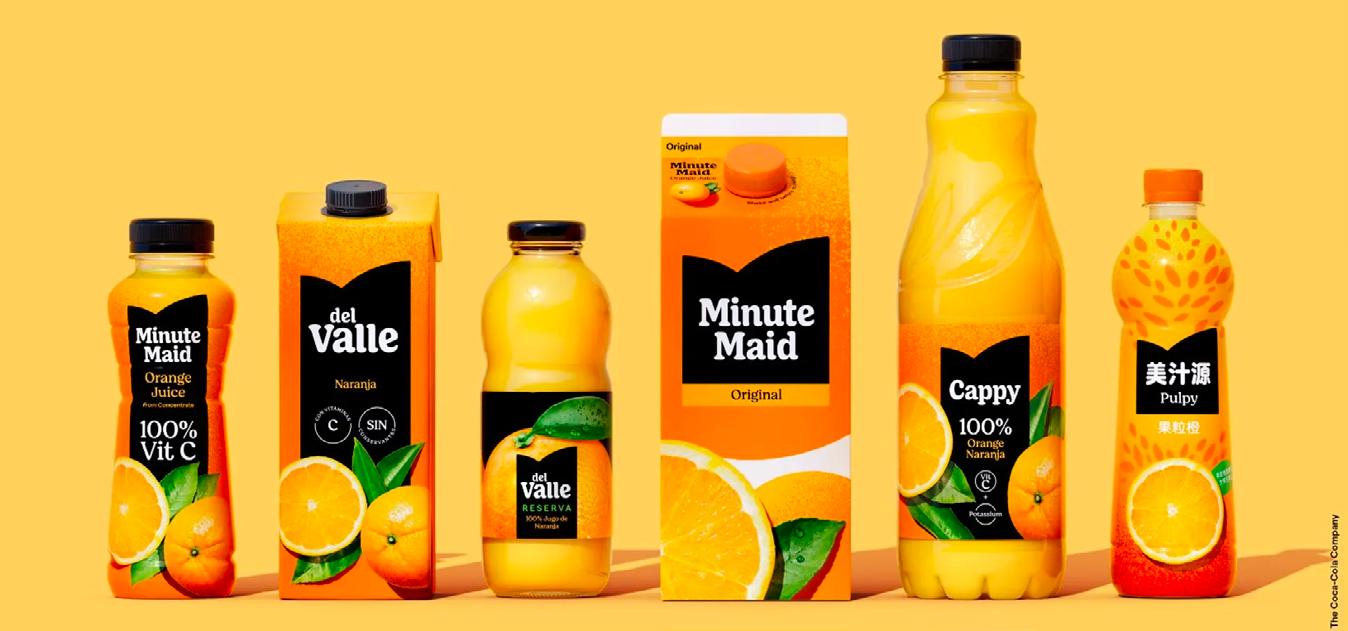
GLOBAL – The Coca-Cola Company, the world’s largest marketer of fruit juices and drinks, has made the firstever global rebrand for Minute Maid in more than 75 years of the juice brand being in the market.


Minute Maid debuted in 1946 as a year-round seasonal orange juice and grew to more than 100 countries, offering a diverse portfolio under different brand names.
While the names and the products will remain intact, the beverage giant said the full Minute Maid portfolio will sport a newly harmonized look for consistency and a refreshed visual identity for the global campaign.
The new visual identity is anchored
by a warm, lively color palette inspired by the bright tones of fresh, ripe fruit.
The rebranding has also brought about a softer, more natural typeface that breathes new energy into the
MAY/JUNE 2023 | FOOD BUSINESS AFRICA 8
NEWS UPDATES
STRATEGY REGULATORY FOODBUSINESSAFRICA.COM







JUNE 15-17, 2023 | Sarit Expo Centre, Nairobi, Kenya SIGN UP TO ATTEND EASTERN AFRICA'S LARGEST FOOD, BEVERAGE & MILLING INDUSTRY TRADE SHOW FOOD Afmass EXPO The Future of Food in Africa www.afmass.com 5000+ ATTENDEES 100+ EXHIBITORS AFRICA Food Safety SUMMIT Co-located with:
Tea management review to save Kenyan farmers US$5.8m yearly
1.5pc, a move that could give back the 8 million tea farmers over KES800 million (US$5.8m) charged by the MS every year.
The term for services offered by the KTDA-MS such as production, transportation, marketing, and management of accounts, among others has also been reduced from the current 10 years to 5 years, which is expected to enhance the accountability of the management agency.
In addition, there will be enhanced respect for farmers during and after the collection of their tea leaves and improved services in the collection of the produce from buying centers.
factories for the benefit of tea farmers.
Their spokesperson, John Mithamo, noted that the agency pays dividends to factories, and farmers will lose and may be subjected to unnecessary procedural management of their money if one percent of their sales went to other parties.
KENYA – Tea farmers in Kenya anticipate earning more from the sector following the completion of negotiations to review management agreements between smallholder tea factories and KTDA Management Service LTD.
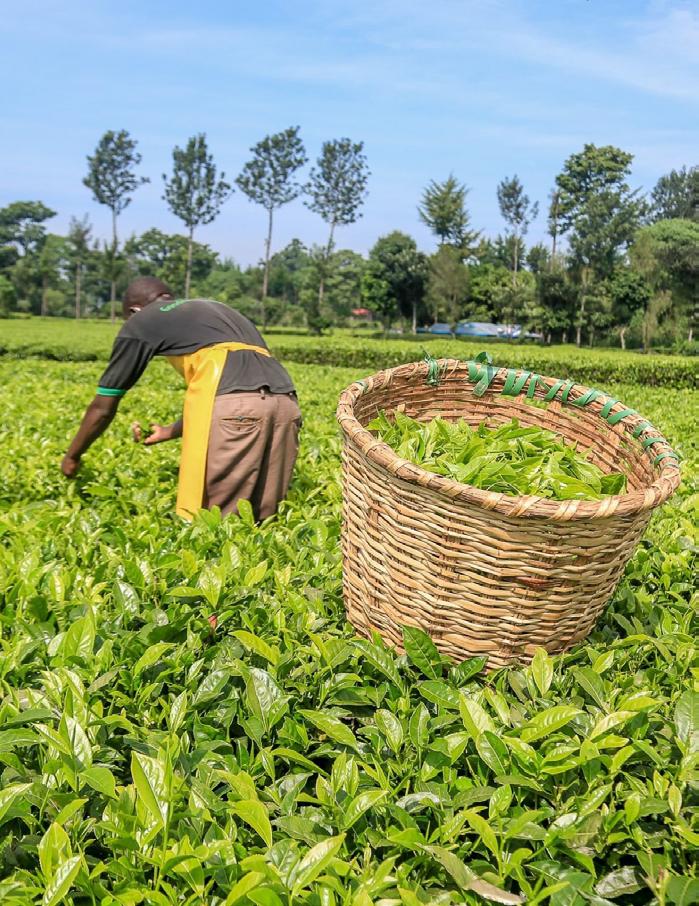
Under the new management agreement, charges have been reduced from the current 2.5pc to
According to KTDA chairman David Ichoho, tea farmers are significant economic pillars, and as such, more efforts are being put towards supporting the empowerment and improved returns for the farmers.
He noted that the review of the management agreements hopes to remedy the relationship between the parties involved in the tea sector and improve the management of tea
Nestle appoints new Chief Financial Officer as François-Xavier Roger steps down
USA – Nestlé has appointed Anna Manz as the company’s new Chief Financial Officer (CFO) after FrançoisXavier Roger stepped down from the position.

In the company’s press release, François-Xavier Roger, Executive Vice President, and Chief Financial Officer, who has served in the company for 8 years decided to step down and pursue new professional line .
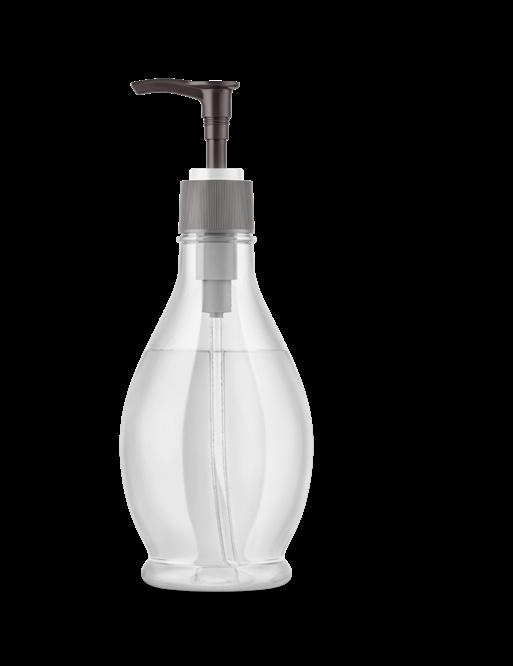
According to the CEO Mark Schneider, François has played a great role in shaping and implementing the company’s value creation
strategy enabling it to steer through a very turbulent macroeconomic environment.
Anna Manz, who is currently the Chief Financial Officer and a member of the Board for the London Stock Exchange Group (LSEG), will join Nestlé as CFO as soon as she is released from her present duties.
To ensure a smooth transition François-Xavier Roger will remain in his role until Anna Manz arrives where she will also become a member of the Executive Board of Nestlé S.A. as an Executive Vice President.

MAY/JUNE 2023 | FOOD BUSINESS AFRICA FOODBUSINESSAFRICA.COM 10
POLICY APPOINTMENT
NEWS UPDATES
UNDER THE NEW AGREEMENT, CHARGES HAVE BEEN REDUCED FROM THE CURRENT 2.5PC TO 1.5PC, A MOVE THAT COULD GIVE FARMERS OVER US$5.8M CHARGED BY THE MS EVERY YEAR.
TWO-STEP MOLDING CAN HELP YOU ACHIEVE:

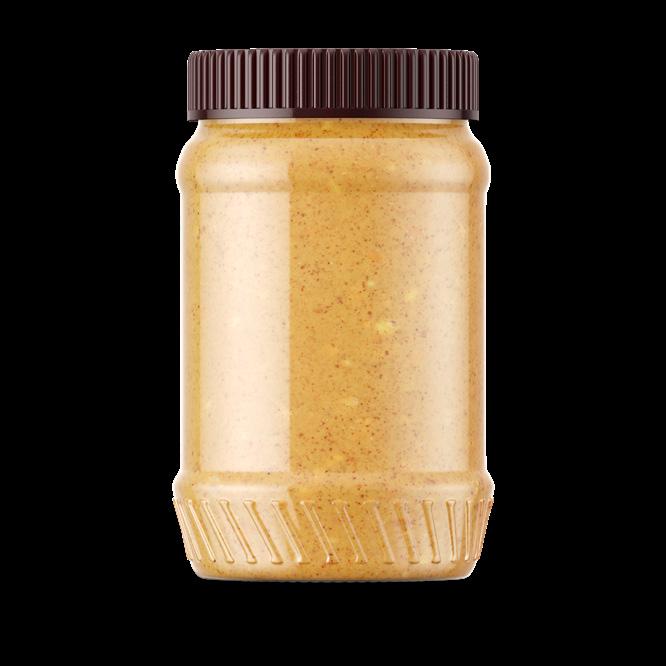
up to 20% Lower package part cost up to 20% Minimized package weight up to 9% Improved uptime Reduce initial CAPEX

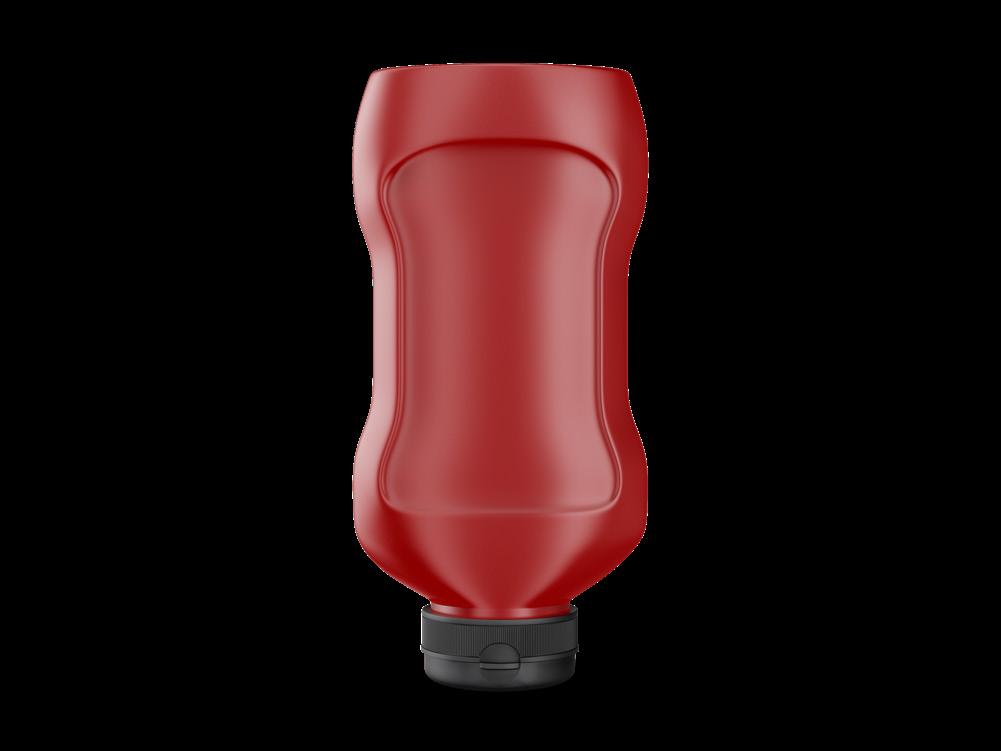



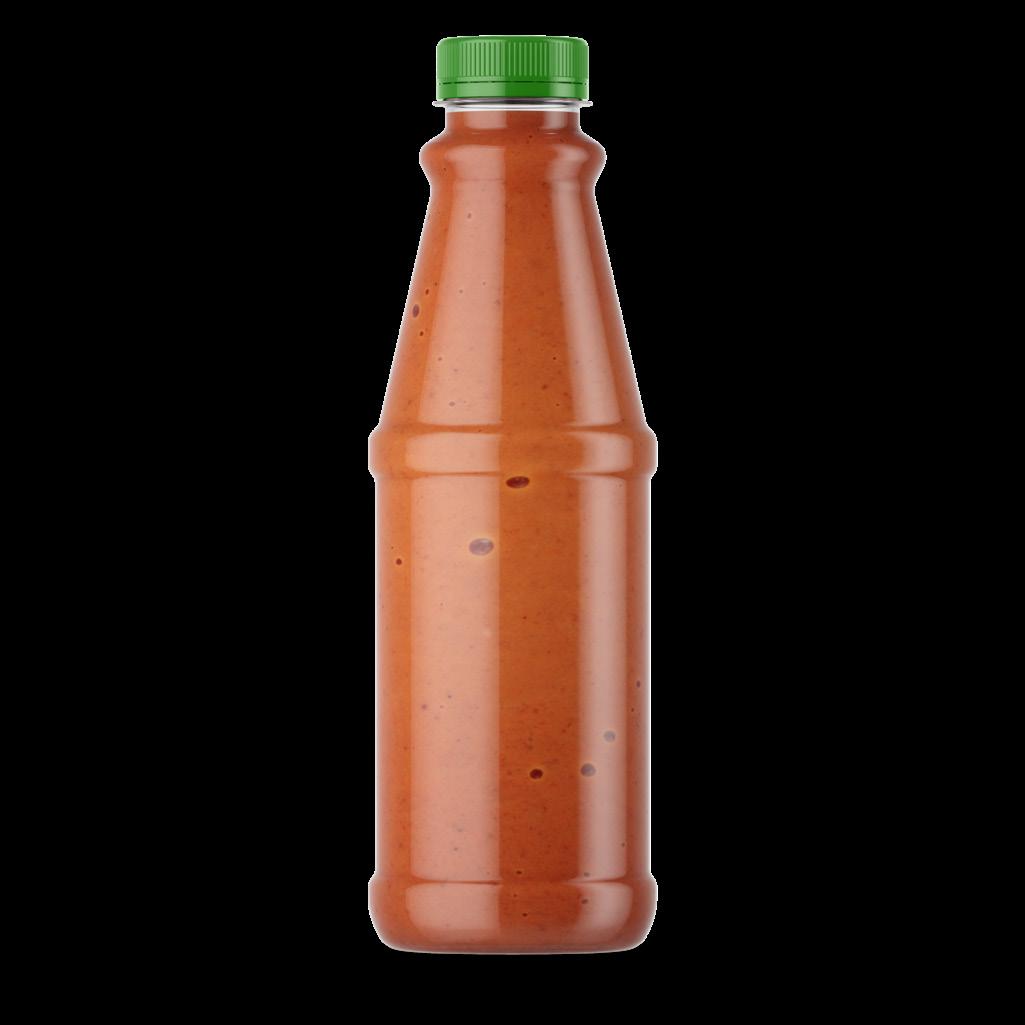

Campaigns.Husky.ca/TwoStepMolding
LEARN MORE »
WHO, FAO settle for “cell-based food” as universal name for meat grown in the lab

INVESTMENT
Ayman Shahin Export invests US$20m in new Moussy malt beverage factory in Egypt
EGYPT – Ayman Shahin Export, an export management and manufacturing company, has invested US$20 million in a new Moussy malt beverage factory in Egypt.
The factory was established with technical assistance from the Danish beverage company Carlsberg, which owns the Moussy brand.
The new plant, spanning an area of 8,000 square meters, has a production capacity of about 30,000 bottles/hour.
Group chairman Ayman Shaheen
NUTRITION
GLOBAL – The World Health Organization (WHO) and the Food and Agriculture Organization of the United nations (FAO) have settled for “Cellbased food” as the term to describe meat that has been produced in the lab.
Defending their preferred name, the two organizations noted that cell-based food was “less confusing, conveniently overarching and generally well-accepted by consumers”, and accurately reflects the science of the product.
In their report, they noted that other popular terms such as “cultured” and “cultivated” can be confusing as they are often used in the aquaculture sector to indicate farmed fish and fisheries.
The term “cellular agriculture” can be considered too general as it may include the topic of plant cell culturing or fermentation, the report noted.
WHO and FAO also deliberately drop the term “meat” in favor of “food” to make the product easily acceptable across geographies regardless of cultural and religious convictions.
“The use of the term “meat” to refer to a cell-based food product might not be acceptable in all regions and may also complicate halal or kosher labeling,” the report indicated.
told Zawya Projects that the factory supports the Egyptian government’s goal of local manufacturing and will operate sustainably by rationalizing energy and water consumption and avoiding environmentally harmful chemicals.
He added that the project targets a sales volume of up to US$13 million and an export volume equivalent to 25 percent of the factory’s production capacity in the first 12 months.
WHO recommends against use of non-sugar sweeteners to control body weight or reduce the risk of NCDs
GLOBAL – The WHO has recommended against the use of non-sugar sweeteners to control body weight or reduce the risk of noncommunicable diseases (NCDs).
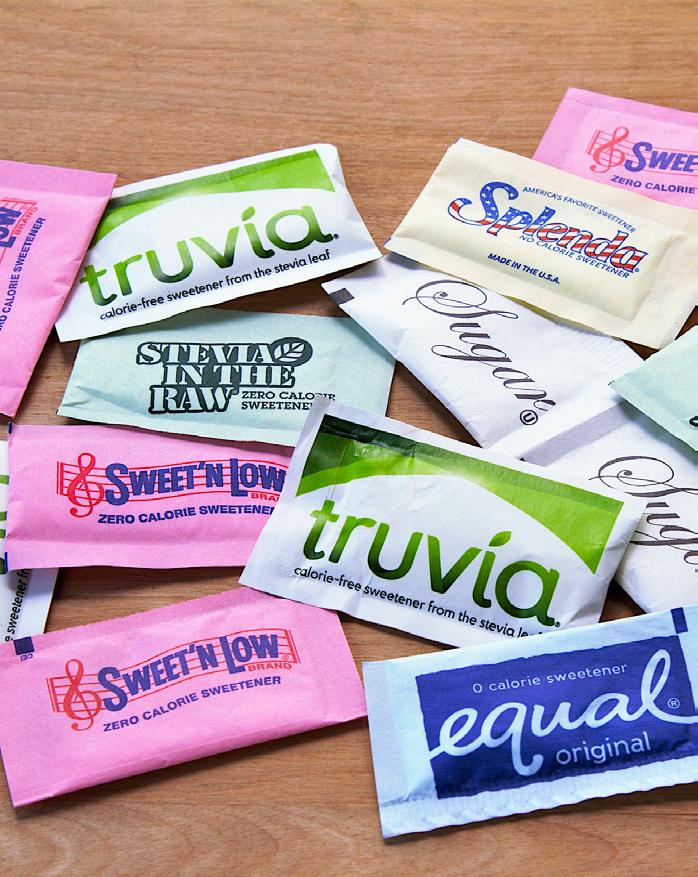
According to the world health body, the recommendation is based on the findings of a systematic review of the available evidence which suggests that the use of NSS does not confer any long-term benefit in reducing body fat in adults or children.
Results of the review also suggest that there may be potential undesirable effects from long-term use of NSS, such as an increased risk of type 2 diabetes, cardiovascular diseases, and mortality in adults.
“Replacing free sugars with NSS does not help with weight control in the long term. People need to consider other ways to reduce free sugars intakes, such as consuming food with naturally occurring sugars, like fruit, or unsweetened food and beverages,” said Francesco Branca, WHO Director for Nutrition and Food Safety.
The recommendation however does not apply to low-calorie sugars and sugar alcohols (polyols), which are sugars or sugar derivatives containing calories and are therefore not considered NSS.
Common NSS include acesulfame K, aspartame, advantame, cyclamates, neotame, saccharin, sucralose, stevia, and stevia derivatives.
MAY/JUNE 2023 | FOOD BUSINESS AFRICA FOODBUSINESSAFRICA.COM 12 NEWS UPDATES




FOOD JUNE 16, 2023 Safari Park Hotel, Nairobi, Kenya AFRICA’S MOST INFLUENTIAL FOOD INDUSTRY AWARDS CEREMONY www.awards.foodbusinessafrica.com SCAN ME Join industry leaders, investors, managers and professionals from Africa and the World at the region’s most-respected Awards Ceremony and Gala Dinner, as we review the year and celebrate the industry’s leading companies, innovations, achievements and impact on the community. Sponsored By:
AFEX seeks to raise US$65M to drive expansion into 7 new African countries
NIGERIA – AFEX, Nigeria’s first private agricultural commodities exchange player, has announced plans to raise US$65 million to fund its expansion plan into seven new African countries in a bid to capitalize on the growth in intra-African trade.
According to Eficon Agency, the funding will enable AFEX to take advantage of growing trade across the continent resulting from the entry into force of the Zone Continental
Free Trade Association (Zlecaf).
Founded in 2014, AFEX already operates in Nigeria, Kenya, and Uganda, where it trades nine agricultural commodities, including maize, wheat, sorghum, and cocoa.
Since it first appeared on the inaugural list last year, AFEX has doubled in revenue and expanded operations into East Africa, having financed over 450,000 farmers and traded 526,850 metric tonnes of
commodities in Nigeria, Kenya, and Uganda.
According to the company executives, AFEX plans to expand to 9 African countries within the next 10 years to create regional markets that balance demand and supply through intra-Africa trade.
Markets considered for expansion include Benin, Togo, Ghana, Côte d’Ivoire, Tanzania, Ethiopia, and Zambia.
Tea Company suspends operations in Bomet, Kericho counties over insecurity
Ekaterra
business premises and the deliberate destruction of crucial assets including some of the tea plucking machines.
“The value of compromised assets as a result of these security challenges is estimated at approximately Sh50 million and an additional Sh120 million in 4.5 million kilos of green leaf,” he said.
KENYA – Ekaterra Tea Company has suspended its operations in two Rift Valley counties in Kenya due to insecurity following the heightened invasion and destruction of property by residents.
The multinational tea firm, which owns vast tea estates in Bomet and Kericho counties, took the drastic action to put the safety of its employees at the forefront.
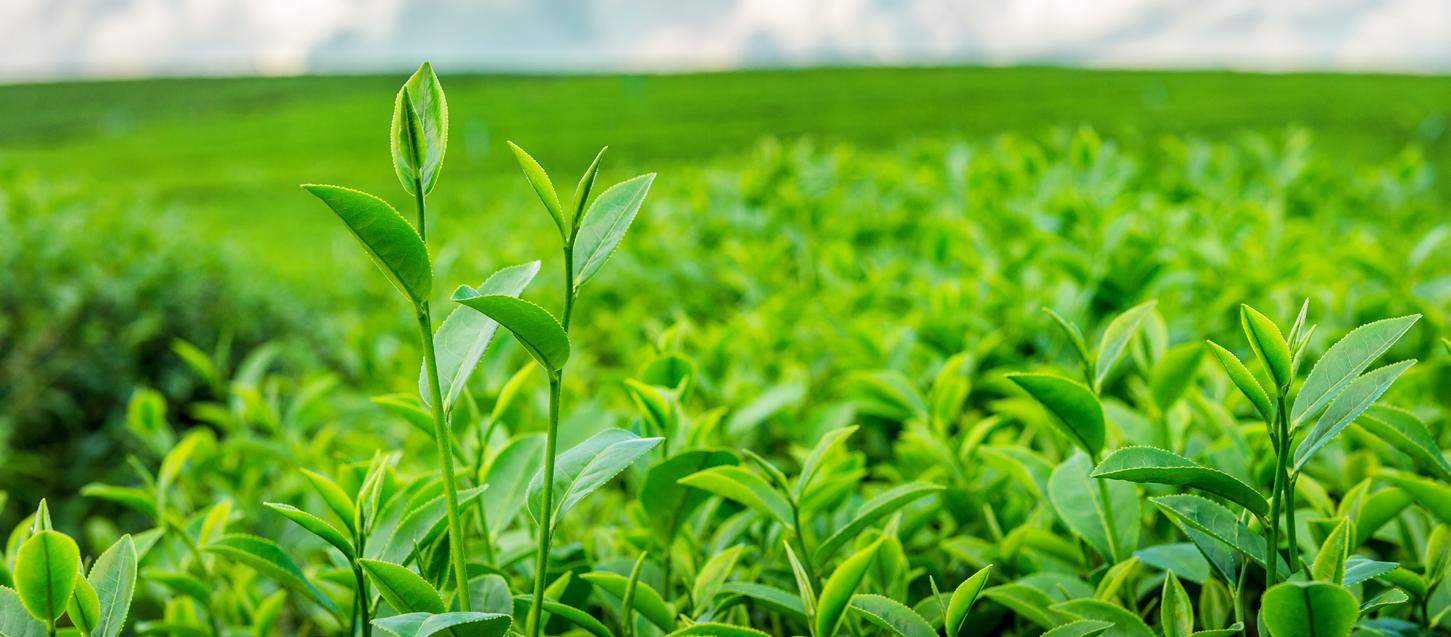
“The safety of their people is of paramount importance to them. So, they have suspended their operations until the law enforcement agencies can confirm that it is safe to resume their activities,” a statement issued
by Kenya Tea Growers Association (KTGA) chair Silas Njibwakale read.
KTGA said that large-scale tea producers in Kericho and Bomet counties are deeply alarmed by the increasing insecurity plaguing Kericho, Bomet, Nyamira, and Nandi Counties. Demonstrations have been going on in Kericho against the introduction of mechanized tea-picking machines by large-scale tea companies. The machines, according to the residents, have reduced the number of workers in the tea estates.
Njibwakale noted that the escalation of insecurity in the farms has led to organized assaults on
“What began as daytime raids and thefts of tea leaves and machinery in October 2022 has now escalated into organized assaults on business premises and the deliberate destruction of crucial assets.”
MAY/JUNE 2023 | FOOD BUSINESS AFRICA FOODBUSINESSAFRICA.COM 14 NEWS UPDATES
STRATEGY
THE VALUE OF COMPROMISED ASSETS AS A RESULT OF THE SECURITY CHALLENGES IS ESTIMATED AT APPROXIMATELY KES50M
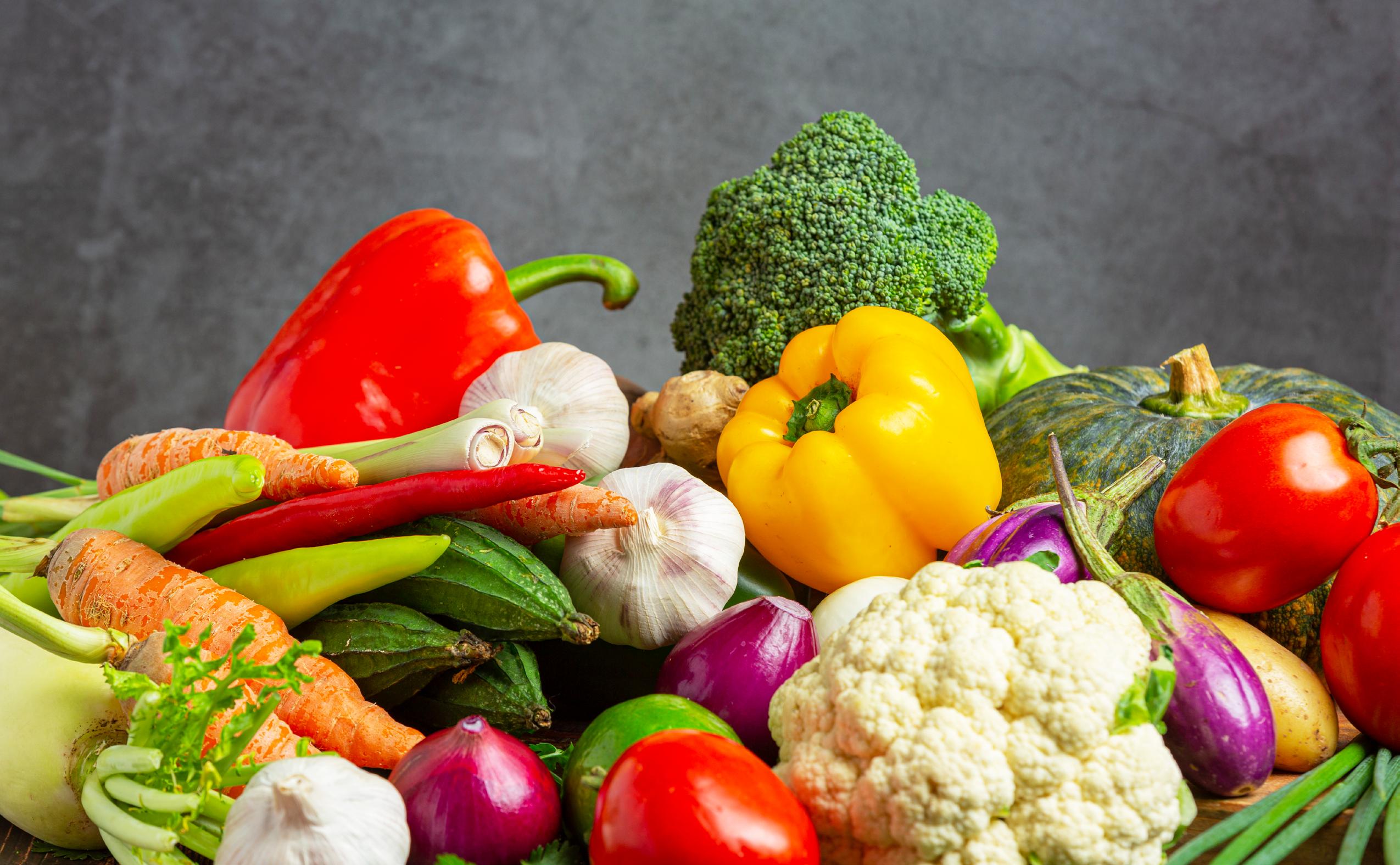



WHATS ON SHOW? SCAN ME AFRICA Fresh Produce EXPO AFRICA’S NO.1 FRESH PRODUCE INDUSTRY TRADE SHOW MARCH 22-24, 2024 Sarit Expo Centre, Nairobi, Kenya www.africafreshproduceexpo.com
www.africasustainabilitysymposium.com
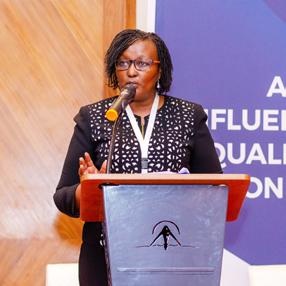

JUNE 13, 2023
Safari Park Hotel, Nairobi, Kenya
Confirmed Sponsor: RESET & TRANSFORM – Mainstreaming Sustainability in Africa in Uncertain Times, Impacted by Covid-19 & Supply Chain








Disruptions
CONFIRMED SPEAKERS


 WILLIAM BRENT Chief Marketing Officer at Husk Power Systems
ASHISH PANDE Country Head, Olam Agri, Nigeria
ESSAM EL-MADDAH HR & General Secretary Director, Danone Egypt & North East Africa
KEVIN SHAH Managing Director, ACEteK Software
CLAUDIA CASTELLANOS Managing Director, Black Mamba
MARGARET KIBOGY Managing Director, Kenya Dairy Board
GAURAV VJ CEO, 260 Brands
MATTHIAS GRABE Managing Director, Buhler East Africa
PALOMA FERNANDES, OGW CEO, Cereal Millers Association, Kenya
DR. KEN MUMA CEO, AAR Hospital
WILLIAM BRENT Chief Marketing Officer at Husk Power Systems
ASHISH PANDE Country Head, Olam Agri, Nigeria
ESSAM EL-MADDAH HR & General Secretary Director, Danone Egypt & North East Africa
KEVIN SHAH Managing Director, ACEteK Software
CLAUDIA CASTELLANOS Managing Director, Black Mamba
MARGARET KIBOGY Managing Director, Kenya Dairy Board
GAURAV VJ CEO, 260 Brands
MATTHIAS GRABE Managing Director, Buhler East Africa
PALOMA FERNANDES, OGW CEO, Cereal Millers Association, Kenya
DR. KEN MUMA CEO, AAR Hospital




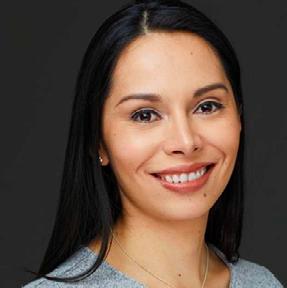





















info@fwafrica.net +254 725 343 932 www.africasustainabilitysymposium.com SCAN ME
STEFFANY BERMUDEZ Policy Analyst, Sustainability Standards International Institute for Sustainable Development (IISD)
CLAIRE VAN ENK Founder & CEO, Farm to Feed
YEMISI IRANLOYE Founder/CEO, Psaltry International
JOHN MWENDWA Public Affairs & Communications Director, Coca-Cola Beverages Africa
CHUKWUEMEKA IDAM Sustainability Advocate and CEO, Zen Ideas
TUMISANG MATSHEKA Vice President, Supply Chain, PepsiCo South Africa
Jit Bhattacharya Co-founder & CEO – BasiGo
VINOD GUPTAN CEO, MedSource Group & Vice Chairman, Kenya Association of Pharmaceutical Industry
JOACHIM WESTERWELD Executive Chairman, Bio Food Products
CAESAR ASIYO Chief Development Officer, Victory Farms
ROZY RANA Managing Director, Dormans Coffee
DAVID KAMAU Managing Director, Fortified Whole Grain Alliance
NASRA NANDA CEO & ESG Lead, Kenya Green Building Society
DAVE OKECH OKECH Founder & Chief Imagination Officer, Aquarech
HARRISON JUMA General Manager, Tunga Nutrition (Unga Group)
Carol Koech Country President, Schneider Electric East Africa
CLAIRE VAN ENK CEO, Farm to Feed
MICHAEL ORANGI Country Director, Kenya & Tanzania, Rainforest Alliance
TALASH HUIJBERS CEO & Founder, Insectipro
WAMBUI MBARIRE CEO, Retail Traders Association of Kenya
STANLEY MWORIA CEO, Aquaculture Association of Kenya
VAISHALI MALDE Sales & Marketing & Sustainability Manager, PIL
MILLICENT A. ADOBOE Co-Founder, Achiever Foods Ghana
Nestle extends majority ownership of Nestle Nigeria with additional share acquisition
NIGERIA - Nestle S. A., the majority shareholder of Nestle Nigeria Plc, has bought an additional 40, 894 units of the shares of the consumer goods manufacturer at a cost of N44 million (US$95,000).
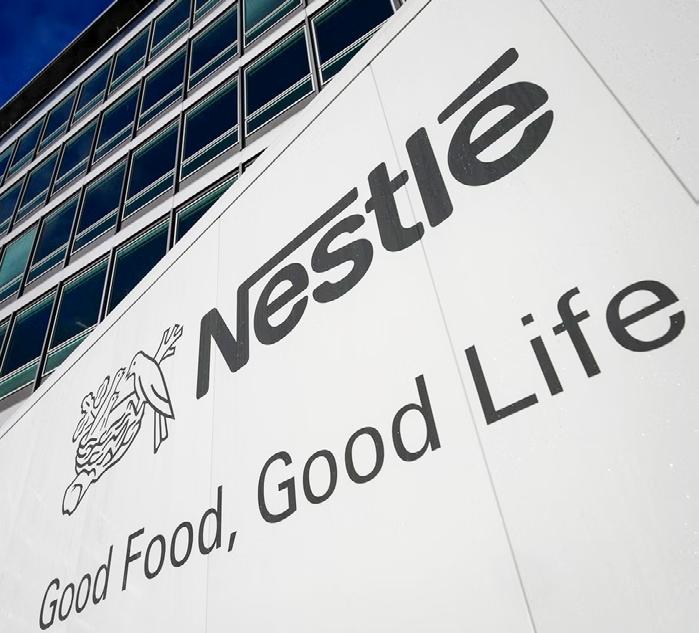
This is the second time in 2023 that the Switzerland-based multinational food company is acquiring more shares of its Nigerian subsidiary.
In March, Nestle S.A. bought 77, 967 units of shares of the Nigerian arm for over N84m (about US$0.18 million).
As of December 31, 2022, Nestle Switzerland (Societe Des Products), the ultimate holding company owned 66.18 per cent (2021: 66.18 per cent) of the issued share capital of Nestlé Nigeria Plc.
Kenya to import 180,000 more metric tons of sugar to curb surging prices
Meanwhile, the shareholders of the fast-moving consumer goods manufacturer had approved the proposed final dividend of N36.50 for the 2022 financial year.
The board of directors had recommended the payment of a final dividend of N36.50 (2021: N25.50) per share having earlier declared an interim dividend of N25 for 2022. The total dividend paid for the year amounts to N61.50.
KENYA – Kenya is set to import 180,000 more metric tons of sugar to cushion consumers against the skyrocketing prices of the products after the recent duty-free sugar failed to curb soaring prices.
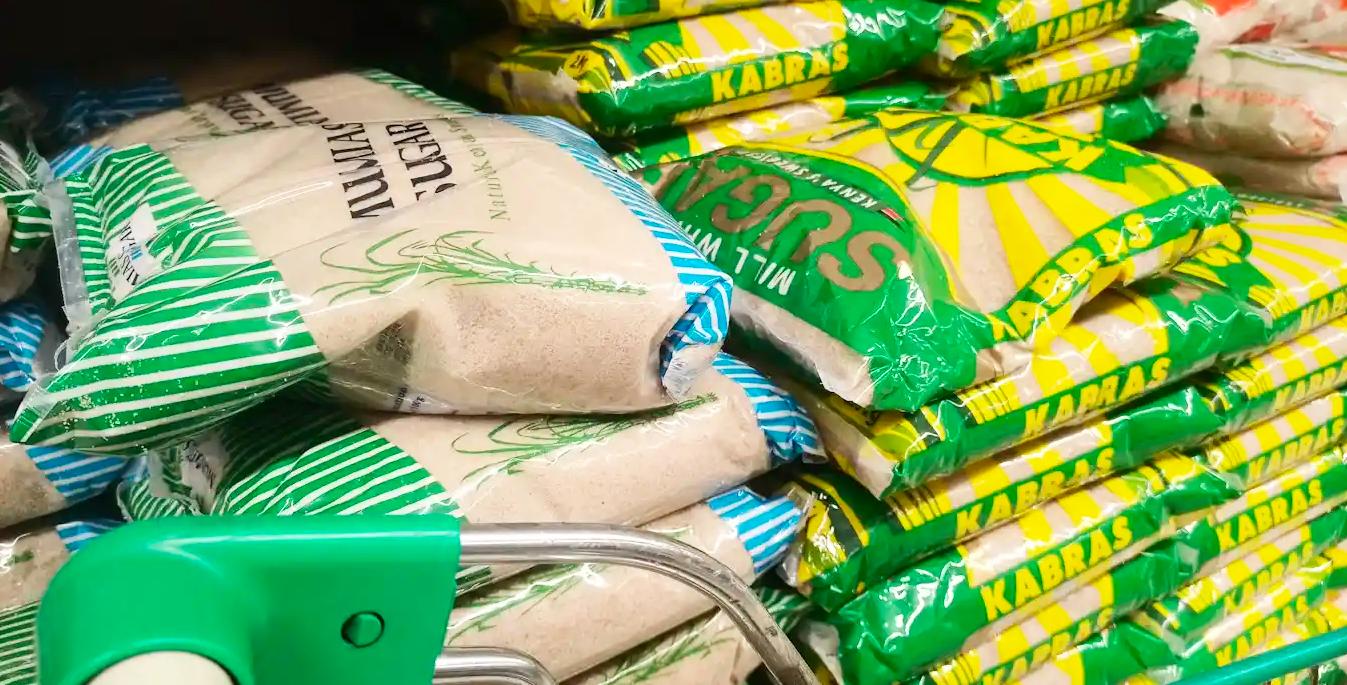
“We are going to authorize the importation of 180,000 metric tons of sugar to cushion the consumers against skyrocketing prices, which is unfortunate because we are supposed to be crushing sugar we need to sustain ourselves,” said Agriculture CS Mithika Linturi.
Linturi said Kenya has been forced to outsource from other markets as regional markets are experiencing similar shortages because of drought and short rains.
The government opened an import window in December that would see traders ship in 100,000 tonnes of sugar outside of the COMESA region to curb an imminent shortage in the country.
In the most recent market review, a 2kg of sugar ranges between Kes 430 – Kes 480 at retail price, more than three times the normal price in the previous years, when the prices were high.
The shortage has been attributed to an acute sugarcane shortage that has forced many millers to operate at
less than 30 percent of their installed capacity.
The National Assembly Departmental Committee on Agriculture and Livestock, led by committee chairperson John Mutunga, recently said the shortage is a result of poaching, lack of policy framework, and unhealthy competition from importers of cheap sugar.
THE GOVERNMENT OPENED AN IMPORT WINDOW IN DECEMBER
Dr. Mutunga pointed out there is a need to amend policies that will regulate the importation of sugarcane to protect local farmers who invest their resources and time on the farm.
MAY/JUNE 2023 | FOOD BUSINESS AFRICA FOODBUSINESSAFRICA.COM 18 NEWS UPDATES
FOOD SECURITY
THAT WOULD SEE TRADERS SHIP IN 100,000 TONNES OF SUGAR OUTSIDE OF THE COMESA REGION TO CURB AN IMMINENT SHORTAGE IN THE COUNTRY.




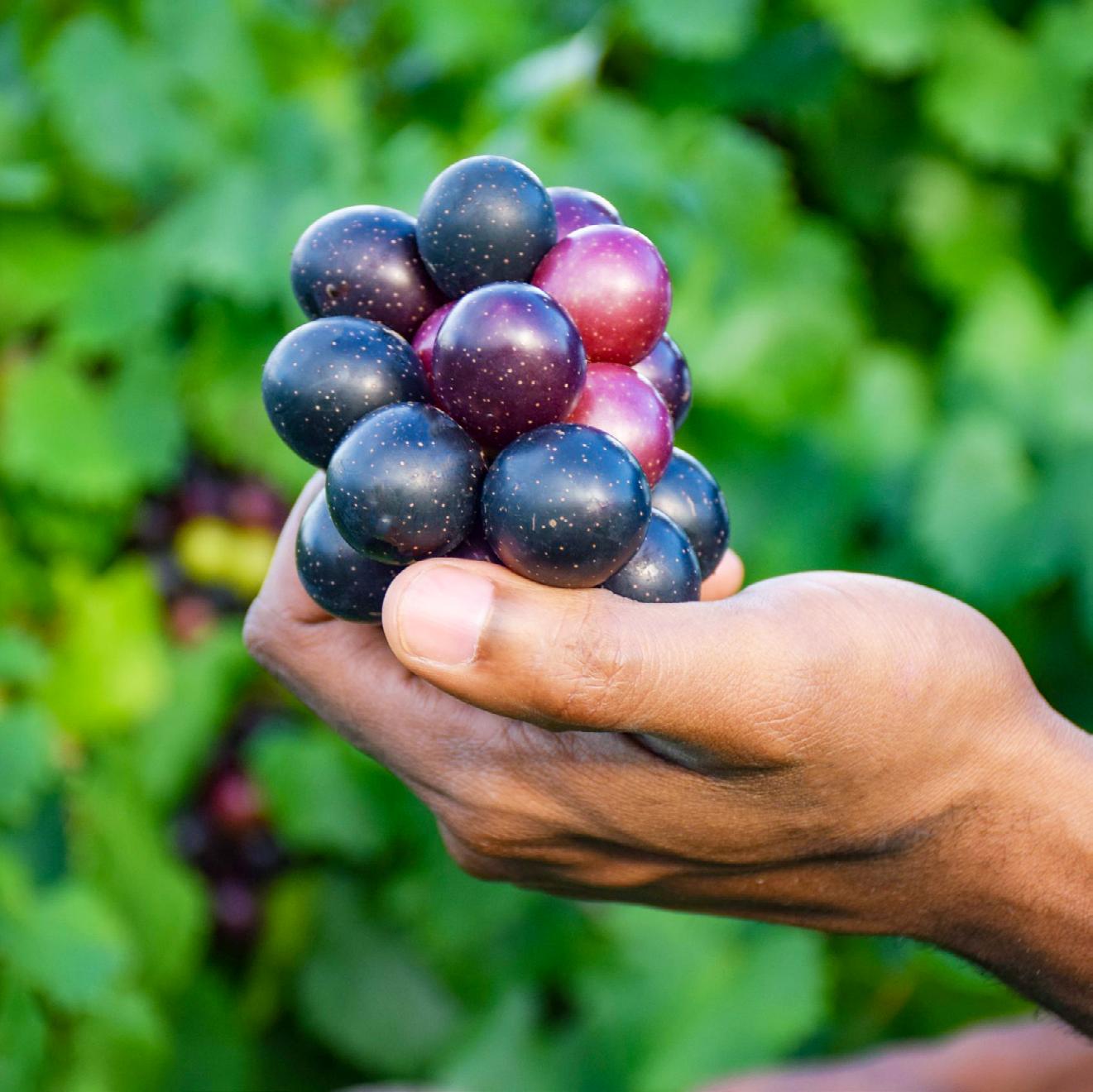
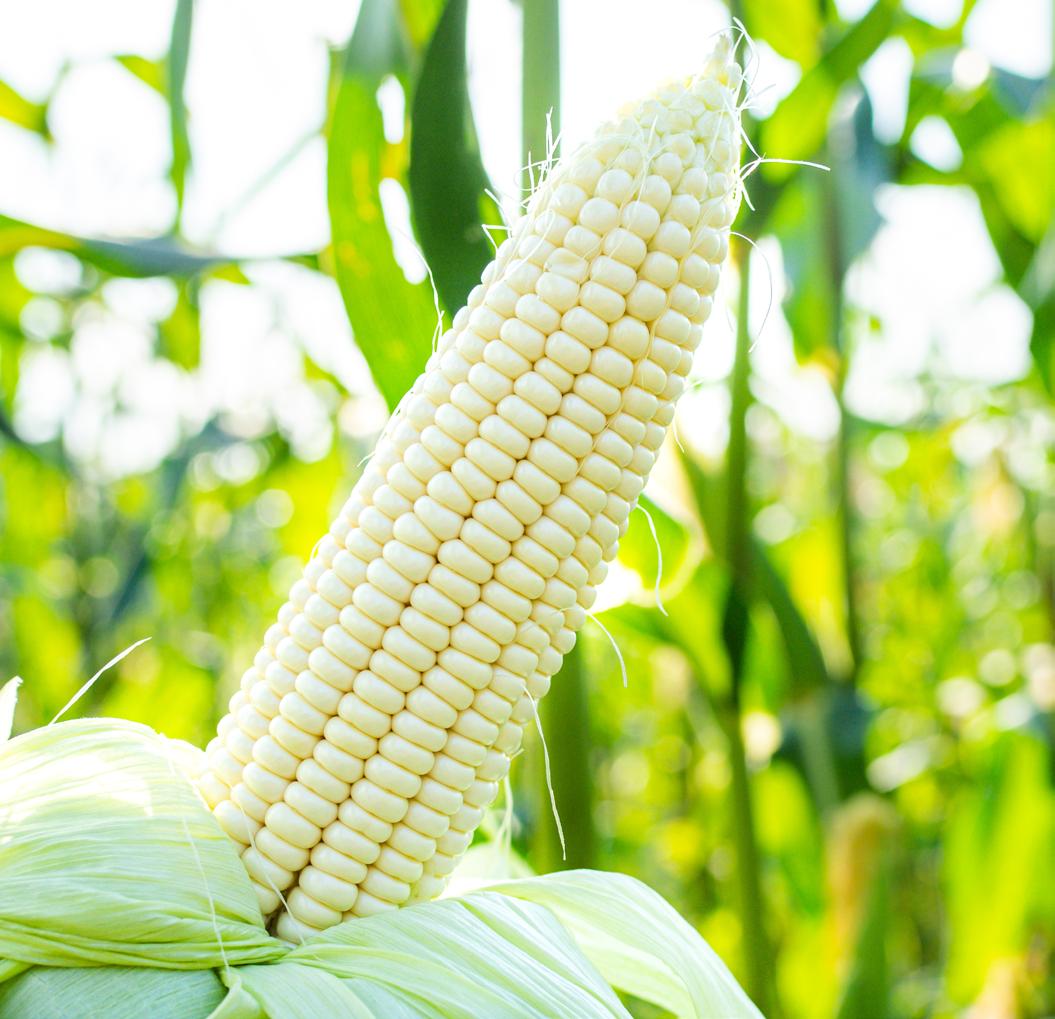
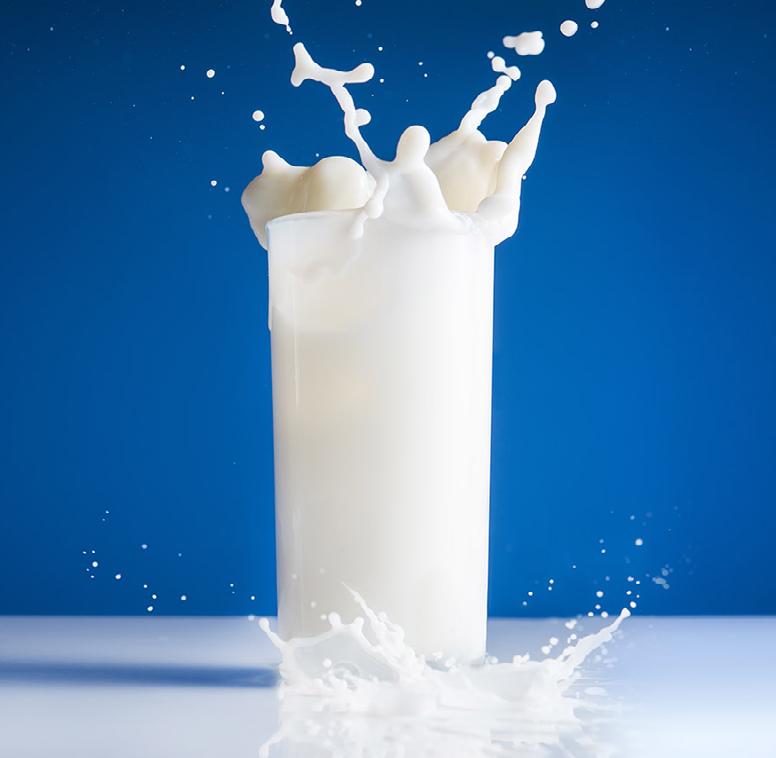
UGANDA’S MOST INFLUENTIAL FOOD, BEVERAGE & MILLING INDUSTRY CONFERENCE & EXPO SCAN ME MARCH 6-8, 2024 Kampala, Uganda www.afmass.com/ug Afmass UGANDA EXPO FOOD
Coca-Cola Beverages Botswana inaugurates new US$24.4m production line
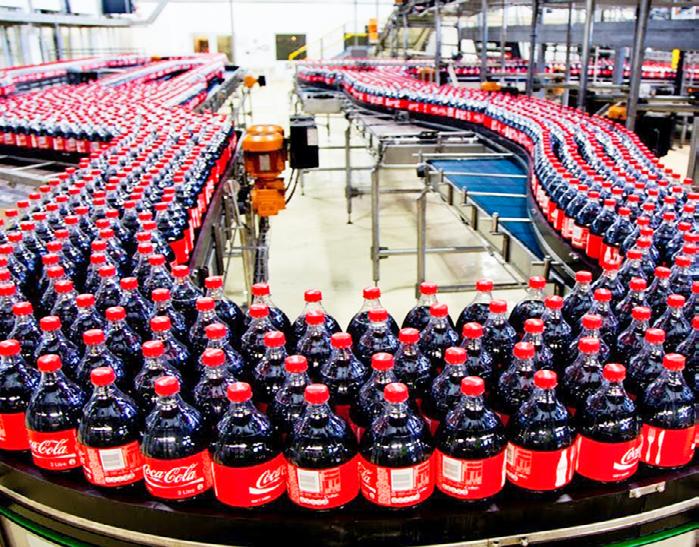
More than a third of Gen Z and younger millennials sceptical about sugar replacersnew study finds
GLOBAL – Gen Z and younger Millennials are ‘breaking the norm’ when it comes to sweetener preferences among different generations, a new study by taste and nutrition company Kerry has revealed.
across the globe, with 75% of global consumers saying they prefer a natural sweetener (such as honey, sugar, or stevia).
BOTSWANA – Coca-Cola Beverages
Botswana (CCBB), a unit of CocaCola Beverages Africa (CCBA), has launched a new state-of-the-art production line and water treatment plant to significantly increase the factory’s production capacity.
CCBB invested P310 million (US$24.4m) into the new production line with a capacity of 13,500 bottles per hour and equipped with the latest industry technology.
The installation of the new PET line allows for faster and more efficient production of PET products, increasing productivity, while also producing bottles with higher clarity and strength, CCBB said.
CCBB MD David Chait pointed out that the company would be partnering with the Botswana University of Agriculture and Natural Resources to provide it with clean water as well.
In a water-scarce country such as Botswana, Chait explained that CCBB needs to use water as efficiently as possible and its investment in the water treatment plant, ensures the water going back into the environment is clean.
“This investment is a clear demonstration of our continued belief in the future of Botswana and a signal of our confidence in Botswana as an investment destination,” CocaCola Beverages Africa (CCBA) CEO, Jacques Vermeulen.
According to the study, younger consumers are placing greater importance on sugar in food and drinks, with 36% of these consumers skeptical of ingredients used to replace sugar in food and drinks.
The survey also revealed that natural sweeteners rank highest
On preferences, most consumers globally preferred honey, sucrose/ sugar, stevia, coconut sugar, and fructose more than any other sweetener.
Kerry’s consumer research and insights experts conducted the quantitative survey that saw the input of 12,784 people across 24 countries and six continents.
Famous brands reports 15% jump in full year revenue driven by robust sales growth in Africa

SOUTH AFRICA – Famous Brands, Africa’s leading branded food services franchisor, has reported a 15% increase in revenue to R6.5-billion for the year ended February 28.
The double digit growth in sales was driven by a vibrant Africa where system-wide sales increased has 31% during the year.
Operating profits in Africa decreased by R10-million in the period. This however did not prevent the company from reporting a rise in companywide operating profit to R861-million, from R630-million in the prior year.
Famous Brands said its revenues have now exceeding pre-pandemic levels, after the group focused on improving cash generation from operations and controlling its cost base tightly, despite high inflation, input cost increases, and loadshedding.
“While the marketplace remains
highly competitive as brands fight to retain market share, we continue to experience good brand growth, revamp activity, and demand for our brands from potential franchise partners,” CEO Darren Hele said.
She noted that trading conditions in South Africa remain challenging, with the restaurant industry being highly exposed to loadshedding.
MAY/JUNE 2023 | FOOD BUSINESS AFRICA FOODBUSINESSAFRICA.COM 20 NEWS UPDATES
NUTRITION
FINANCIALS
Bio Foods becomes first Kenyan dairy processor to acquire B Corp certification
B Corp’s high standards of social and environmental performance, accountability, and transparency.
In addition, the dairy processor noted that as Certified B Corp, it could be a force for good in the world and is committed to making a positive impact now and in the future industry.
KENYA – Bio Foods Ltd, a leading processor and marketer of premium dairy products, has become the first and only Food & Beverage company in Kenya to receive a B Corp certification after undergoing a rigorous 2-year impact assessment with B Lab Africa.
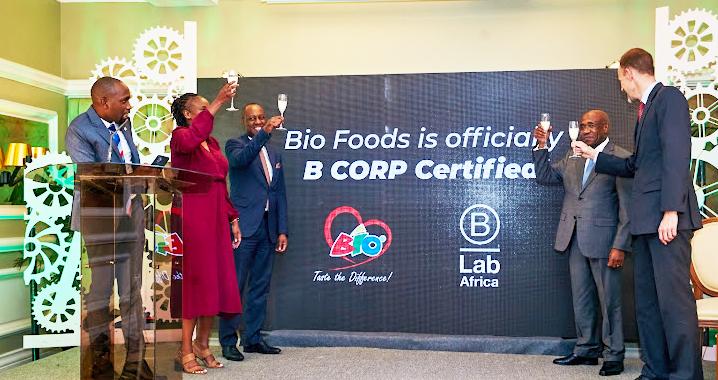
According to the company’s statement on a LinkedIn post, acquiring the certification indicates that the company has maintained a high standard of verified, overall social and
environmental performance, public transparency, and legal accountability.
“At Bio Foods, we strongly believe in sustainability as a core pillar for our Business and as an organization, we operate within and commit to the triple bottom-line framework, of people, planet, and profit,” the company added.
With the certification, Bio joins an international movement of 6,000 purpose-led businesses that meet
Uganda to hold talks with Kenya over powdered milk importation restrictions
UGANDA – Ugandan government has proposed to hold talks with the Kenyan government, over restrictions on the importation of its powdered milk.

This comes after Benson Mwangi, the general manager at Brookside Uganda, a firm owned by the family of former President Uhuru Kenyatta, said Nairobi is denying the milk processor export permits and that those given are often delayed.
The statements were confirmed by Uganda’s Dairy Development Authority (DDA) with the authority’s
executive director Samson Akankiza revealing that Nairobi was only issuing about 20 percent of entry papers to
exporters of its powdered milk.
Speaking in parliament, David Bahati, the country’s Minister of State for Trade, said that if the trend was not dealt with It would lead to the crippled livelihood of cattle farmers in the country.
“We are aware of this situation of not only milk but also other products. The head of state has been informed about this situation, and is going to engage the President of Kenya, to see how we can resolve this matter,” he revealed.
FOODBUSINESSAFRICA.COM MAY/JUNE 2023 | FOOD BUSINESS AFRICA 21 SUSTAINABILITY
THE CERTIFICATION INDICATES THAT THE COMPANY HAS MAINTAINED A HIGH STANDARD OF VERIFIED, OVERALL SOCIAL AND ENVIRONMENTAL PERFORMANCE, PUBLIC TRANSPARENCY, AND LEGAL ACCOUNTABILITY
www.summit.foodsafetyafrica.net



JUNE 15-17, 2023











Sarit Expo Centre, Nairobi, Kenya
KEY ISSUES
The Africa Food Safety Summit covers the following issues in the food and agriculture value chain in Africa
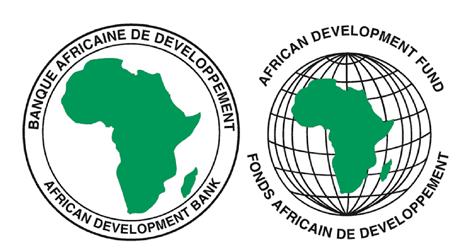
Regulation & Policy
Leadership, Culture & Communication
Human & Infrastructure Capacity
Trade & Market Access
Innovation & Technology
Coordination & Cooperation
MAY/JUNE 2023 | FOOD BUSINESS AFRICA FOODBUSINESSAFRICA.COM 22
IN PARTNERSHIP WITH:
DISCOVER THE FUTURE OF FOOD SAFETY, QUALITY & FOOD SYSTEMS IN AFRICA
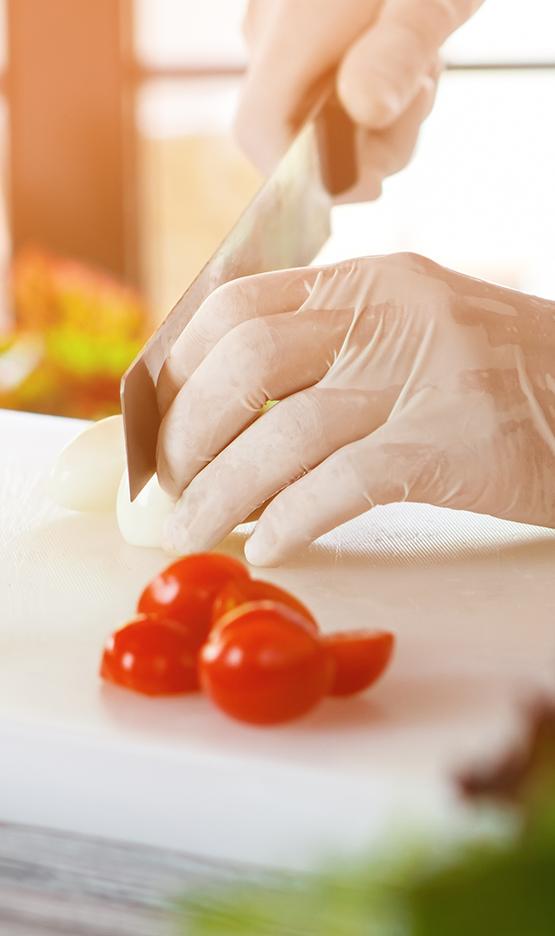



FOODBUSINESSAFRICA.COM MAY/JUNE 2023 | FOOD BUSINESS AFRICA 23 info@fwafrica.net +254 725 343 932 www.summit.foodsafetyafrica.net Sign up to Sponsor, Attend & Speak SCAN ME NETWORK BE INSPIRED DISCOVER
Carrefour Kenya opens 20th branch at Business Bay Square Mall in Eastleigh
exceptional services to our customers as we strategically expand our footprint in the Kenyan market,” East Africa Carrefour Regional Director Christophe Orcet said.
“Our goal is to offer the best affordable products in all our stores to benefit every household and offer real value and solutions to the rising cost of living in Kenya.”
KENYA – French multinational retail and wholesaling corporation, Carrefour, has expanded its retail chain in Nairobi city with the latest being at the Business Bay Square Mall in Eastleigh.

Located along General Waruinge Street, the 3,000-square-meter store will be one of the largest opened by retailers in the country in 2019.
The new outlet seeks to tap
the area’s growing population and businesses with a major focus on the high footfall of customers who visit Eastleigh to shop for clothes and household items.
In total, Carrefour now operates 20 stores countrywide: 16 are located in Nairobi with Kisumu and Mombasa hosting two stores each.
“The opening of our new store today is a true testament to our commitment to continue providing
Arla Foods inaugurates state-of-the-art dairy Farm in Nigeria

NIGERIA – Arla Foods has stepped up its efforts to boost sustainable milk production in Nigeria with the inauguration of its state-of-the-art dairy farm in Kaduna which cost the Danish dairy giant over US$10 million.
The farm – a state-of the-art Danish designed dairy farm and the first of its kind in Nigeria- is located in Damau village, Kubau Local Government Area, Kaduna State.
Designed to ensure optimum animal welfare and productivity, the Farm covers 400 Ha of land, with the capacity to house 400 milking cows and 1000 animals in total.
Arla which produces Dano Milk, a popular milk brand in Nigeria, notes that its farm will be a showcase for sustainable milk production in Nigeria
The Managing Director, Arla Nigeria, Peder Pedersen, noted that the farm is currently home to 216 Danish Holstein cows, which arrived a few days ago and are settling well into their new environment.
Once fully operational, the farm will directly employ 40 people and is expected to produce 5 million kg of milk per year.
MAY/JUNE 2023 | FOOD BUSINESS AFRICA FOODBUSINESSAFRICA.COM 24 NEWS UPDATES RETAIL
IN TOTAL, CARREFOUR NOW OPERATES 20 STORES COUNTRYWIDE: 16 ARE LOCATED IN NAIROBI WITH KISUMU AND MOMBASA HOSTING TWO STORES EACH.





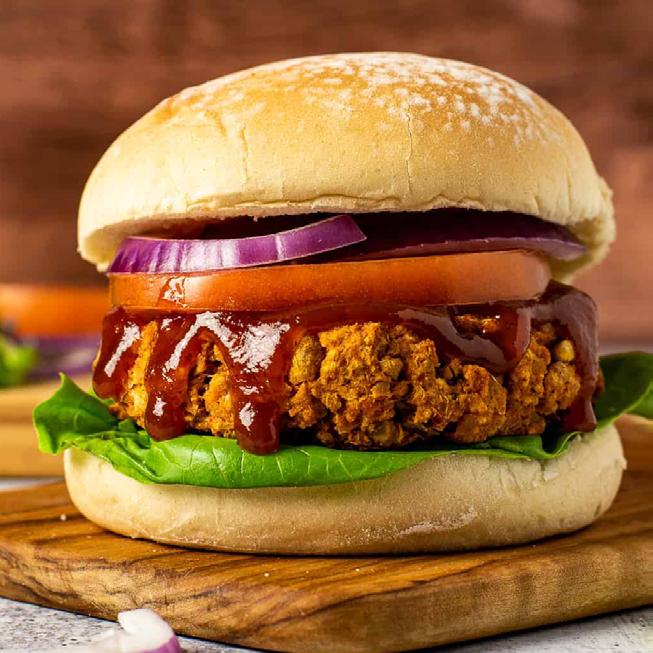
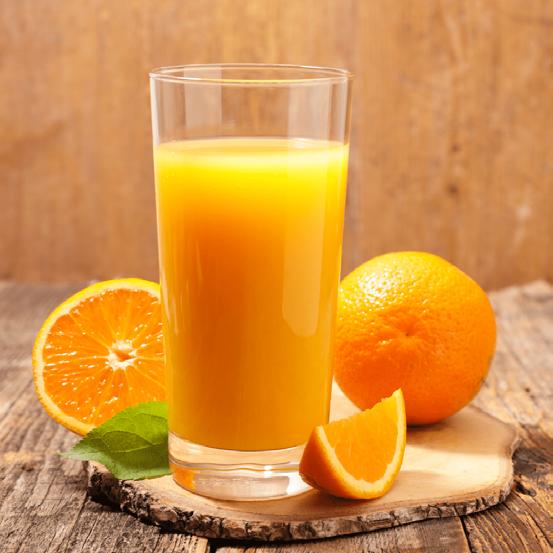

FOODBUSINESSAFRICA.COM MAY/JUNE 2023 | FOOD BUSINESS AFRICA 25 Robots have become a reliable way to accomplish the monotous and dangerous chores of palletizing bags. NOVEMBER 23-24, 2023 | DAR ES SALAAM, TANZANIA TANZANIA’S MOST INFLUENTIAL FOOD, BEVERAGE & MILLING INDUSTRY CONFERENCE & EXPO info@fwafrica.net +254 725 343 932 www.afmass.com/tz SIGN UP CO-LOCATED WITH www.afmass.com/tz www.dairybevafrica.com AN FW AFRICA EVENT Dairy Drink AFRICA SUMMIT & & EXPO Afmass TANZANIA EXPO FOOD
APPOINTMENTS Update
KFC appoints first black female General Manager for Africa region
PepsiCo appoints Riaan Heyl as new CEO for South African unit
SOUTH AFRICA – Multinational food and beverage corporation, PepsiCo, has named Riaan Heyl as the new Chief Executive Officer of its South African unit effective 1 May 2023.

Heyl, a Chartered Accountant by training with a rewarding career that included senior leadership roles in finance and general management, replaces Tertius Carstens, who retired after 29 years with the company.
He steps into the new position after serving as PepsiCo’s Chief Operating Officer in South Africa since January 2023.

Nigerian Breweries appoints Asue Ighodalo as new Non-Executive Chairman
AFRICA – American fast food restaurant chain KFC has appointed Akhona Qengqe as its very first black female General Manager for Africa, effective April 1st, 2023.

Akhona, who was the then Chief Development Officer of KFC Africa, has vast experience spanning multiple industries including petroleum, property, marketing, operations, and convenience retail. She will replace the outgoing GM – Dhruv Kaul, who is moving into a GM role for KFC Pan Europe.
Sabir Sami, KFC Global Chief Executive Officer, noted that Akhona has spent the better part of her eight years at KFC as an intrinsic part of the KFC leadership team in Africa and has worked closely with Dhruv and the team to ensure the sustainability of the business but also, the growth of local female talent.
She has helped the business navigate a disruptive pandemic that impacted not only business but also staff from a wellness and workplace perspective – a job she managed with humility, empathy, and efficiency; the quick service restaurant highlighted.
In his career portfolio, Heyl led the Essential Foods portfolio within Pioneer Foods from 2017, and following PepsiCo’s acquisition of Pioneer Foods, in 2020, took on the
NIGERIA – Nigerian Breweries Plc (NB), the largest brewing company in Nigeria, has appointed Mr. Asue Ighodalo to be the new Non-Executive Chairman effective from May 1st, 2023, after the retirement of its Chairman, Chief Kolawole B. Jamodu, CFR.
Mr. Ighodalo joined the Board on January 1st, 2022. He is a highly experienced lawyer with over 35 years of experience and a leading figure in corporate Nigeria.
role of Vice President Go to Market and Commercial Integration across the South African portfolio.
With the appointment, Heyl said he is ready to build on what has already been achieved and is passionate about the company’s trajectory for growth where shared value, sustainability, people, and consumers are at the center.

He currently serves as the chairperson of Sterling Bank Plc and Levene Energy Group and sits on the Board of Okomu Oil Palm Plc. He is the immediate past chairperson of the Nigerian Economic Summit Group.
Meanwhile, Chief Jamodu, who joined the Board on March 1st, 2006, and became Chairman on January 1st, 2008, played a significant role in the Company’s growth and transformation, which included various acquisitions and mergers between 2011 and 2014.
MAY/JUNE 2023 | FOOD BUSINESS AFRICA FOODBUSINESSAFRICA.COM 26 JAN/FEB 2023 | FOOD BUSINESS AFRICA 26
Danone SA appoints first female Head of Manufacturing
SOUTH AFRICA – Tsholofelo
Ngobeni has become the first woman to hold the head of manufacturing position at South Africa’s largest dairy producer, Danone.

According to the company, Tsholofelo is a seasoned operations leader, with experience in operations, safety, quality & food safety, supply chain, and engineering in the FMCG sector locally and internationally.
Kid Nkantsu, Danone Southern Africa operations director, described Tsholofelo as a calm and objectiveorientated individual who will be most valuable with the implementation of a modern and innovative manufacturing strategy, as well as solid strategic operational goals that aim to result in even higher product quality, integrity, and customer satisfaction.
UACN taps Kerry Group executive Oluyemi Oloyede to head food and beverage division
South African wine and spirit producer KWV appoints John Loomes as CEO
SOUTH AFRICA – KWV, a leading wine and spirit producer in South Africa, has named John Loomes to replace Boyce Lloyd as CEO effective 1 June 2023.
Loomes has been serving as the CEO incumbent in a temporary COO role since September 2022, taking on responsibility for most functions and reporting lines.
Since January 2023, Loomes’ responsibilities further expanded, and has effectively been managing the business for the past 5 months.
NIGERIA – U.A.C of Nigeria, an investment holding company with a wide range of interests in food and beverages, real estate, paint, and logistics sectors, has appointed Oluyemi Oloyede as CEO of UAC Foods Limited, its food and beverages subsidiary.
Oloyede joins UAC Foods from the Irish taste and nutrition firm, Kerry, where he served as the General Manager for West Africa since 2018.
At Kerry Group, he led a team of colleagues in commercial, finance, research, development and applications, supply chain, and operations to support Kerry’s customers in West Africa.
With an extensive background in the beverage, FMCG, and CPG sectors, Loomes, an MBA degree holder from Bond University, brings a wealth of experience and a proven
Tsholofelo holds a qualification in Chemical Engineering and an MBA. She also completed the Certified Supply Chain Professional (CSCP) program and Certification in Planning & Inventory Management (CPIM) with APICS.
In his over 16 years of experience leading multinational teams, Oloyede has also held various executive positions in leading fast-moving consumer goods companies in Nigeria, including L’Oreal where he served as National Sales Manager for Nigeria and Ghana, and Procter and Gamble where he served as Regional Sales Manager.

He holds a First-Class Honours degree in Mathematics from Obafemi Awolowo University, Ile Ife, Nigeria, and an MBA from the same institution.
track record of success to lead the business into an exciting new chapter.

Loomes has over 25 years of experience working in commercial, business development, and general management roles in South Africa, Africa, and the Middle East.
KWV said his appointment was part of a “carefully orchestrated leadership transition.”

FOODBUSINESSAFRICA.COM MAY/JUNE 2023 | FOOD BUSINESS AFRICA 27 JAN/FEB 2023 | FOOD BUSINESS AFRICA
PEARL DAIRY
Lato Instant Porridge

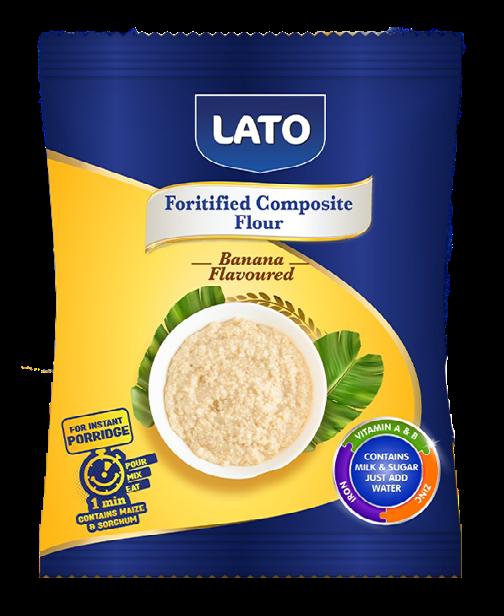
Pearl Dairy, the producer of popular Ugandan milk brand Lato, has diversified its portfolio to include Instant porridge. Trading under the Lato brand name, the Instant Porridge is a composite flour made up of maize and sorghum. The flour also contains milk and sugar for a truly all-in-one breakfast cereal experience. Available in 30g sachets, the porridge is also fortified with Iron, Zinc, and vitamins A & E for a healthy start to the day.

www.latomilk.com



BROOKSIDE DAIRY
Plant based milk
Brookside Dairy Limited, Eastern Africa’s largest dairy processing company, has dipped its toes into the plant-based milk category with the launch of 100% Almond Milk and 100% Soy Milk products. Launched under the company’s flagship brand Brookside, the products come packaged in 1000ml laminated carton boxes.



www.brookside.co.ke
JETLAK FOODS LIMITED
Frosti Fruit Drink
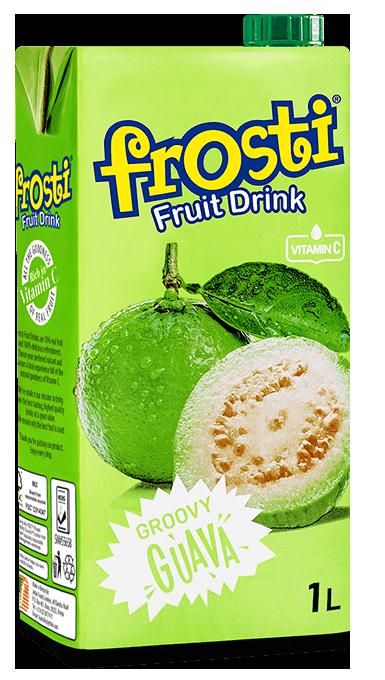

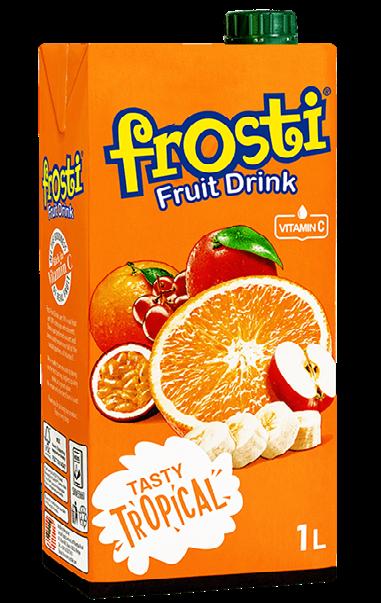
Jetlak Foods Limited, a leading beverage company in Kenya, has introduced a new fruit drink under the brand Frosti. The fruit drinks are made from 10% real fruit and are rich in Vitamin C, according to the company. The drinks come in 1000ml laminated carton boxes and are available in a variety of fruity flavors like Mango, Apple, Tropical, and Guava.
www.jetlack.com
MAY/JUNE 2023 | FOOD BUSINESS AFRICA 28 NEW FOOD PRODUCT INNOVATIONS
BAKHRESA GROUP
Azam O’cream Icecream
Bakhresa group, one of Tanzania’s most diversified food companies, has launched a new ice cream flavor under its Azam brand. Trading as Azam O’cream Ice cream, the new product is vanilla flavored and contains chocolate biscuits. Like others in the range, the product is available in 1-litre plastic bowls.




www.bakhresa.com

KITUI FLOUR MILLS
Dola Vegetable Cooking Oil

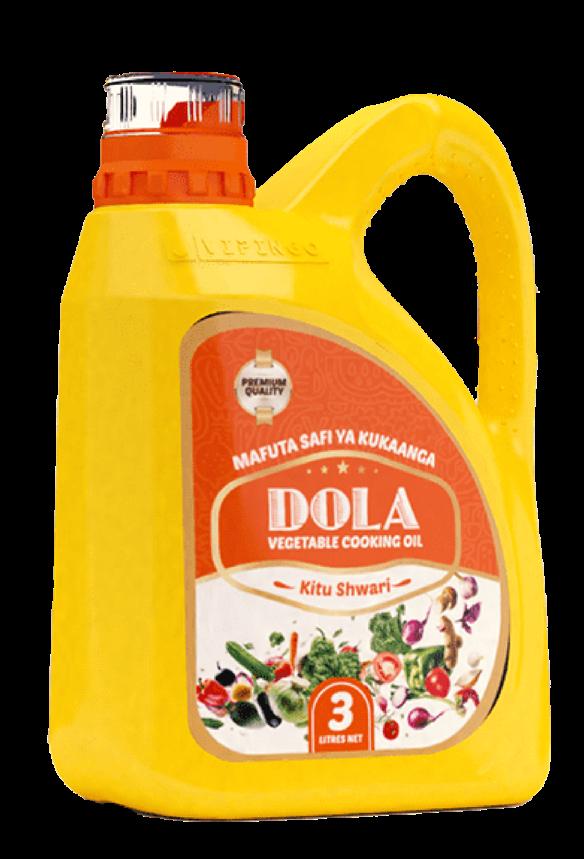
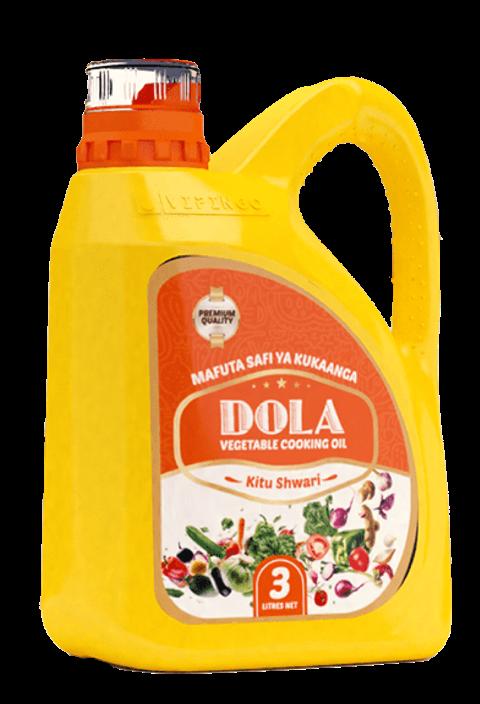



Kitui Flour Mills, the maker of one of the leading wheat flour brands in Kenya Dola, has diversified its strong brand name into the vegetable cooking oil category with the launch of Dola Vegetable Cooking Oil. The cooking oil is available in all leading stores in Kenya in a wide variety of sizes from 20ltrs to 500ml.
www.kituiflourmills.co.ke
BOUNTY KENYA LIMITED
Non-Alcoholic wine & Energy Drink

Bounty Kenya Limited, the makers of popular soft drink Lemonade, has launched a new energy drink dubbed Safari Energy Booster. The drink is available country wide in 350ml PET bottles. The Kenya-based company has added Mohito flavour to its Rendezvous line of non-alcoholic sparkling drinks. According to the company, the new product is “a delicious blend of zesty lime, fresh mint, and bubbly carbonation that will transport your taste buds to a tropical paradise.”

www.bounty.co.ke

FOODBUSINESSAFRICA.COM
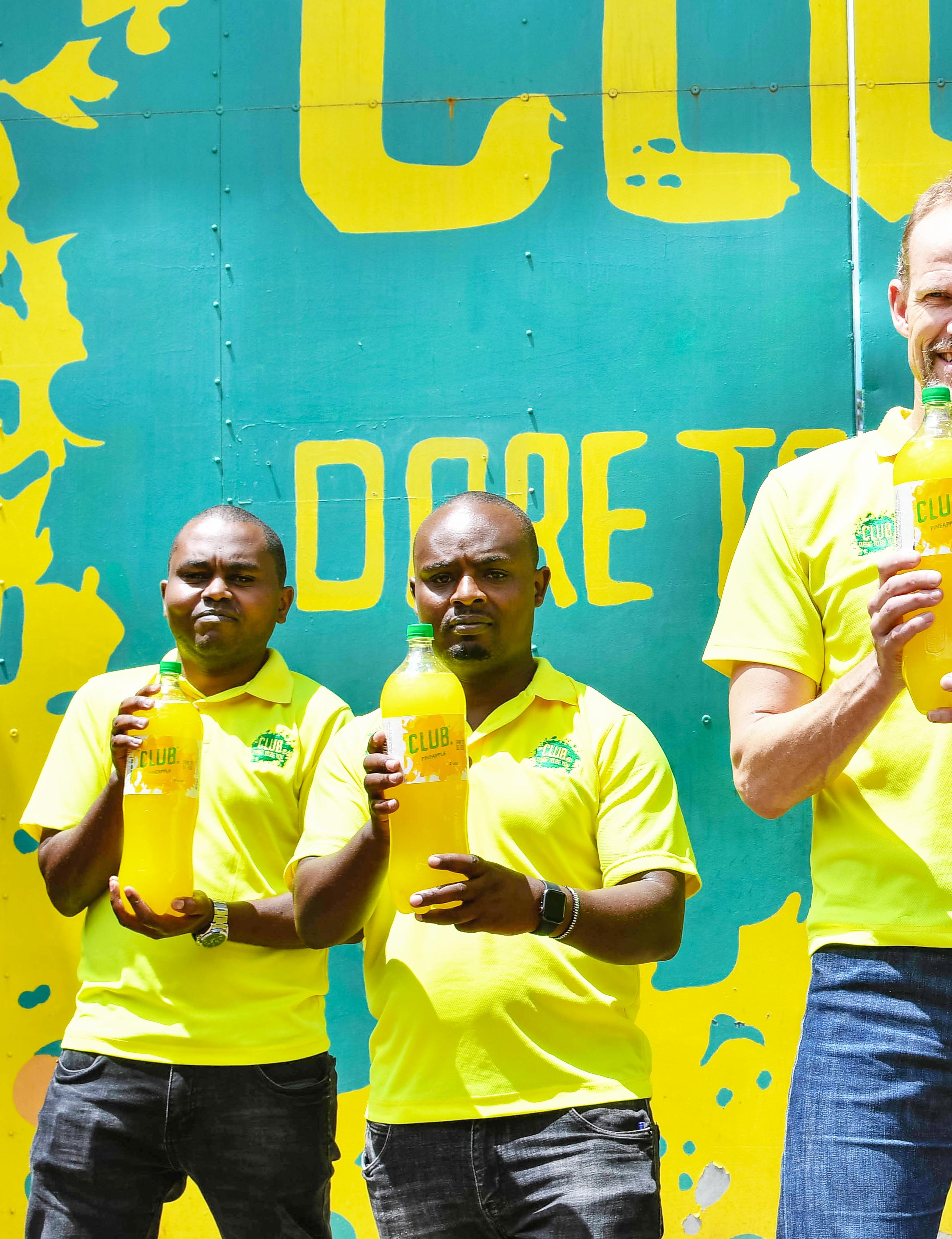
HIGHLANDS DRINKS LTD
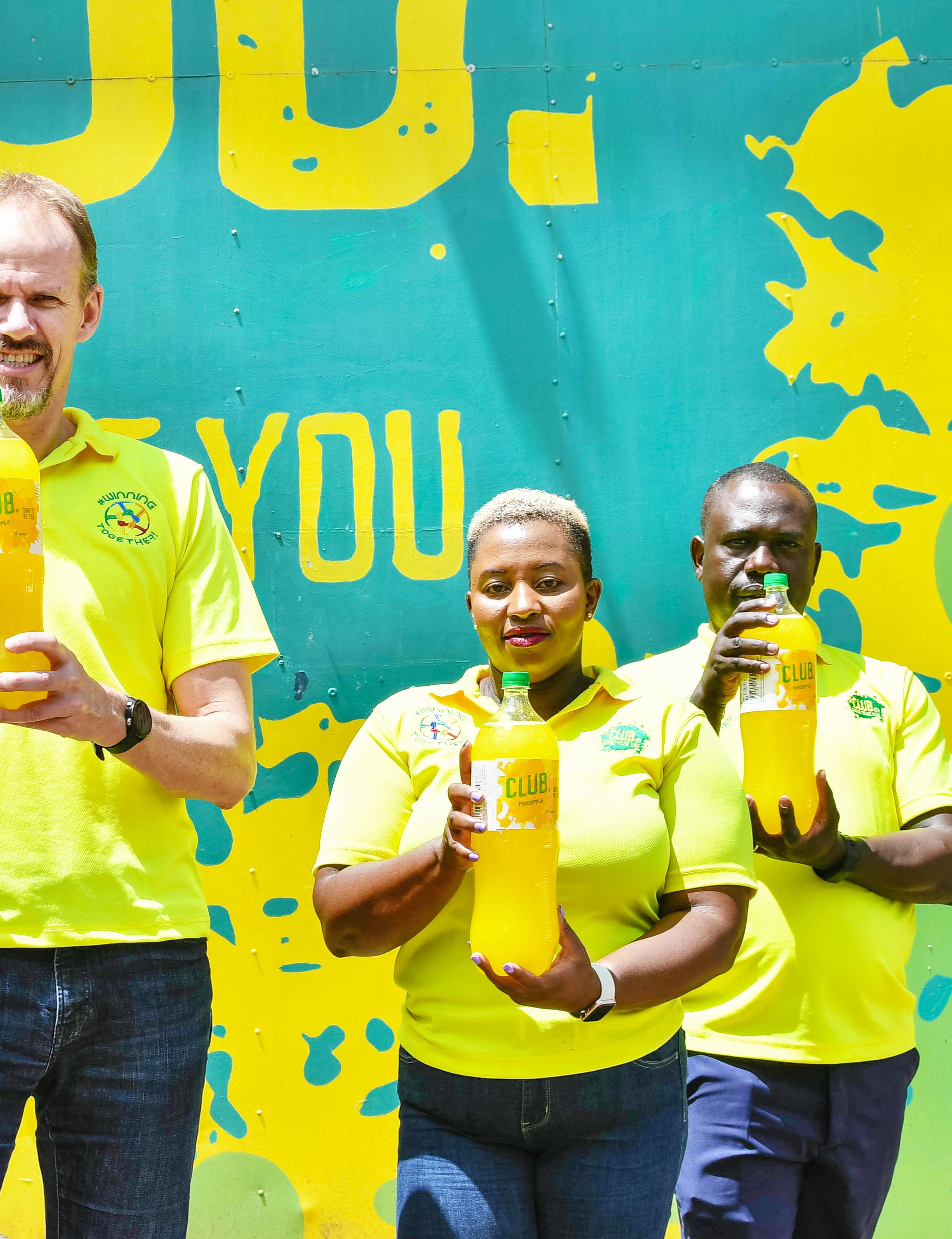
Refreshing Kenyans with joy since 1954
By Paul Ongeto
Ahousehold name in Kenya, Highland Drinks Limited has been refreshing Kenyans with great-tasting, refreshing, and affordable products since 1954. "I think everybody in this room and outside has grown up with a product of Highlands, whether it's water or cordials," says Joachim Westerveld, CEO of Highlands Drinks Limited.
Putting dates to figures, Joachim tells us the company was founded in 1954 by the Padia family. However, Highland's history stretches back eight years before that to 1947 when Mr. Tribhovan Padia opened a shop in Nyeri.
Production of the Highlands cordials did not start until 1986 when Highlands Orange cordial was released to the market. Before striking the sweet spot with the cordials, Highlands Drinks had experimented with a number of soft drinks. Softa, Mirinda, and Babito were soda brands produced by Highland Drinks that were wellknown in the late 70s, in the 80s, and early 90s. When people from this period remember the good old days, these brands certainly
come to mind.
Now in production for the 37th year running, Highlands Drinks Cordials have expanded to include four other flavors, namely lemon, mango, pineapples, and tropical. Mineral water, which was first introduced in 1990, is also thriving and is today available in various packs from the tiny 500ml PET back to the jumbo 20-liter non-returnable plastic bottle.
DISRUPTING KENYA’S SOFT DRINK MARKET
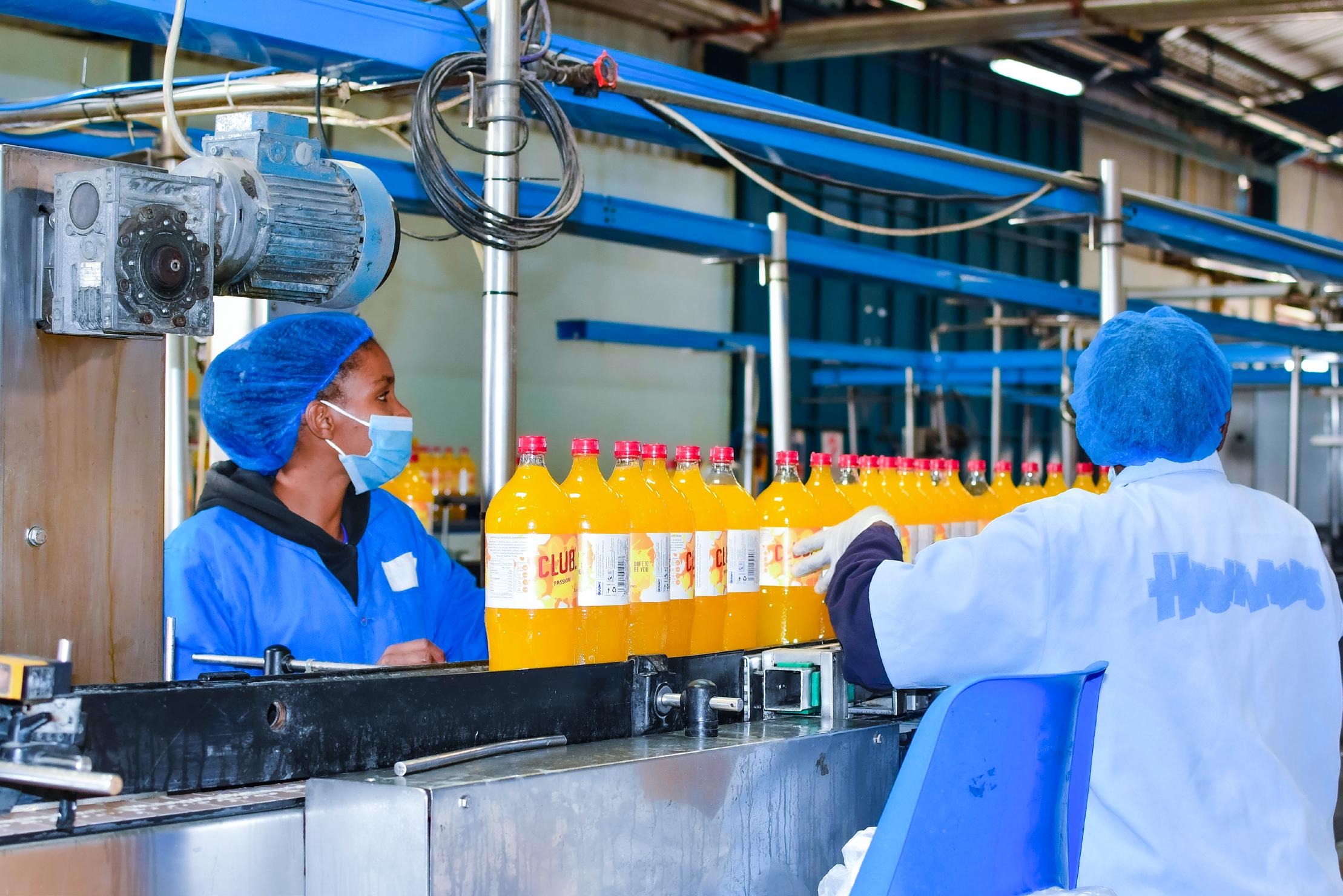
Highland Drinks' fame in the soft drinks market caught the attention of a group of Dutch investors, led by the TBL Group, who in the late 2000s invested in the company with a mission to take it to even greater heights. "We said this is a great company with a great legacy, good history, a beautiful production plant, and it's a great platform," Joachim says. "Together with the Padia family, who founded the company back in 1954, we said we were going to disrupt the Kenyan soft drink market."
The disruption took the form of a re-entry into the carbonated soft drinks category. Highland's exit from the scene in the early 1990s
MY COMPANY PROFILE: HIGHLANDS DRINKS LTD JAN/FEB 2023 | FOOD BUSINESS AFRICA FOODBUSINESSAFRICA.COM 32
ABOVE: Staff manning the carbonated soft drink line to ensure each product is up to standard.
left only one dominant player in the market. Left with very little choice, consumers became accustomed to this reality until Highlands under the patronage of new investors decided to shake up the market a little bit. "Kenyans deserve a better alternative and Kenyans deserve an affordable alternative," the vibrant CEO says. "So that informed our decision."
A return to carbonated soft drinks required significant investment in machinery and research and development. The process began in 2009 when the company conducted a factory upgrade to its facilities and commenced R&D on three new Carbonated Soft Drinks. The whole process culminated in 2014 when Club Soda Drink (CSD), a new carbonated soft drink brand from Highlands hit the market with three flavors.
To meet customer demand for a variety of flavors, Highlands added three flavors: Blackcurrant, Pineapple, and Passion to its range of Club Soda drinks in 2016. A brand refresh occurred in 2018 with the CSD name dropped in favor of CLUB, a simple yet memorable brand to reflect the brand's growth into a household name. Three new flavors, Apple, Mango, and Pina Colada were also

added to mark this new milestone. The big packs in the form of 1.25-liter bottles were introduced two years later in response to market demand for family-size packs. Joachim is happy with the progress the company has made thus far. "We've been hacking ladders for the last couple of years, and we're slowly but surely disrupting the markets with a bettertasting product that's more affordable," he says.
FRESH WATER, FRESH DRINKS
Padia had a strategic reason for locating the factory in Nyeri. Although the town was considerably smaller compared to Nairobi, Kenya’s capital, it had an abundant supply of fresh spring water that flowed into the town from the nearby Aberdare ranges.
Naman Kimathi, Head of Operations at Highlands Drinks, says that this unfettered access to fresh spring water gives Highlands a competitive advantage in that it is able to maintain a certain consistency in the quality of its mineral water and, by extension, its drinks which also use the water as their main raw material. He notes that other beverage and water bottlers using groundwater may not
KEY NUMBERS
1954
THE YEAR
HIGHLANDS DRINKS LIMITED WAS INCORPORATED AS A BEVERAGE COMPANY
BELOW: Cordials have been part of the highlands range since 1986 and water since 1991
FOODBUSINESSAFRICA.COM JAN/FEB 2023 | FOOD BUSINESS AFRICA 33
enjoy this kind of advantage as its mineral composition keeps varying and treating it to a level that matches spring water Highlands receives from the Nyeri Water and Sewerage Company is almost impossible.
Although the water is usually subjected to some level of treatment, Kimathi notes that Highlands subjects its water to further treatment checks to bring it to desired quality levels before it's bottled or used to make other soft drinks. “Just out of an abundance of caution, our water is first passed through sand filters to trap any debris that may have escaped initial treatment stages by Nyewasco,” he explains.
The next treatment stages include chlorination to inactivate any present microorganisms and a second stage filtration with cartridges that can filter up to 0.45 microns to remove chlorine and bacteria. The dechlorinated water is then passed through a chamber that contains a UV lamp. As the water flows through the chamber, the UV light targets and kills any microorganisms present, including bacteria, viruses, and protozoa. “That's how we guarantee the quality of our water,” a proud Kimathi concludes after taking us through the entire water treatment process at the facility.
A team of qualified quality assurance officials is always at hand to check on the effectiveness of the treatment procedures before water is directed to a nearby line for bottling or held at a temporary storage tank for use in the production of cordials and carbonated soft drinks. A fully furnished lab is nearby where tests such as pH, electrical conductivity, total dissolved solids, and chlorine are conducted on water samples to assure quality and safety.
“If we are doing cordial or carbonated soft drinks, the water is directed to another compounding tank where other ingredients will be added depending on the formulation,” Kimathi explains. “It’s mixed for a minimum of 45 minutes to achieve a homogeneous drink after which it is released to go to the filling lines.” A team of professional quality assurance officials monitors the entire process to ensure each and every bottle contains a safe and high-quality drink. “They take samples every 30 minutes for quality assurance checks,” Kimathi explains. Just like water, these drinks are subjected to a number of tests including brix and pH.
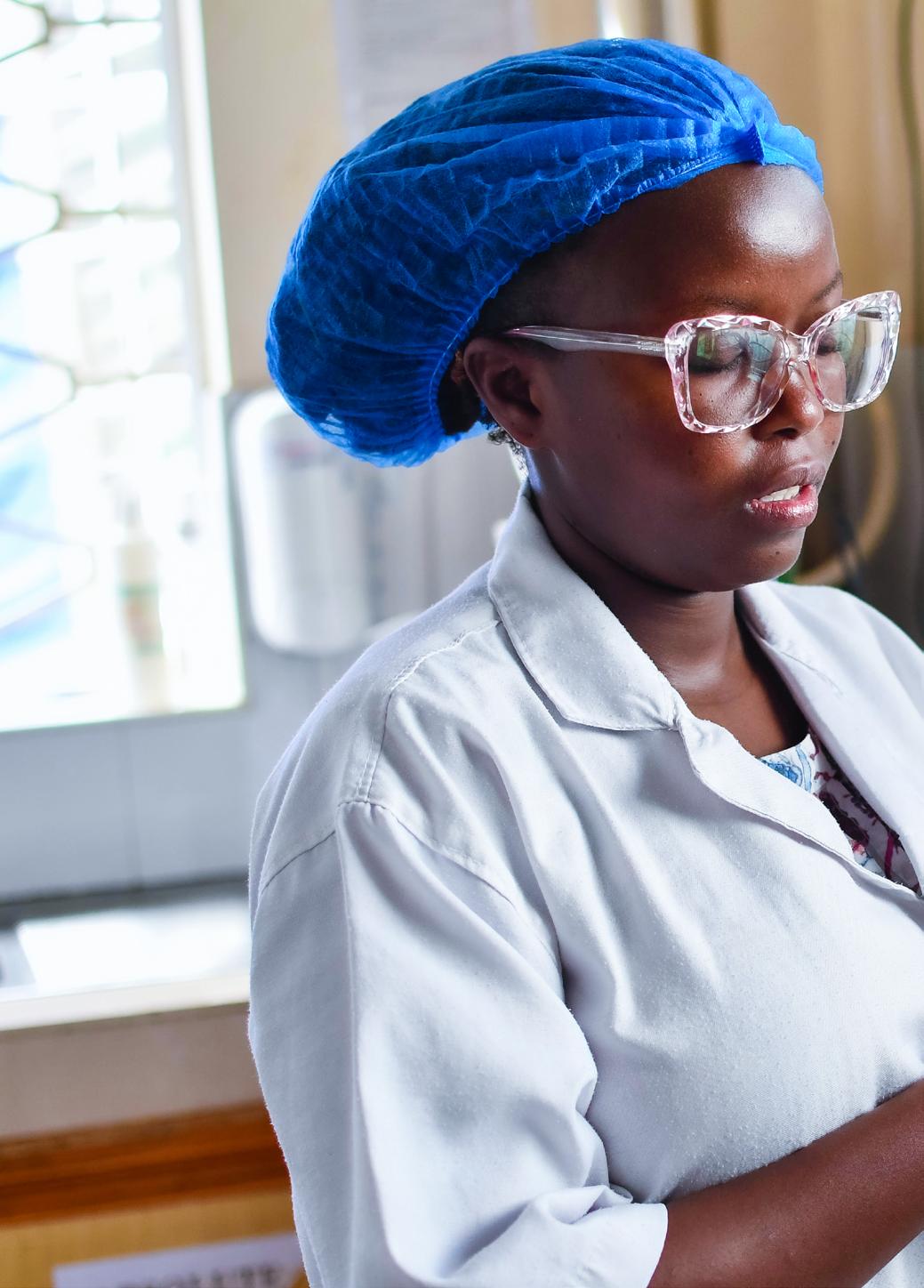
A
SUSTAINABILITY MINDSET
Sustainability is one thing that Joachim is passionate about. "We can see that global warming and climate change are real, and I think the only right thing to do as a business is to bring sustainability to the core of your strategy because otherwise, you're robbing yourself, your children, and the families of your workers of their future."
Under his guidance, Team Highlands has implemented a number of initiatives to reduce the company’s carbon footprint. In 2021, the company installed a 385 KWp solar PV plant that currently generates about 18% of the company's total electric energy needs. "We have also continuously undertaken several small energy efficiency initiatives in our manufacturing sites that have reduced our energy intensity from 0.9 Kwh per liter in 2019 to 0.78 kwh per liter in 2022," he adds.
Like many CPG companies, plastic packaging contributes the largest share of its carbon footprint. Highlands is, however, proactively seeking ways to lessen the impact of its packaging on the environment. An industry first, the company recently removed
34
IN 2021, THE COMPANY INSTALLED A 385 KWP SOLAR PV PLANT THAT CURRENTLY GENERATES ABOUT 18% OF THE COMPANY'S TOTAL ELECTRIC ENERGY NEEDS.
JAN/FEB 2023 | FOOD BUSINESS AFRICA FOODBUSINESSAFRICA.COM MY COMPANY PROFILE: HIGHLANDS DRINKS LTD
Joachim Westerveld, CEO, Highlands Drinks Ltd
plastic bottle cap sleeves from its water and cordials packaging to minimize plastic waste. Plastic will, however, continue to be an important part of its packaging profile. "We will always go for the solution that is most sustainable," Joachim says. "But at this point in time, plastic is the most economical and also potentially sustainable solution globally. But it has to be made sustainable, and that's why we, as Highlands, have been very much at the forefront of recycling." The CEO reveals that Highlands pays a considerable amount of money to PETCO to have its plastic recycled. "This means that for each gram of PET that we produce and bring to the market, a gram is collected and recycled," he explains, adding that he looks forward to the introduction of recycled PET, which is currently unavailable in Kenya. "We will be the first ones to buy that product because we believe that's the solution for the future."
At Highlands, sustainability extends beyond the environment and involves building a business that can thrive even in tough market conditions. "We have a lot of initiatives ongoing in our production to make sure that we become

BELOW: The key staff behind the quality products that Highlands is known for.

35 FOODBUSINESSAFRICA.COM JAN/FEB 2023 | FOOD BUSINESS AFRICA
BELOW: Quality assurance checks ensure all drinks from Highlands are safe and of high quality.
as efficient as possible," he reveals. "We're even looking at CO2 leakage and electricity consumption and driving to be a world-class efficient operation." This, according to the CEO, takes little from the environment and also lowers the cost of its product, enabling Highlands to remain affordable despite runaway inflation that is currently pushing up prices in Kenya and eroding consumer purchasing power."
STAYING AHEAD WITH INNOVATION
One thing that sets Highlands apart from its peers is its innovative spirit. Time and time again, the company has not failed to impress consumers with unique flavored products. Its Club soft drink range alone is comprised of 10 different flavors, some of which are only unique to Highlands. Its recent product innovations such as Bazuu Energy drink and Club Lemonade are shaking the various categories they are in to the delight of consumers.

With so many successful new products, one wonders how the company always gets it right. “Our secret is to be very close to our consumers, understand what they want, develop a prototype, fine-tune it based on their feedback, and then bring it to the market,” Joachim reveals.
Understanding their market is also one
thing that Highlands seems to have mastered. “Our target market needs that diversity,” Kaari reveals. “They want to taste everything. They want to be unique. They want to be special. So we have to make them feel special by giving them what they ask for.”
BELOW: A team from Highlands celebrating an award recognizing the quality of their beverages.
OUR SECRET IS TO BE VERY CLOSE TO OUR CONSUMERS, UNDERSTAND WHAT THEY WANT, DEVELOP A PROTOTYPE, FINETUNE IT BASED ON THEIR FEEDBACK, AND THEN BRING IT TO THE MARKET.
MY COMPANY PROFILE: HIGHLANDS DRINKS LTD MAY/JUNE 2023 | FOOD BUSINESS AFRICA FOODBUSINESSAFRICA.COM 36
Joachim Westerveld, CEO, Highlands Drinks Ltd
Highlands customers will certainly continue feeling special as the company has more products lined up for launch in the near future. “We have always been trendsetters, so we'll soon be launching some very good flavors,” Joachim confides. Cordials which have for a long time stagnated at just 5 flavors will see more new flavors added under this new plan. Energy drinks and even the already diverse range of CSD will also see new flavor additions, according to Joachim.
A WINNING MARKETING STRATEGY
Highlands’ market success has a lot to do with the taste of its products. Joachim tells us the company goes to great lengths including conducting regular blind tastes with consumers to come up with a taste profile that truly aligns with the Kenyan consumer. “That means that once you put the product on the market, we are sure that at least from a taste profile, people would prefer it. And then our job is fairly easy,” Joachim says. His statements are echoed by Kaari, the person in charge of sales. “If the customer loves the taste of our products, they will come back,” she says. Charles Momanyi, the Route to Market Manager, adds that Highlands also actively seeks partnerships with beverage players in other categories to deliver an even superior taste experience to consumers. A good example is the recent successful experiment between East Africa Breweries’ Chome Gin & Chrome Vodka products with Highlands’ own Club Lemonade mixer.
Taste is one part of the marketing equation, the other is competitive pricing whose role has risen in prominence as consumers, battered by inflation, actively seek out quality but affordable products. “We understand that our consumers’ budgets are tight, so we are actually looking to remain a little bit more affordable,” Joachim says. Highlands goes beyond offering customers competitive prices. It also regularly conducts sales offers and promotions where customers either get huge discounts or prizes, which according to Kaari, not only eases the cost-of-living burden but also improves brand loyalty.
Of course, the traditional ingredients to successful marketing including having an extensive distribution network and having the right people on the ground have also played their rightful role in the success of the Highlands brand. “Our strategy is that we deliver directly to the customer wherever they want the product, be it at the branch level or central warehousing. Then we have a team on the ground, to ensure that that it has been placed on the shelf,” Kaari reveals adding that delivery is also prompt, mostly the same day the order is made or the next.
TEAMWORK MAKES THE DREAM WORK
Joachim is not just the CEO of Highlands. He is also the Chief Executive Office of Bio Foods, one of Kenya’s leading dairy companies. Managing one company can be a hell of a task, but Joachim seemingly has no problem heading
WHY ADVERTISE IN FOOD BUSINESS AFRICA MAGAZINE
• Reach the food, beverage and milling industry in sub-Saharan Africa (East, West, South and Central Africa) and beyond using one publication and website
• Use the first magazine of its kind in the region available in a digital format, providing our advertisers with a worldwide audience

• Advertizing with us opens the door to key decision makers in the food industry
• Gain access to the best read and visited food industry website in sub-Saharan Africa.
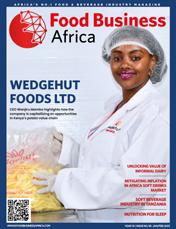


AFRICA’S
FOOD
YOUR
ADVERTISE IN
NO.1
& BEVERAGE INDUSTRY MAGAZINE GROW
BUSINESS FASTER, MORE SUSTAINABLY
AVAILABLE IN PRINT & FOR FREE ONLINE AT:
WWW.FOODBUSINESSAFRICA.COM
FOODBUSINESSAFRICA.COM
two companies that are located more than 150 kilometers away from each other. “As you can see, I'm really enjoying myself,” he proudly says.
How is he able to one effectively manage two given the demands that each one presents? The answer lies in building a very independent and proactive team, Joachim reveals. He tells us that he spent a good time with his key staff early on, coaching them to become better professionals, so that later he does not have to spend a lot of time checking, controlling, and interfering with work he has entrusted to do. “I trust their abilities to deliver,” he says.
Despite having trust on his team, Joachim is however not detached from Highlands. He is ,in fact, part and parcel of that very independent and proactive team that he described above. “We have very structured meetings where we make sure that we're aligned,” he reveals. “It gives me and everyone at Highlands a good picture of how we are doing as a company and that allows me to only get involved in the places where I should get involved.”
The spirit of teamwork has permeated through the entire workforce and from our observation, everyone, regardless of their position at the company was working towards making Highlands and Club brands successful. During weekly town hall meetings, employees are encouraged to speak freely and give ideas on how the brand or operations can be improved even further. “In this business, everyone is a CEO and will query work
processes, sales achievement, and market engagement based on personal ownership,” Joachim reveals. “This has been key in getting us to the top.”
A PIPELINE OF NEW INVESTMENTS
Being the fastest-growing beverage company in Kenya has its drawbacks; quickly running out of capacity. Norman admits that the current warehouse is not able to hold as much stock as needed to match the demand in the market. Joachim, however, promises that this would not be the reality three years from now. “We have a master plan for this factory,” he says. The plan involves acquiring new machinery and setting up new production and warehouse spaces that can handle bigger production volumes. “We are at the starting point of our investments and are investing in some machinery as we speak,” he says. “In three years' time, this place will be totally different.”
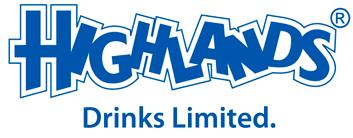
With more capacity planned, the company is now exploring exports with Uganda and Rwanda being the first in mind. Exports haven’t started yet, but Kaari reveals that great progress has been made on the research front on both markets. “And we've already got partners,” she reveals. “However, we are very cautious about how we're going to handle it. We are working on a marketing plan, and once we are clear on the products we want to launch and the region, only then will we commence exports.” FBA

COUNTRY SECTOR KENYA SOFT BEVERAGE WEBSITE hdl.highlandske.com EMAIL highlands@highlandske.com MY COMPANY PROFILE: HIGHLANDS DRINKS LTD
MAY/JUNE 2023 | FOOD BUSINESS AFRICA FOODBUSINESSAFRICA.COM 38
one of the most modern production line with capacity to produe up to 20,000 bottles an hour.
TRENDS IN FORMULATING, PROCESSING, PACKAGING & CONSUMPTION OF DAIRY PRODUCTS
Infant milk formula popularity is on the rise in Africa despite sustained efforts to limit its use
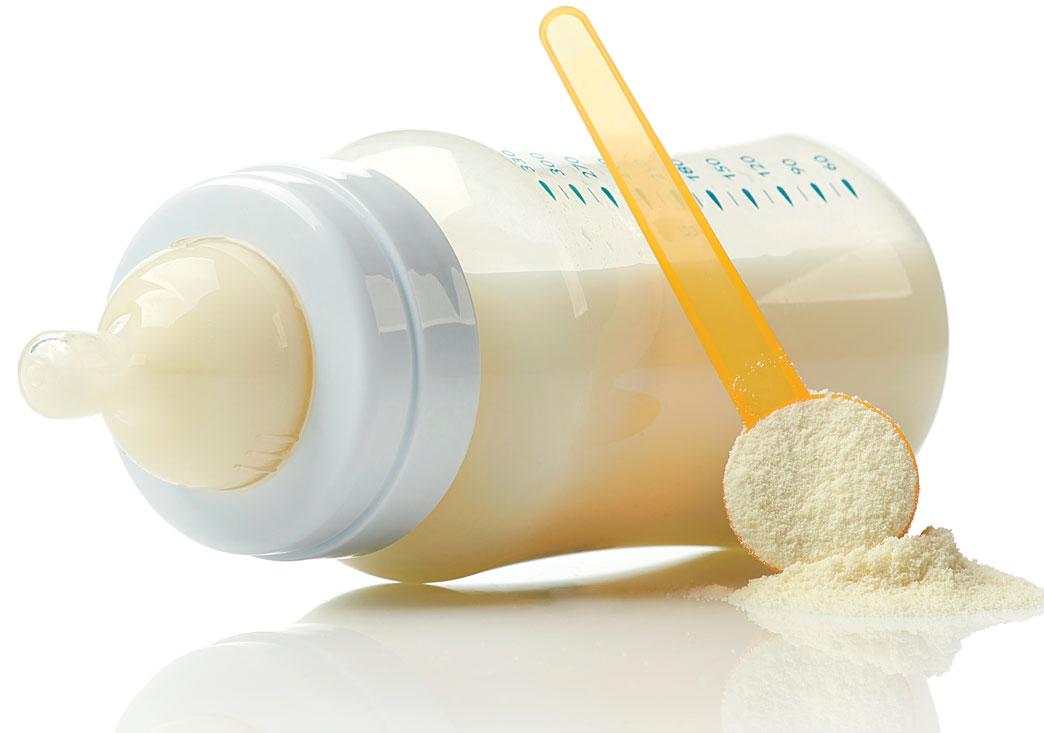 By Mary Wanjira
By Mary Wanjira
roper infant nutrition is fundamental to a child’s continued health, from birth through adulthood. Correct feeding in the first three years of life is particularly important due to its role in lowering morbidity and mortality, reducing the risk of chronic disease throughout their lifespan, and promoting

regular mental and physical development.
Breastfeeding is considered the best source of nutrition for the healthy growth and development of infants. A 2016 study by Lancet found that scaling up breastfeeding to nearuniversal levels could prevent the deaths of over 820,000 children under five. It is for this reason that WHO recommends
FOODBUSINESSAFRICA.COM MAY/JUNE 2023 | FOOD BUSINESS AFRICA 39
Dairy BUSINESS P
that babies everywhere be breastfed exclusively for the first six months, at which point safe, appropriate complementary foods (CF) should be introduced to meet children’s evolving nutritional requirements. WHO also notes that CF should not be used as breast milk substitutes (BMS), and infants and young children should continue to be breastfed until they are two or older.
perceptions and misinformation. Women’s perceptions of insufficient breast milk, beliefs about infant thirst and the need for water, and the cultural and family norms that support the early introduction of food and liquid are a few examples of barriers that prevent the universal adoption of EBF in Africa.
A BOOMING MARKET FOR INFANT FORMULA
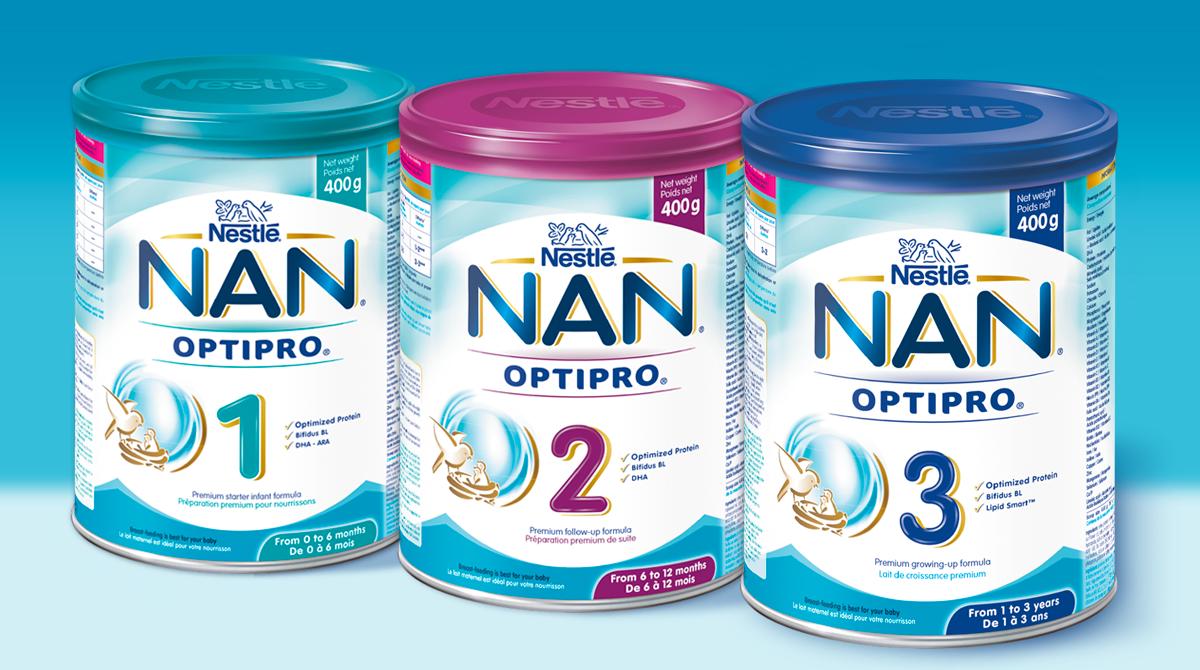
Previously, the early introduction of water and porridge to infants inhibited exclusive breastfeeding practices. Today, it is the introduction of infant milk formula. Infant formula is a breast milk substitute designed to meet the full nutritional needs of babies under 12 months of age. Internationally, the required components for formulas are set by the Codex Alimentarius, a joint food standards program overseen by the Food and Agriculture Organization of the United Nations and the World Health Organization. Individual countries can also set additional guidelines. In total, the Codex lists more than 30 required nutritional ingredients for infant formula, including vitamins and minerals, but the three major constituents are fats, proteins, and carbohydrates –the primary building blocks that little humans need to grow and develop.
Despite these advantages, exclusive breastfeeding (EBF) in Africa remains rare. Only 37% of infants under 6 months of age in Africa were exclusively breastfed in 2017, according to a study published in the Nature Medicine Journal. Many of EBF’s primary barriers involve cultural
The shift towards infant milk formula has been accelerated by urbanization and more women entering employment, leaving them with little time to breastfeed their babies. With Africa lacking sufficient infant formula production capacities, the rising demand for these products is satisfied by imports. According to a new report by the International Trade Centre, titled "Made by Africa: Creating
MAY/JUNE 2023 | FOOD BUSINESS AFRICA FOODBUSINESSAFRICA.COM 40
DAIRY BUSINESS AFRICA: INFANT FORMULA
ONLY 37% OF INFANTS UNDER 6 MONTHS OF AGE IN AFRICA WERE EXCLUSIVELY BREASTFED IN 2017, ACCORDING TO A STUDY PUBLISHED IN THE NATURE MEDICINE JOURNAL.
Value through Integration," Africa imports US$627.2 million of food preparations for infant use every year, and this figure is projected to exceed US$1.21 billion by 2026. Leading brands in the region include Nan by Switzerland-based food giant Nestle, Aptamil, which is produced by French food company Danone, Similac, which is owned by USbased Abbott Industries, and Enfamil, which is produced by UK-based consumer goods company Reckitt & Benckiser. Aspen Pharmaceutical, which was the only major infant formula producer on the continent, sold the business to Lactalis for US$860.1 million in 2018, giving the Francebased dairy company ownership of the Alula, Infacare, and S-26 brands.
Regionally, South Africa stands out as the most important infant milk formula market. South Africa's baby food market value was estimated to be US$618.999 million in 2020 and is expected to grow at a compound annual growth rate of 4.89% to reach a market size of US$864.499 million in 2027. West Africa as a region comes in second. According to Data Bridge Market Research, the market is growing with a CAGR of 6.4% in the forecast period of 2021 to 2028 and is expected to reach US$1.088 billion by 2028. Nigeria, West Africa’s largest market, imported infant foods worth US$36.6 million in 2021, a 25% increase from the previous year, according to data from Statista. In North Africa, Egypt is an important formula market. In the first nine months of 2022, data from the Central Agency for Public Mobilization
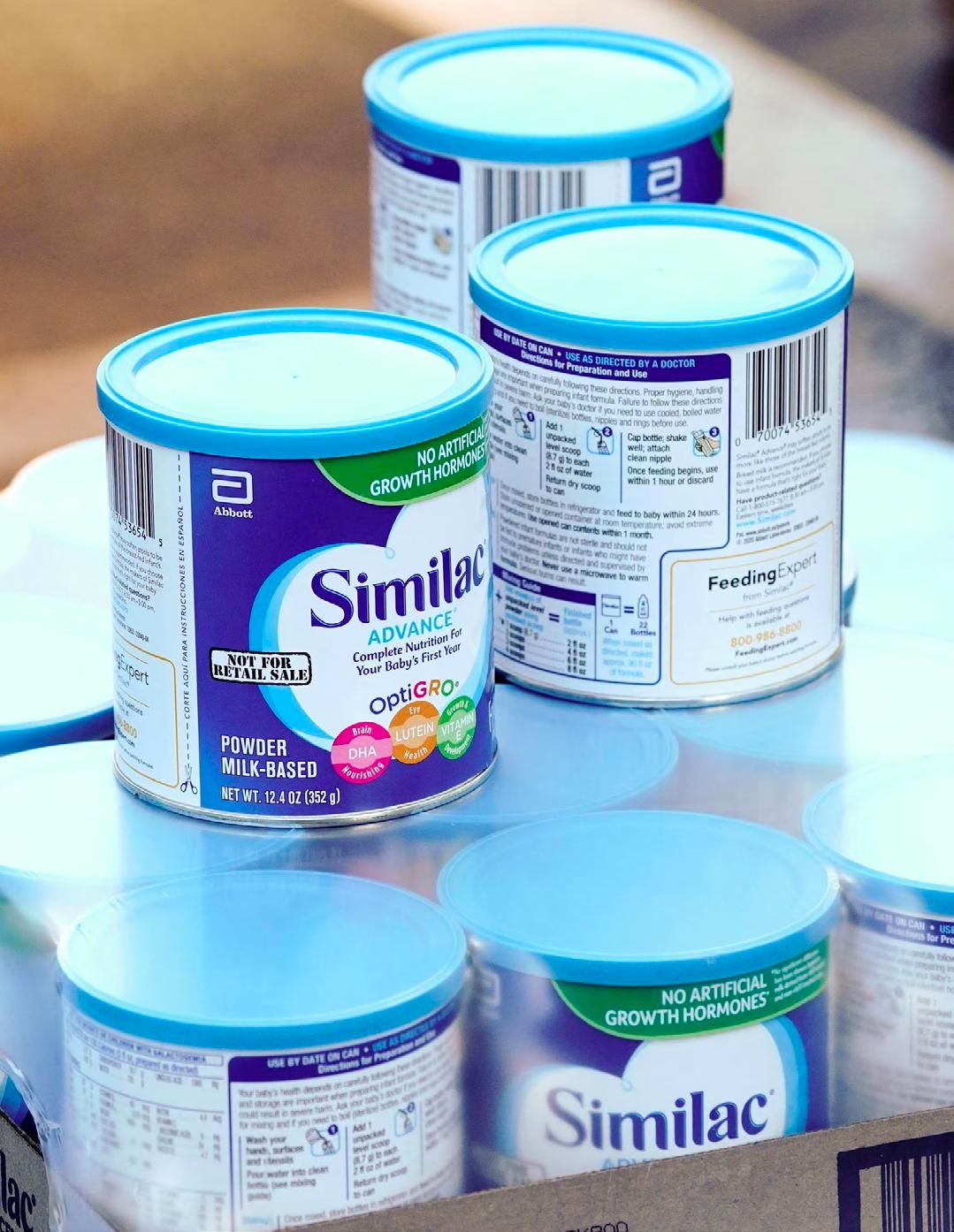
and Statistics revealed that baby formula imports increased by 2.5% in the first eight months of 2022 to US$73.9 million. In Egypt, infant formula prices are sensitive, and the government, through the military, has previously intervened by directly importing the products in an effort to reduce the retail prices.
OF US$864.499 MILLION IN 2027.
The key distribution channels in the African infant formula market are drugstores & pharmacies and hypermarkets & supermarkets. Drugstores & pharmacies are the primary distribution channel in the sector in 2021, creating the impression that the formula is physician-approved. Being a business of mostly perception and less science, UNICEF in its report also observed that women thought expensive formula products - sometimes containing specific ingredients such as human milk oligosaccharides (HMOs) or polyunsaturated fatty acids (PUFA) - were better than cheaper alternatives. This, despite systematic reviews reporting no health or brain development benefits from the addition of specific ingredients such as HMOs or PUFA, the report highlighted. When they can afford it, women also reported that they would go for expensive products out of the desire to give their child 'the best,' sometimes as a result of feeling guilty about not being able to breastfeed.
WORKING MOMS DRIVE GROWTH
Growth is mainly fueled by more women in Africa joining the workforce, which gives them high disposable incomes necessary to buy infant milk formula and less time to exclusively breastfeed their babies. A good example is in South Africa where the participation of women in wage employment has more than doubled from 23% in 1970 to about 49.54% in 2021, according to data from Statista. This can be directly associated with the high uptake of infant milk formula products when compared to other regions. Overall,
FOODBUSINESSAFRICA.COM MAY/JUNE 2023 | FOOD BUSINESS AFRICA 41
SOUTH AFRICA'S BABY FOOD MARKET VALUE WAS ESTIMATED TO BE US$618.999 MILLION IN 2020 AND IS EXPECTED TO GROW AT A COMPOUND ANNUAL GROWTH RATE OF 4.89% TO REACH A MARKET SIZE
2021 World Bank data shows that Africa has seen women's participation in wage employment rise to 39.2% and 46.2% when the total labor force is considered. Faced with limited time with their kids, these women are more open to the idea of substituting breast milk with infant milk formula than
to go back to work." Others, according to the report, start giving their babies formula because they will be going back to work say in two months' time, and they worry that their babies might not want formula if they are only introduced to it once they go back to work.
High birth rates and rising numbers of women of reproductive age in Africa are also expected to drive the infant formula milk market in the future. UNICEF, in 2015, projected that almost two billion babies would be born in Africa over the next 35 years. If the current trends remain, more children will mean a higher demand for infant milk formula, further increasing Africa's share of the market. With growth slowing in China, a major importer of infant milk formula, manufacturers are certainly expected to increase their focus on Africa to offset lost sales in the largest economy in Asia.
they would have if they had sufficient time to nurse their children to adulthood. A 2022 report by WHO and UNICEF validates this argument. According to the report, more than three-quarters (76%) of women agreed with the statement "formula feeding is the better choice if the mother plans
Perception of formula as a more desirable or modern option compared to breastfeeding is also one of the factors behind the growth being witnessed in Africa. Marketing by the major infant formula providers in the region, including Nestle, Danone, Lactalis, and FrieslandCampina, has been cited by many reports as the major reason behind this perception change. A 2022 report by UNICEF titled "How the marketing of formula milk influences our decisions on infant feeding" noted that formula companies used sophisticated techniques and misleading messaging to market their products, including scientific language and imagery, pain points, emotional and aspirational appeals, influenced South African women's perception towards breast milk.
When it comes to marketing, formula producers stop
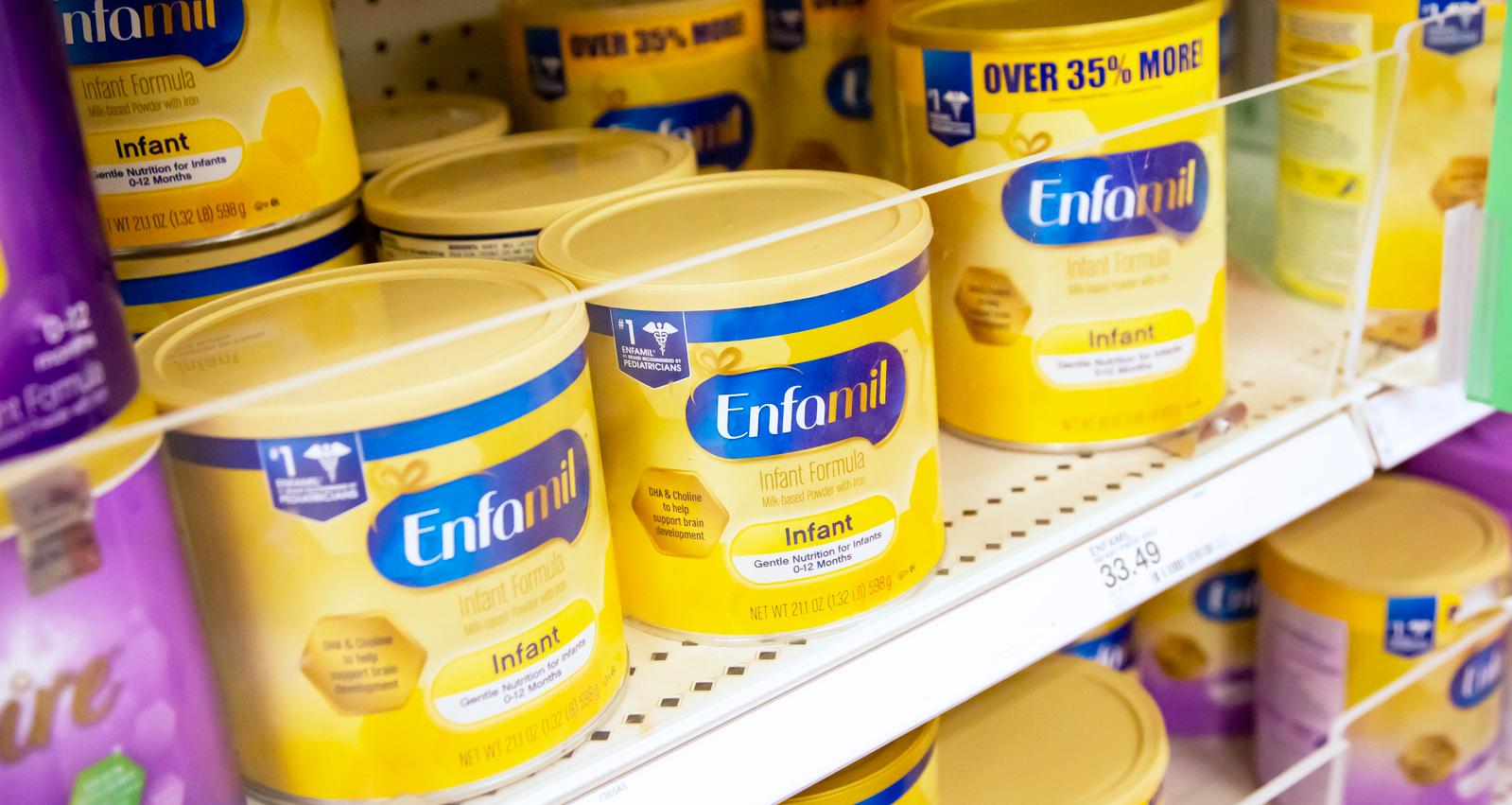
MAY/JUNE 2023 | FOOD BUSINESS AFRICA FOODBUSINESSAFRICA.COM 42
A GROWING NUMBER OF AFRICAN COUNTRIES ARE FIGHTING BACK AGAINST THE UNETHICAL MARKETING OF BREAST-MILK SUBSTITUTES BY TIGHTENING LAWS TO PROTECT THE HEALTH OF MOTHERS AND CHILDREN FROM MISLEADING MARKETING PRACTICES.
DAIRY BUSINESS AFRICA: INFANT FORMULA
at nothing in the quest to bring their products to as many women as possible. In South Africa, where marketing of formula for children under 1 year is highly restricted, UNICEF noted that formula products that fall outside this category are commonly packaged, branded, and labeled to closely resemble similar products for younger children — i.e. cross-promotion — creating brand awareness and some confusion over which products are BMS and which are not. The same practice was observed in Nigeria by ATNF, suggesting widespread occurrence on the continent.
Marketing goes further and involves using healthcare officials whose opinion is highly regarded by nursing mothers as brand ambassadors. Almost half (43%) of South African health professionals interviewed by UNICEF in 2022 reported that they had been directly contacted by a formula company representative, while others stated that their hospital was sponsored by a particular brand, so they recommended that formula product to women. The report further notes that one in five women (21%) had been advised to formula feed by a health professional and (20%) had received a brand recommendation from a health professional. Although unethical, these practices are influencing women towards preferring infant milk formula, subsequently resulting in rapid market growth.

RECALLS RAISES QUESTIONS ABOUT SAFETY
Early last year, consumers reported four infants who were sick, including three with Cronobacter sakazakii infections and one with Salmonella Newport, who had been fed formula products produced by Abbott Industries. This sparked a global recall that eventually led to an acute shortage of infant formula products in the United States and further raised concerns over the safety of infant formula products.
Although promises of far-reaching actions to enhance safety were made, nothing much seems to have happened as we continue to witness product recalls by various other companies, some of which export their products to Africa. In March 2023, Canadian officials posted a recall for Nestle Goodstart infant formula brand over possible contamination with Cronobacter, which can cause serious infections and often death, especially among young babies. That same month, Perrigo announced a voluntary recall of particular lots of their Gerber Good Start SoothePro Powdered Infant Formula in the United States due to a potential presence of an opportunistic, Gram-negative pathogenic bacterium. In infants, the bacterium can cause blood infections, meningitis, and necrotizing enterocolitis. A month earlier, Reckitt announced that it was voluntarily recalling some 145,000 cans of ProSobee Simply Plant-Based Infant Formula "due to a possibility of cross-contamination with Cronobacter sakazakii.” The recalls raise concerns over the safety of infant formula and further raise the profile of breast milk as the safest form of nutrition that an infant can ever receive.

FOODBUSINESSAFRICA.COM
SIGN UP FOR MILLING MIDDLE EAST AFRICA NEWSLETTERS! Sign up today to receive our biweekly food, beverage and milling plus packaging industry email newsletters. Never miss breaking news from Africa and the World, twice a week www.millingmea.com/signup
FACTORS LIMITING INFANT FORMULA MARKET
Although the infant formula market in Africa is growing, a number of factors are expected to limit its potential. Perhaps one of the largest inhibitors to growth is the high cost of these products. For instance, Nestle's Nan Infant Optipro sells at an average retail price of US$6 in most parts of the continent, a price which is way out of reach for more than 75% of the population that lives on less than 2 dollars a day. ATNF, in its 2021 report on infant formula, notes that the cost of purchasing economy brand infant formula by Nigerian families can be significant - up to 34% of a family's earnings for the first two years of a child's life. Such high costs make it difficult for most African families to afford formula, even when it is medically necessary.

The second greatest impediment is sustained efforts against widespread infant milk formula adoption by governments and non-governmental organizations. At the forefront of this fight is the World Health Organization, which in 1981 published the International Code of Marketing of Breast-Milk Substitutes that greatly limits the ability of infant milk formula producers to reach mothers. WHO is joined in its efforts to promote exclusive breastfeeding by other non-governmental organizations, including UNICEF, The International
Baby Food Action Network, and the Access to Nutrition Foundation (ATNF). These organizations monitor the implementation of the code and also regularly carry out awareness campaigns on the benefits of such practices to both infants and mothers.
KEY NUMBERS VALUE OF IMPORTED INFANT FOODS IN NIGERIA
US$36.6M
Kenya have clarified several issues in existing legislation to make additional provisions enforceable. This trend is expected to greatly limit formula marketing, which will have an overall negative effect on market growth.
GREAT MARKET POTENTIAL LIES AHEAD
Despite efforts by governments and NGOs in supporting EBF, breastfeeding rates have increased very little over the past two decades. Formula milk sales have more than doubled in roughly the same time due to a number of reasons, including more women joining the workforce and an increasing perception of baby food as a safe substitute for breastfeeding. These trends clearly present Africa as the next growth frontier for formula producers, particularly now that childbirths are declining in major markets, including North America and China.
To succeed in this market, formula producers must prioritize the quality and safety of their products as mothers who purchase infant formula in Africa are more often than not highly educated and thus demand products that have a strong, safe brand image and good health credentials for infants. Previous studies have shown that mothers' preferences for a 'best brand' were attributed to qualities such as being 'premium,' helping babies to gain weight, and being the 'closest to breastmilk.'
A growing number of African countries are fighting back against the unethical marketing of breastmilk substitutes by tightening laws to protect the health of mothers and children from misleading marketing practices. Three countries in the African region that previously had no legislation related to the CodeMauritania, Sao Tome & Principe, and Sierra Leone - have now passed new measures. Ethiopia has enacted a strong new directive to replace older legislation that covered only a few provisions of the code. A new decree in Côte d'Ivoire and regulations in
Laws restricting infant formula marketing and limited disposable incomes, however, present the greatest impediments to growth. Understanding the regulatory frameworks of different countries and producing affordable products will therefore be key to succeeding in Africa. Finally, local production in Africa has been an unexploited opportunity until now. Formula producers could exploit this gap to shorten their supply chains and produce more affordable products now that the market is forecasted to exceed US$1 billion by 2026. FBA
MAY/JUNE 2023 | FOOD BUSINESS AFRICA FOODBUSINESSAFRICA.COM 44
DAIRY BUSINESS AFRICA: INFANT FORMULA
Pharmacy is one of the main distribution channels for infant formula
BeverageTECH
TRENDS IN FORMULATING, PROCESSING, PACKAGING & CONSUMPTION OF BEVERAGE PRODUCTS
Beverage makers expand malt drink options as African consumers rediscover their lost passion
 By Abel Ndeda
By Abel Ndeda
Very little exists in terms of literature on the malt drinks market in Africa despite the beverage category constituting a significant portion of the non-alcoholic malt beverage segment on the continent. Allied Market Research predicts the global non-alcoholic malt drinks market to be worth US$6.43 billion in 2022 but does not provide specific data
on the market size of malt beverages in Africa. Does this imply that the market size of malt beverages in Africa is insignificant? No, not at all. On the contrary, the continent has one of the most blooming malt drinks markets in the world if the number of new innovative products is anything to go by. In markets such as Egypt and Nigeria, demand is particularly high, and so is competition. For this reason, malt
FOODBUSINESSAFRICA.COM MAY/JUNE 2023 | FOOD BUSINESS AFRICA 45
drink producers have been forced to build more than just one brand to remain competitive.
A SISTER TO BEER BUT WITHOUT THE ALCOHOL
A number of reasons make malt drinks popular among African consumers, chief among them being changing consumption patterns in favor of non-alcoholic drinks. Consumers seeking non-alcoholic beverages find malt drinks particularly exciting as they are produced with the same ingredients used in beer but without the alcohol associated with it.
To add to that, malt drinks are marketed as healthy drinks. Nigerian Breweries, which produces various non-alcoholic malt drink brands, has a whole article where it highlights the benefits of consuming malt drinks. According to the post, malt drinks contain soluble fibers that help improve food digestion and is also a rich source of energy-giving protein. It further notes that malt extracts contain fiber, potassium, folate, and vitamin B6, which help to lower cholesterol in the body and are, therefore, good for the heart. Nigerian Breweries finally opines that the high-water content in the drink makes it great for hydration. This statement is repeated by almost all other major non-alcoholic malt drink brands in Africa, and the message resonates well with consumers who are increasingly seeking foods that improve their overall well-being.
NIGERIA STANDS TALL IN MALT DRINK CONSUMPTION.
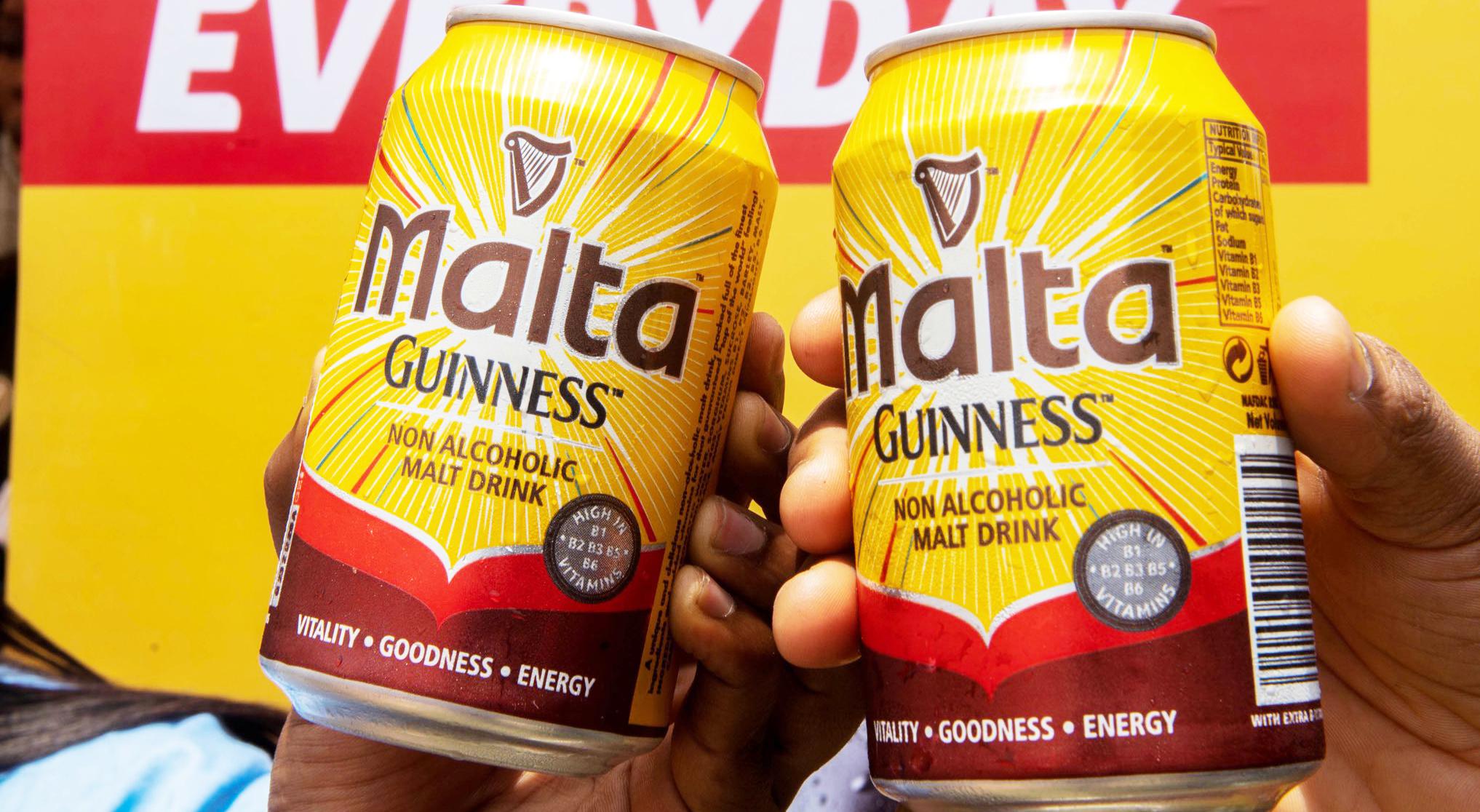
Nigeria stands head and shoulders above others when it comes to malt drink consumption. According to a
IN 11 COUNTRIES - CAMEROON, NIGERIA, GHANA, ETHIOPIA, MAURITIUS, BENIN, BURKINA
Canadean report, Nigeria is the largest malt market in Africa, responsible for 74% of all malt sales on the continent. Here, malt drinks are immensely popular and are considered the perfect accompaniment to the national dish: jollof rice and fried meat. With such immense popularity, it's not surprising that Nigeria has the highest number of malt drink brands of any country on the continent. There are more than 10 malt drink brands jostling for the attention of the more than 200 million people living in the country.
Over half of these brands are, however, produced by local subsidiaries of three multinationals: Heineken, Diageo, and AB InBev. Heineken majority-owned Nigerian Breweries produces Maltina (the country’s oldest malt
MAY/JUNE 2023 | FOOD BUSINESS AFRICA FOODBUSINESSAFRICA.COM 46
BEVERAGE
TECH AFRICA: MALT DRINK
MALTA GUINNESS IS A HUGELY SUCCESSFUL AND PROFITABLE BRAND AVAILABLE
FASO, IVORY COAST, LIBERIA, GABON, AND TOGO.
drink scene in 2022.
drink brand), Amstel Malta, and Hi Malt while Diageo-owned Guinness Nigeria produces Malta Guinness and Dubic Malt. Meanwhile, International Breweries, which is owned by AB InBev, produces Grand Malt and Beta Malt.
Malt drinks' popularity, however, extends beyond Nigeria and is very much present in much of West and Central Africa. Although Malta Guinness has found great acceptance in Nigeria, the drink was first conceived in Cameroon in 1984, and today it’s the most widely distributed malt drink in Africa. According to Guinness Nigeria, Malta Guinness is a hugely successful and profitable brand available in 11 countries - Cameroon, Nigeria, Ghana, Ethiopia, Mauritius, Benin, Burkina Faso, Ivory Coast, Liberia, Gabon, and Togo.
In Egypt, demand is also notably high. Like in many Islamic countries, alcohol consumption is frowned upon, making non-alcoholic alternatives
KEY NUMBERS
US$6.43B
attractive to consumers. The country’s largest brewer, Al Ahram Beverages, quenches the thirst of many Egyptians with its two popular brands, Birell and Fayrouz. Ethiopia also has a significant malt drink market which had for a long time been dominated by Diageo’s Malta Guinness Brand. Competition has, however, intensified with the launch of Sen’Q by BGI Ethiopia in 2021 and the entry of Heineken Ethiopia-owned Bertat into the malt
East Africa has also had its fair share of malt drinks. For a long time, Malta Guinness, produced locally by East African Breweries, was popular in Kenya before its eventual withdrawal in 2007. A year later, East African Breweries launched a new non-alcoholic malt drink under the Alvaro brand. Coca-Cola, the market leader in the soft drink beverage market, responded with the launch of its own non-alcoholic drink under the Schweppes Novida brand. The two brands were later introduced in Uganda, with Coca-Cola taking a step further and launching its Novida brand in Tanzania just to stay ahead of its newfound competitor in the soft beverage market. The two existed as the only malt drink brands for a while before the entry of new players. In Kenya, Brava Food Industries has a range of malt drinks under the Malto brand that competes with the two multinationals while in Uganda, Harris International has a malt drink under the Riham Brand. In Tanzania, competition is particularly intense, with both Bakhresa Group and Mohammed Enterprises Limited having malt drinks in their portfolio under the Azam and Mo brands, respectively.
The popularity of non-alcoholic malt drinks is yet to pick up in Southern Africa, with Breva Fruit Malt disappearing from the market a few years after it was launched. The only time South Africans get to drink nonalcoholic malt drinks is when they try out Castle Free, a zero-alcohol beer was launched by South African Breweries in 2017. According to a report by Engineer News, Castle Free gained popularity during the Covid-19 period when alcohol sales were banned and has continued to record higher sales long after the ban was lifted.
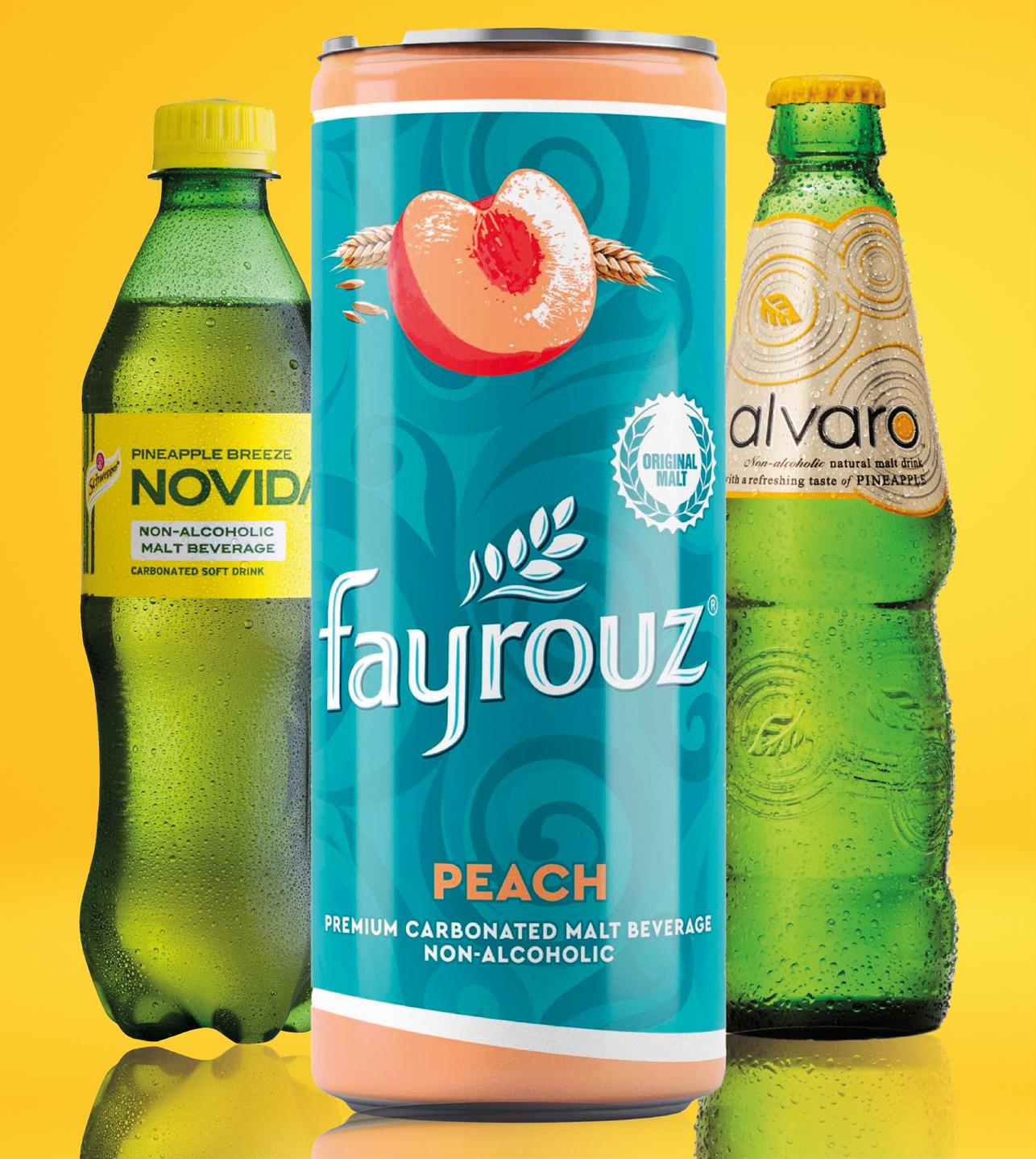
PRODUCT RANGES EXTEND BEYOND DARK MALT
Africa is dominated by dark malt, which is brewed using roasted barley, giving the drink a much darker color.

FOODBUSINESSAFRICA.COM MAY/JUNE 2023 | FOOD BUSINESS AFRICA 47
GLOBAL NON-ALCOHOLIC MALT DRINKS MARKET IN 2022
THE SIZE OF
Michael Ramsell, beverage analyst at Canadean
Michael Ramsell, a beverage analyst at Canadean, says: "Dark malt drinks dominate the region and are marketed at children and working-class consumers who prefer sweettasting beverages.” Almost all the most popular drinks in the region, including Malta Guinness, fall under this category of malt drinks. Ramsell, however, notes that clear malts have become more popular after being introduced as an adult

beverage in an attempt to attract a more affluent and wider audience. This is especially true in the East African region where the leading brands Alvaro and Schweppes Novida are all clear malt drinks.
Consumer desire for new flavor experiences has also seen the introduction of new malt flavors. Schweppes Novida is, for instance, available in three flavors - Pineapple, Apple, and Tropical while its competitor Alvaro is available in two, Pineapple, and Pear. Meanwhile, Egypt’s popular malt drink Fayrouz was originally available in Apple flavor, but more flavors including Pineapple, Mango, Peach, and a mix of Apple Watermelon have been added to appeal to a wide range of consumers. The product is today available in multiple markets, including Morocco, Qatar, Nigeria, Turkey, Saudi Arabia, and Iran.
Another notable development in the malt drink category in Africa is the launch of malt energy drinks to tap into the rising demand for energy and malt drinks. Dutch multinational brewer Heineken is championing this trend across the continent through its local subsidiaries. In Ethiopia, the company launched Bertat Energy drink to appeal to young adult men. The new drink which came to market in 2022 fuses the nutritional benefits of malt drinks, including vitamins B6 and B12, with the energy bursts associated with energy drinks. Earlier, Heineken subsidiary Brassivoire had released to market its Rhino Energy
MAY/JUNE 2023 | FOOD BUSINESS AFRICA FOODBUSINESSAFRICA.COM 48
DARK MALT DRINKS DOMINATE THE REGION AND ARE MARKETED AT CHILDREN AND WORKING-CLASS CONSUMERS WHO PREFER SWEET-TASTING BEVERAGES
BEVERAGE TECH AFRICA: MALT DRINK
brand in Cote d’Ivoire. Rhino Energy Malt is a lighter, more refreshing malt-based drink that is explicitly marketed as an energy drink and contains taurine, ginseng, caffeine, and vitamins B3, B5, B6, and B12. Similarly, in DRC, Heineken’s Bralima markets the Energy Malt brand, featuring a rhino in the logo, with the same formulation.
Heineken majority-owned Nigerian Breweries crowned it all by launching Zagg Malt Infused drink in November 2022. “Zagg was brewed to help the average Nigerian keep up with the demands of everyday life,” says Elohor Olumide-Awe, the brand’s representative and Portfolio Manager, Non-Alcoholic brands, Nigerian Breweries PLC. During the launch, Olumide-Awe noted that it was quite rare to come across a malt-infused energy drink. “We chose to make Zagg a fusion of ingredients that are normally brewed separately to show our consumers that they do not have to be one thing. They can be jacks of different trades and be masters of them all,” she added.
Although marketed as healthy, health-conscious consumers have always had an issue with the sugar level in many malt drinks. In response to consumer concerns, malt drink producers have launched low-sugar malt drinks. Amstel Malt and Malta Guinness low sugar are some of the products that fall under this category. Taste is, however, key

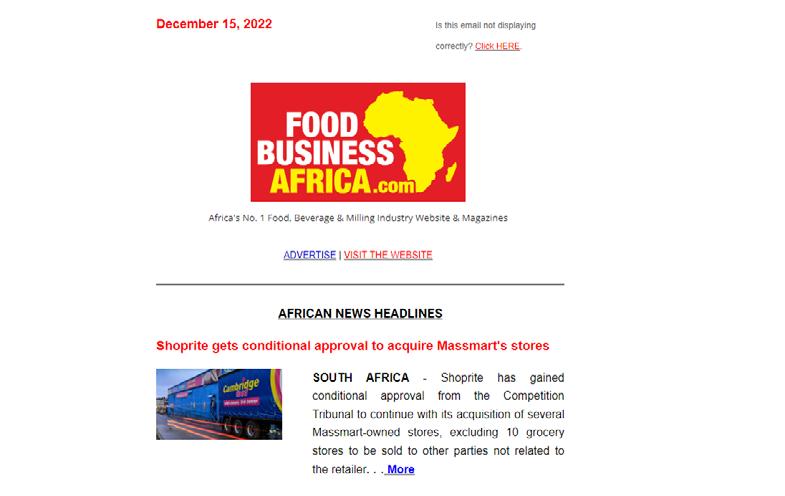

to the acceptance of these products. In an interview with In a local publication, Bona Odinaka, a shop owner in Nigeria said: “The sales of the new Malta Guinness low-sugar are very slow due to its taste, compared to Amstel Malta with low-sugar but good taste.”
Last but not least is the introduction of malt coffee drinks, which are a blend of malt flavors and coffee. The trend is gaining popularity in East Africa, especially among homegrown brands. In Kenya, Brava Food Industries has Bravo Malto Coffee, which falls under this category. Across Tanzania, Bakhresa Group has Azam Malti Coffee, while in Uganda, Hariss International has Riham Coffee Malt.

Despite their perceived superior nutritional qualities, most malt drinks in Africa are targeted at adult drinkers, effectively locking out children who are a key component of the population. Seeking to take advantage of this gap, Chi Limited, a Nigeria-based subsidiary of the Coca-Cola company, launched Chivita Smart Malt Drink in 2022, with children as the primary target. The beverage is rich in Vitamin A, B1, B2, B3, B5, B6, B12, and E to boost the overall well-being of children. According to a statement from the company, Chivita Smart Malt Drink is specially designed for all the smart mums out there who want to give their kids the right energy to learn and play.

Sign up today to receive our bi-weekly food, beverage and milling plus packaging industry email newsletters. Never miss breaking news from Africa and the World, twice a week SIGN UP FOR FOOD BUSINESS AFRICA NEWSLETTERS! www.foodbusinessafrica.com/signup
NEW MALT PACKAGING EMERGE
For a long time, the continent has been accustomed to glass bottles as the primary packaging for malt beverages. Competition from new brands has, however, seen players in the field become innovative with their packaging to boost brand image, cut costs, and enhance convenience for consumers. Aluminum has been particularly sought after by brands seeking to refresh their brands and make them appealing for modern consumers. In Nigeria, where competition is particularly stiff, all major brands from Malta Guinness to Maltina and Amstel Malt all have aluminum can versions. Taking a step further, Nigerian Breweries introduced the tetrapak ‘Maltina sip it’ that made the drink more handy and accessible. The company also changed the bottle design from the conventional – short and rotund – to a more modern and unique design.
The convenience, affordability, and reliability afforded by PET bottles has also not gone unnoticed by Malt Drink manufacturers. Almost all major malt drink brands, including Malta Guinness, Maltina, and Fayrouz, are available in PET bottles. PET is especially favored by homegrown brands which aim to make their product as affordable as possible and lack the financial capability of deploying other more expansive packaging formats such as glass and aluminum
cans. This explains why all of these brands from Riham to Azam and Mo Malt are available exclusively in PET bottles.
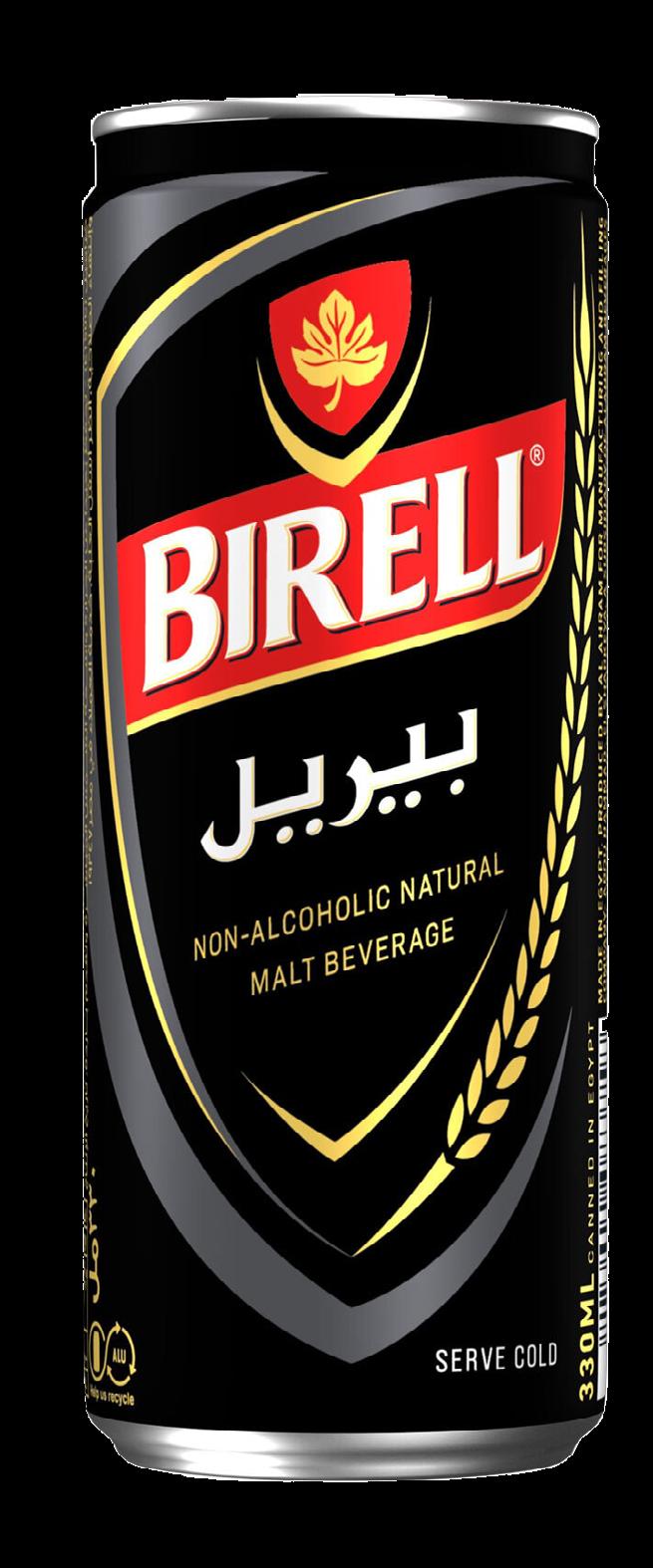
THE FUTURE LOOKS BRIGHT
The demand for non-alcoholic malt beverages is expected to remain strong in the near future as more consumers recognize the benefits of these drinks. According to Future Market Insights, the global non-alcoholic malt beverage segment could grow at a CAGR of 3.2% and reach US$48.9 billion by 2032. FMI predicts that beverage manufacturers' product innovation will help drive growth in this category over the next decade.

Africa, the focus of this article, is expected to perform exceptionally well as more people enter the middle class and have disposable incomes to purchase malt drinks, which are mostly considered a luxury. Africa already has the world's fastest-growing middle class, with 313 million people, or 34% of Africa's population, belonging to this group. This number is expected to grow to 1.1 billion by 2060. This large, untapped population, combined with the positioning of malt drinks as healthier alternatives to alcohol and conventional carbonated soft drinks, presents the perfect opportunity for existing and new investors in the category.
However, Euromonitor International notes that new entrants will face challenges from well-established market players. Nonetheless, there is potential for companies to take advantage of the current expansion in the sub-Saharan African retailing sector. Companies can target retailers which can act as a launch platform for new products. Ramsell, a beverage analyst at Canadean, advises regional malta brands to keep innovating to keep their customers interested. Ramsell suggests that in the short term, malta brands can stay innovative by offering clear malt in a range of flavors such as peach, pomegranate, and raspberry. FBA
MAY/JUNE 2023 | FOOD BUSINESS AFRICA FOODBUSINESSAFRICA.COM 50
PET IS ESPECIALLY FAVORED BY HOMEGROWN BRANDS WHICH AIM TO MAKE THEIR PRODUCT AS AFFORDABLE AS POSSIBLE AND LACK THE FINANCIAL CAPABILITY OF DEPLOYING OTHER MORE EXPANSIVE PACKAGING FORMATS SUCH AS GLASS AND ALUMINUM CANS.
BEVERAGE TECH AFRICA: MALT DRINK
FOOD INGREDIENTS
Monk fruit presents itself as a viable natural alternative to sugar
 By Martha Kuria
By Martha Kuria
Research done by the Massachusetts General Hospital in August 2021 showed that cutting down 20% of sugar from packaged foods and 40% from beverages could prevent 2.48 million cases of cardiovascular disease, 490,000 deaths related to cardiovascular disease, and 750,000 diabetes cases in the U.S. This and many other similar studies have influenced public
perception towards high sugar foods. The International Food Information Council’s (IFIC) 2022 Food and Health Survey found 73% of consumers say they are trying to limit or avoid sugars in their diet. Unsurprisingly, despite their desire for low sugar foods, consumers are also unwilling to give up on taste.
A May 2022 study by IFC revealed that 86% of consumers considered taste as the most important reason
FOODBUSINESSAFRICA.COM MAY/JUNE 2023 | FOOD BUSINESS AFRICA 51
NEW TECHNOLOGIES AND MARKET TRENDS IN THE FORMULATION OF FOOD & BEVERAGE PRODUCTS
for purchasing a specific food or beverage brand. To meet these seemingly opposing demands, food formulators have turned to intensely sweet non-calorific sweeteners which deliver the taste but without the calories normally associated with sugar. Even within non-calorific sweeteners, the trend is shifting towards naturally sourced alternatives which are believed to be safer than their synthetic peers. Among the natural sweeteners being explored by food and beverage manufacturers is monk fruit, a small round fruit native to southern China that is calorie-free and up to 300 times sweeter than sugar.
MORE THAN JUST A SWEETENER
Although relatively novel in commercial food and beverage production, the Chinese and Indonesians have used monk fruit for decades as a natural sweetener in foods and also as a household remedy for nourishing the lungs and treating sunstroke, dire thirst, constipation, sore throat, cough, and cold.

With technology, scientists have been able to isolate mogrosides as the compound responsible for the intense sweetness that Monk Fruit is known for. Unlike most other natural sweeteners, including the widely used Stevia, mogroside has been found to have a better aftertaste profile than other natural options. “Monk fruit is arguably a better tasting product,” said Chris Tower, president of Layn USA, Newport Beach, Calif., which is involved in both stevia extracts and monk fruit extracts. “Stevia largely needs to be masked with other ingredients.”
Thom King, CEO at sweetener specialist Icon Foods
also believes that Monk Fruit has interesting masking and sweetness modulation qualities that come through when monk fruit is blended with other glycosides like stevia. "The combination of the two can mask off-notes in many applications as well as masking each other's respective offnotes, being melon rind with monk fruit and licorice with stevia," said King.
Mogroside benefits go even further to support better health outcomes. Research by Suzuki 2017, found mogroside V to have a strong antioxidant capacity, effectively scavenging reactive oxygen species (ROS) to help the body’s efforts against oxidative stress. In a different study by Jin & Lee, 2012, monk fruit extract was found to be able to help consumers better manage blood glucose levels.
FOOD AND BEVERAGE MAKERS EMBRACE MONK FRUIT

Monk fruit’s better tasting profile and superior nutritional profile has aroused interest from beverage makers keen to reduce the sugar content of their products. Blake’s Hard Cider (BHC) is among the pioneer users of monk fruit. The company noted that with monk fruit, it was able to limit the calories in its Sorta Pop probiotic soda to less than 25.
Kraft Heinz Co., is also on the record saying that by using monk fruit it was able to reduce the sugar in its Capri Sun juice drink by 40%. In 2022, New York based Swoon announced the launch of its Zero Sugar Swoon Sweet Tea “made with steeped and brewed black tea and sweetened with naturally sugar-free monk fruit.” Other products in the market with monk fruit either as a full substitute or in ratios
MAY/JUNE 2023 | FOOD BUSINESS AFRICA FOODBUSINESSAFRICA.COM 52 FOOD INGREDIENTS AFRICA: MONK FRUIT
include Hard Bubbly from FUN WINE, and “Basis,” a high electrolyte ready-to-drink from Denver Bodega among others.
Monk fruit sweeteners use transcended the beverage aisle and have been used in dairy products, desserts, candies and condiments. Because they are stable at high temperatures, monk fruit sweeteners can be used in baked goods. Among bakeries that are utilizing Monk sweeter are Bakery on Main (An American bakery that uses monk fruit sweetener in a range of gluten-free and grain-free products, including granolas and bars) Sweet Loren's, Simple Mills, Nourish Snacks in Australia, and Baked Bliss in Canada.
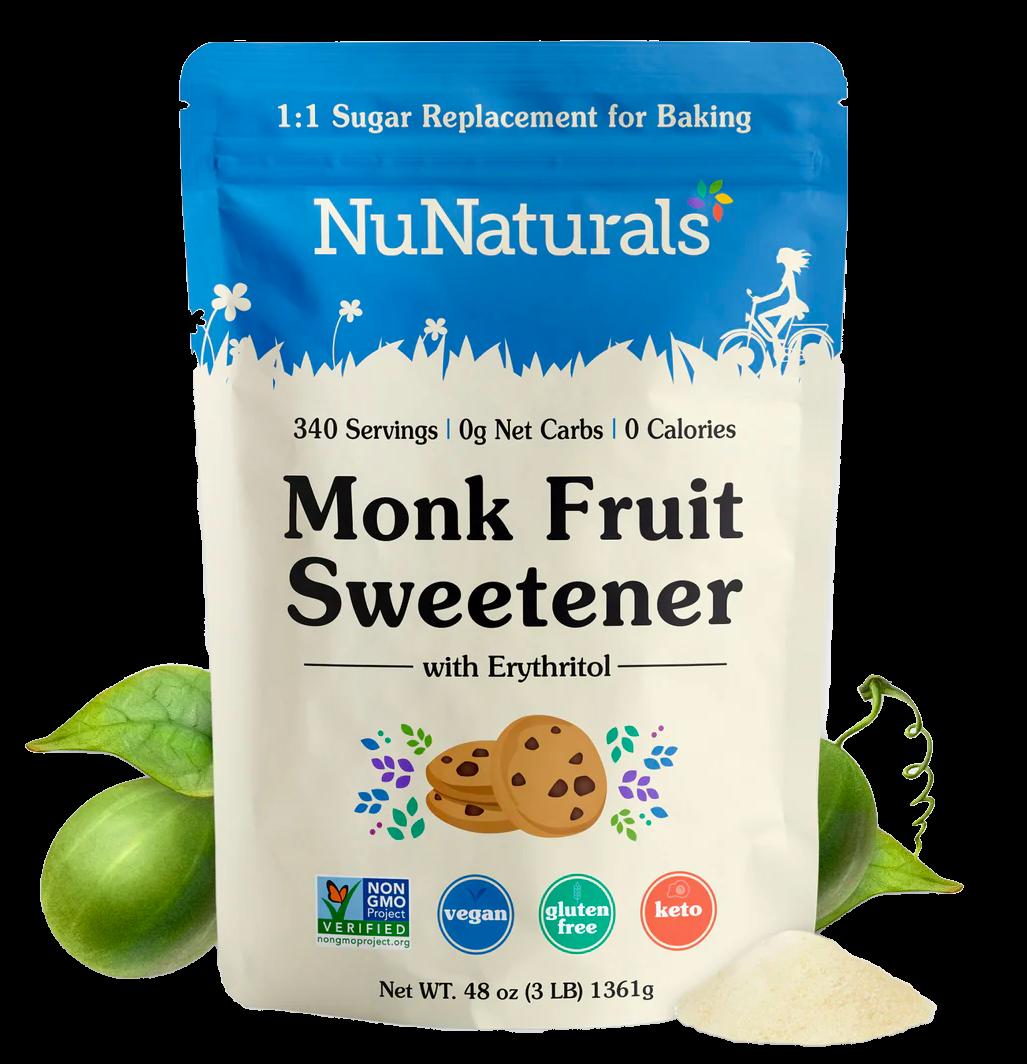
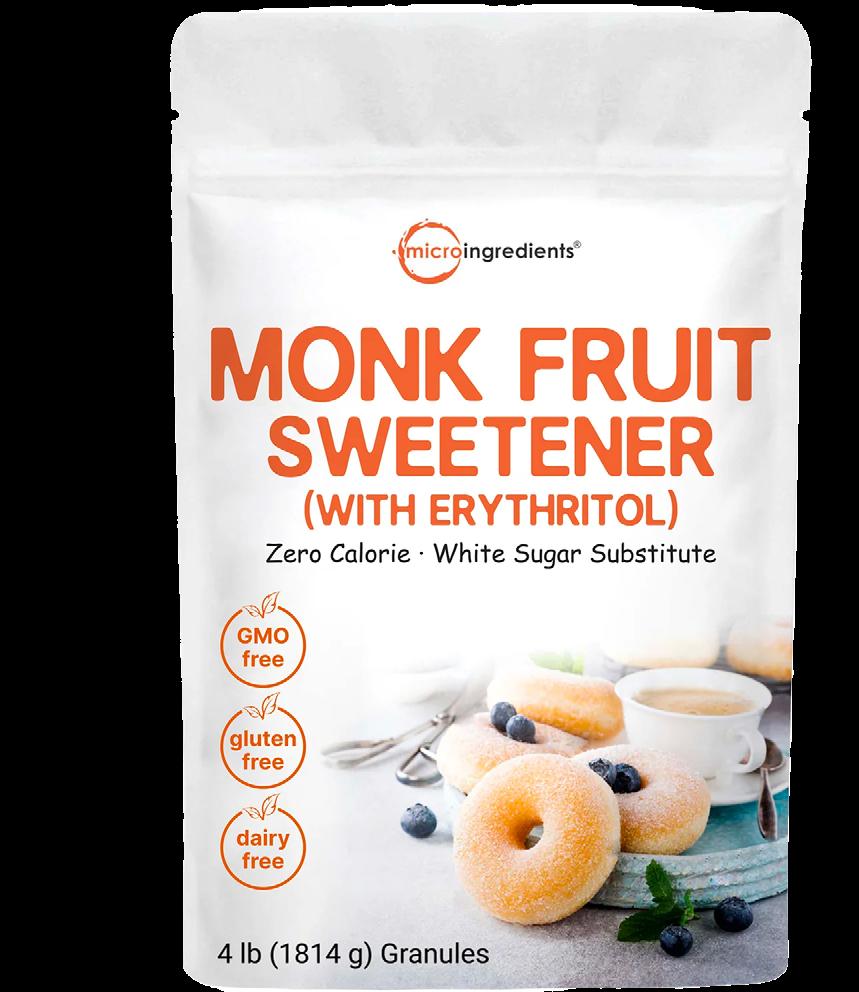
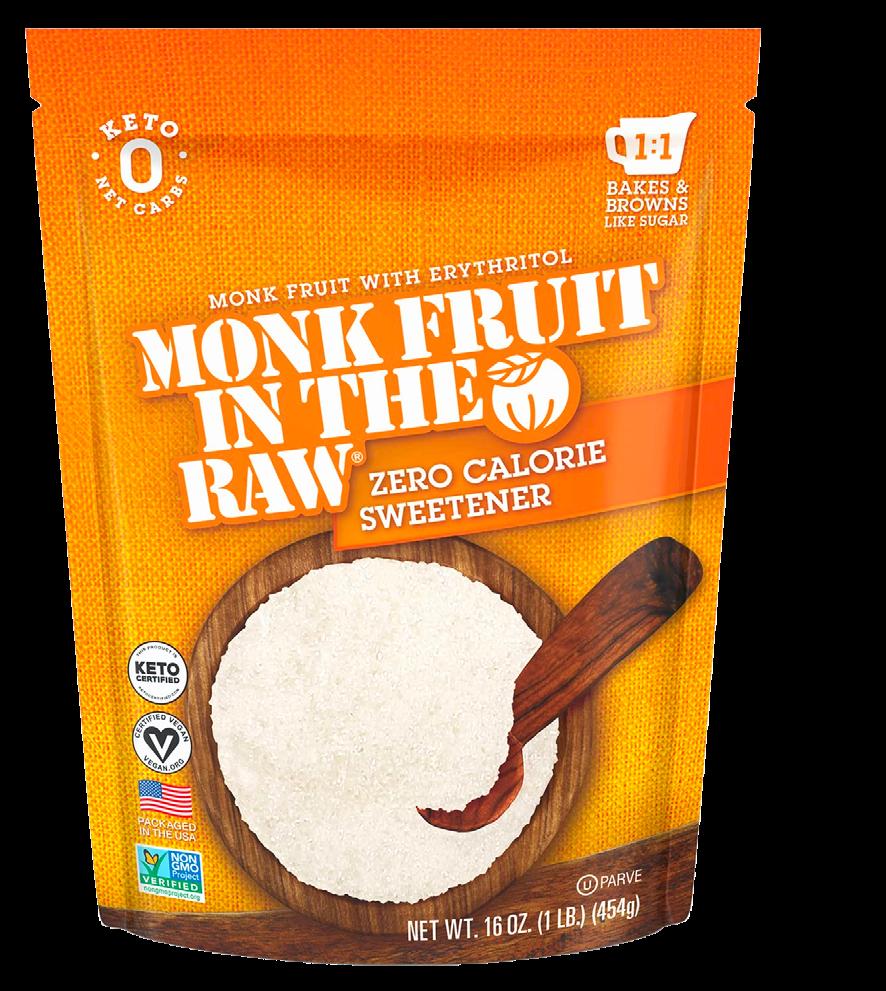
Replacing sugar in baked goods is however not a straightforward process as Sugar, like every ingredient, serves a purpose in baked goods beyond adding sweetness and flavor. Sugar contributes to moistness by binding water, provides structure and leavening, aids in browning and crispness via the Maillard reaction, and acts as a preservative by slowing bacterial growth. When used for baking, pure monk fruit sweetener may therefore be less desirable as it does not have the bulk that sugar provides to a recipe. To make up for the sweetener’s weakness, bakers have found success by mixing monk fruit sweetener with erythritol which adds bulk to the recipe resulting in a product that looks and tastes more like a product made with sugar. Icon Foods, Portland, recently introduced Icon Sweet, a blend of allulose, erythritol, stevia, and monk fruit. According to Thom King, the company CEO, the blend is a clean-label sweetening system that also provides functionality, such as participating in Maillard browning and is at par with sucrose in terms of sweetness.
The proprietary blend of monk fruit and stevia extract brings sweetness levels to that of sugar and adds useful masking that eliminates any off-notes occasionally imparted by stevia and monk fruit according to studies. Allulose can activate leavening and it can participate in Maillard caramelization, making it an important addition to the sugar alternative blend. When allulose is used, using a precise amount of erythritol is recommended as erythritol suppresses the allulose’s tendency to burn at temperatures above 280˚F. The synergy of all these clean-label compounds creates a symphony of neutral sweeteners with no added sugars to the Nutritional Facts panel.

MORE SUPPLIERS ADD MONK FRUIT TO THEIR PORTFOLIO
With the popularity of monk fruit on the rise, more suppliers have started producing monk fruit-based sugar substitutes
FOODBUSINESSAFRICA.COM MAY/JUNE 2023 | FOOD BUSINESS AFRICA 53
MONK FRUIT IS A SMALL ROUND FRUIT NATIVE TO SOUTHERN CHINA THAT IS CALORIE-FREE AND UP TO 300 TIMES SWEETER THAN SUGAR
to capitalise on the demand from food and beverage manufacturers. Among them are Lakanto, a leading brand in monk fruit sweeteners, offering a range of products, including sweetener packets, syrups, and baking mixes.
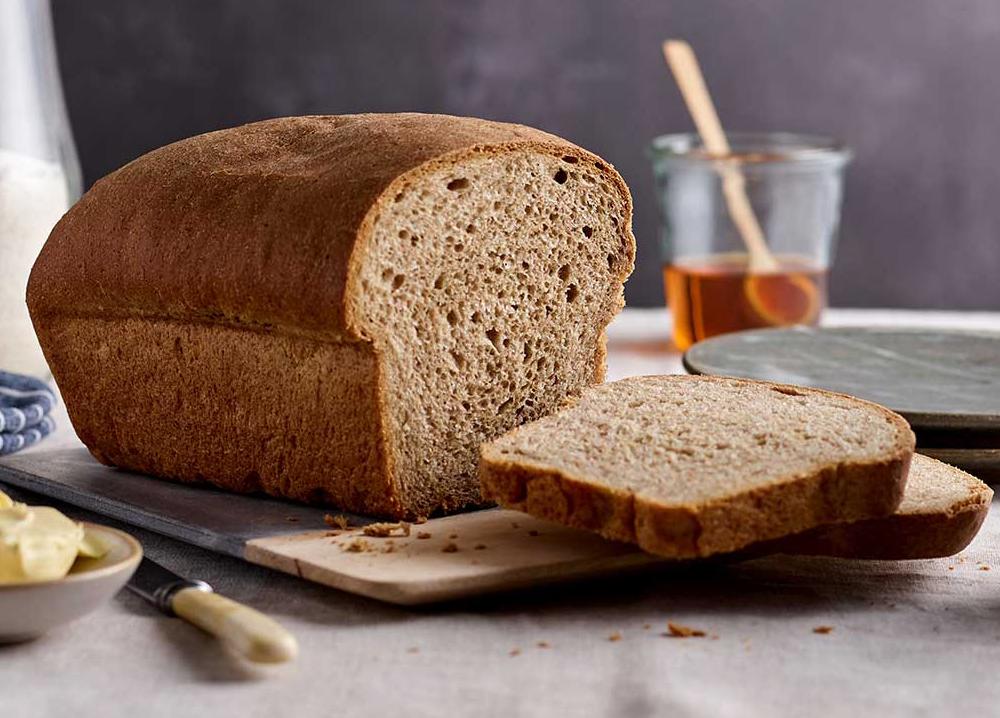
To accelerate the route to market, ADM partnered GLG Life Tech Corporation (GLG) in 2016. “GLG will produce an extensive array of low-calorie sweeteners made from stevia and monk fruit, while ADM will be the exclusive global marketer and distributor of those ingredients to food and beverage companies worldwide,” said Rodney Schanefelt, then Director of sugar and highintensity sweeteners, for ADM.
Van Wankum Ingredients, a global supplier of food ingredients also has monk fruit extracts in liquid, powder, and granular form for use in the beverage industry. Layn USA, a subsidiary of Guilin Layn Natural Ingredients, offers monk fruit sweeteners under a Gu-Luo trademark. Gu-Luo has been shown to reduce sugar in applications by 50% through the addition of monk fruit extract at 0.5% along with additional water to make up for lost volume. The company also offers Lovia, which is a blend of Rebaudioside A extracted
KEY NUMBERS
from stevia leaves and mogroside V extracted from monk fruit
London-based Tate & Lyle, on the other hand, offers monk fruit extract under the Purefruit brand. According to the company, the product is a "clean label" as the manufacturing includes a water-based extraction process along with filtration to clean the extracts’ taste and leave no bitter or metallic off-taste. Cumberland Packing Corp. recently launched “Monk Fruit In The Raw”, a zero-calorie natural sugar substitute, at the retail level in October 2022.
INNOVATION GATHERS PACE
Innovation in monk fruit sweeteners continues, with additional offerings being introduced for specific customer needs. Different sweetness
potencies and purities allow for specific applications to be optimized for regulatory compliance, label attractiveness, and use level/taste performance to be delivered for specific applications. Several firms are also working on technical innovations to bring prices down. In 2019, Chinese plant-based sweetener producer Layn Corp. launched the 'Super V Fruit,' a proprietary variety of monk fruit designed to naturally produce 20% more mogrosides.
North Carolina-based Elo Life Systems, meanwhile, is retooling the DNA of easier-to-grow melon varieties to produce mogroside V with plans to introduce a new natural sweetener with a cleaner taste profile, more affordable price tag, and a higher sweetness intensity than monk fruit extracts currently on the market. Icon Foods, in turn, is working with a partner on a project to produce mogroside V via glucosylation using enzymatic bioconversion. This process is expected to transform a lower grade mogroside V starter material to a higher-grade material, as with glucosylated steviol glycosides. "We are a year out from rolling this out, but this should stabilize pricing and bolster the supply chain," says Icon Foods.
There are also advancing innovations in the extraction and separation processes focusing on conservation to minimize water and energy use while improving product yield, quality, and cost. At the field level, producers are experimenting with bumblebee pollination to replace artificial pollination, introducing germ chitting (the process of improving the content of the glycoside V in fruit through seedling optimization), and exploring mechanized automatic picking.
MONK FRUIT DESTINED FOR THE PREMIUM AISLE
Monk fruit growth over the past decade has been phenomenal. Since the 2010 FDA approval of monk fruit as a common sweetener, demand has
MAY/JUNE 2023 | FOOD BUSINESS AFRICA FOODBUSINESSAFRICA.COM 54
PROJECTED MONK FRUIT SWEETENER MARKET SIZE BY 2030. US$300M
FOOD INGREDIENTS AFRICA: MONK FRUIT
continued to grow. By June 2019, there were an estimated 4,300 consumer products sweetened with monk fruit on the market and 8,000 by June 2021 with applications across beverage, dairy, tabletop sugar substitutes, baked goods, cereals, and nutritional supplements. The market is expected to expand even further as more players incorporate monk fruit into their low-sugar formulations. “The demand from consumers for sugar reduction solutions that are not artificial suggests a bright future for monk fruit and other non-artificial sweeteners,” said Jim Carr, director of global ingredient technology for sweeteners at Tate & Lyle. “Launches with monk fruit are more likely to feature claims linked to trends such as ‘naturalness’, ‘plant-based’ and ‘free-from’ than launches that contain any other type of intense sweetener.”

In value terms, Data Bridge Market Research forecasts the monk fruit sweetener market to witness 5.40% growth between 2021 and 2028 to reach a market value of US$300 million by 2028. North America and Europe dominate the monk fruit sweetener market because of the increasing demand for naturally derived sweeteners. However, the high price associated with monk fruit sweeteners, limited volumes, and the presence of a large number of artificial sweeteners are expected to limit growth. Lack of awareness regarding the product among consumers is also another challenge and might limit the monk fruit sweetener market in the forecast period of 2021 to 2028, according to Data Bridge Market Research.
Nancy Hughes, president at Apura Ingredients, a leading supplier of sweeteners to the North American market, says monk fruit and stevia are currently positioned
in the middle-level product market but "are destined to be different in their market directions." "The stevia industry is more suitable in the direction of middle-to-low and middlelevel markets, whereas monk fruit is more appropriately positioned in the mid-to-high or high-level product market," she said, putting forth that monk fruit has a better overall taste and the advantage of being a clean label. Those desiring to use it despite the cost, King advises pairing the sweetener with other bulk sweeteners such as allulose and erythritol. He notes that such a composite profile creates a sweetener that has parity with sucrose in applications making it a plugin for sugar while providing volume to mitigate monk fruit cost, which continues to be relatively expensive compared to stevia. FBA
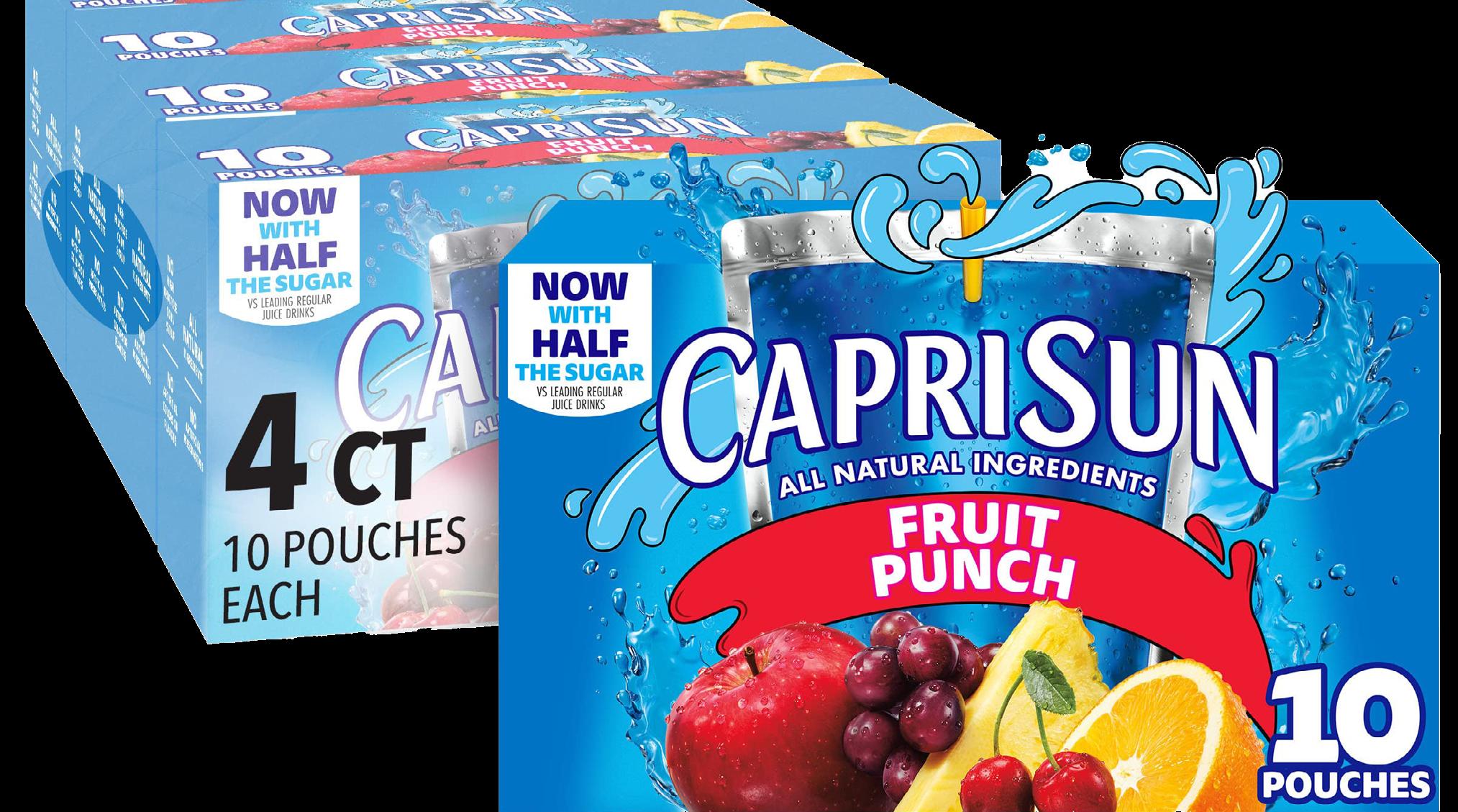
FOODBUSINESSAFRICA.COM MAY/JUNE 2023 | FOOD BUSINESS AFRICA 55
BAKERS HAVE FOUND SUCCESS BY MIXING MONK FRUIT SWEETENER WITH ERYTHRITOL WHICH ADDS BULK TO THE RECIPE RESULTING IN A PRODUCT THAT LOOKS AND TASTES MORE LIKE A PRODUCT MADE WITH SUGAR.
Market Trends
Retail in Africa is a bag full of opportunities steeped in immense challenges
 By Alphonce Okoth
By Alphonce Okoth
The African retail market is set to boom in the next decade driven by a rapidly expanding middle, the emergence and wider adoption of technologies, and the operationalization of the African Continental Free Trade Area (AfCFTA). According to Euromonitor International, retail sales in the region amounted to over US$500 billion in 2018. This could exponentially increase particularly under AfCFTA which has a combined market of 1.2+ billion people and a GDP of US$2.5 trillion!
Let's however not get ahead of ourselves. Africa's retail landscape is far from being monolithic. Each of the 55 independent states has its own unique retail market with economies and consumption patterns that are anything but similar to their neighbor. Still, a lot of billions are to be made in Africa particularly now that the retail landscape in Europe and North America is approaching its saturation point with little room for further growth. But how does one win in Africa? This article explores the complex nature of the retail industry in Africa and the trends that are forecasted to
MAY/JUNE 2023 | FOOD BUSINESS AFRICA FOODBUSINESSAFRICA.COM 56
shape the future of the industry.
A SECTOR DOMINATED BY TRADITIONAL RETAIL
Globally, higher GDP usually translates to a higher market penetration of modern retail. The same is not true for Africa. Here, traditional and informal retailing still dominate the market. According to a recent report by Boston Consulting Group (BCG), African consumers on average continue to buy more than 70% of their food, beverages, and personal care products from the continent’s more than 2.5 million small, independent shops.
What we call traditional retailers varies from country to country. In Morocco, it’s known as a hanout. In Egypt, it’s a bakkal. In Kenya, it’s a duka. In South Africa, it’s a spaza In the Yoruba language of Southwest Nigeria, it’s an oja Just like their names, their spread across the continent also varies. In Nigeria, there are more than 600,000 small retailers who combined account for 97% of national sales, according to the BCG report. On the flip side, only 30% of sales come from Spazas in South Africa. In Morocco, Kenya, and Egypt, traditional retailers account for 82%, 77%, and 75% of all retail sales despite all the three countries having several well-established hypermarket and supermarket chains.
Several factors make traditional retailers remarkably resilient. According to the BCG report, Small shops offer the proximity, flexibility, and convenient operating hours needed to serve their communities. They also often allow customers with limited incomes to purchase small quantities on credit. This is better reflected in Morocco where a high proportion of consumers still prefer to buy from hanout where credit is offered in 9 out of 10 shops.
Despite its popularity and resilience, traditional retail in Africa faces many imposing challenges, including the
expansion of modern retail, the nascent rise of e-commerce, and changes in consumer behavior that were accelerated by the COVID-19 pandemic. In response to such challenges, a growing portion of traditional shops are slowly adopting digital retail services to remain relevant in a world where
most activities are happening online. In Kenya, for example, the portion of retailers offering remote ordering rose from 27% in early 2019 to 39% in late 2021, according to BCG. The situation is almost similar in Egypt where around onethird offer remote ordering and delivery and bill payment services.

STARTUPS PROVIDE TRADITIONAL RETAILERS WITH DIGITAL CAPABILITIES
With the transition to digital becoming almost inevitable, a growing number of startups have emerged to provide traditional retailers with innovative digital solutions that can resolve bottlenecks and accelerate their transformation. A majority of these startups are targeting the inefficient distribution systems that often makes it hard for traditional shops to obtain sufficient inventory. In most cases, retailers
FOODBUSINESSAFRICA.COM MAY/JUNE 2023 | FOOD BUSINESS AFRICA 57
IN NIGERIA, THERE ARE MORE THAN 600,000 SMALL RETAILERS WHO COMBINED ACCOUNT FOR 97% OF NATIONAL SALES.
close their shops for several hours so they can go purchase goods from wholesalers. As a solution to this problem, Nigerian B2B digital marketplace Alerzo, for example, enables more than 100,000 users to purchase inventory directly from manufacturers, receive and make cashless payments, and better track their revenues.
Another popular strategy is the adoption of small trader shops are agents for bigger e-commerce startups. The model is popular in Kenya with pioneer startup Copia Global leveraging the trust that consumers have on shopkeepers to persuade them to buy products on their e-commerce site. Once an order has been made and confirmed, Copia delivers the products to the agent within 48 hours for the customer to pick up. With this model, even the not-so-techsavvy consumers can still order anything they need online, and small shop owners also get to participate in the rapidly expanding e-commerce network by making an income through commissions.
MODERN RETAIL ON THE RISE
In many African nations, including Morocco, Egypt, and Nigeria, the reach of modern retail is well below its potential. South Africa is an exception on the continent. Its modern retail sector is quite mature and supermarket chains such as Shoprite, Pick ‘n’ Pay, and Spar account for more than 70% of retail sales. BCG in its report noted that opportunities for growth in this country are limited.
Wasoko allows Kenyan retailers to order stock on credit via a mobile app and receive it the same day. Still in the East African country, Twiga Foods has been providing over 140,000 small retailers with high quality foods, produce and consumer goods by leveraging the latest technology and the ubiquity of mobile phones combined with modern distribution and logistics. Up in the North, Moroccan procurement B2B marketplace Chari, which has a market value of more than US$100 million, is also following the same script, aggregating demand from independent retailers through its app and delivering goods around the clock.
Potential, however, lies in the rest of the continent where modern trade is yet to penetrate. In Nigeria for example, modern retail remains very fragmented and is led by international hypermarket brands, such as Shoprite and Spar which combined have about 40 stores in a country of more than 200 million people. A few small local chains, such as Hubmart, Justrite, Addide, and Foodco are also emerging to fill the extremely huge gap that exists in Nigeria.
The same experience is experienced in Morocco where despite the expansion of modern retailers such as Marjane, Carrefour, and BIM, modern retail only accounts for 18%
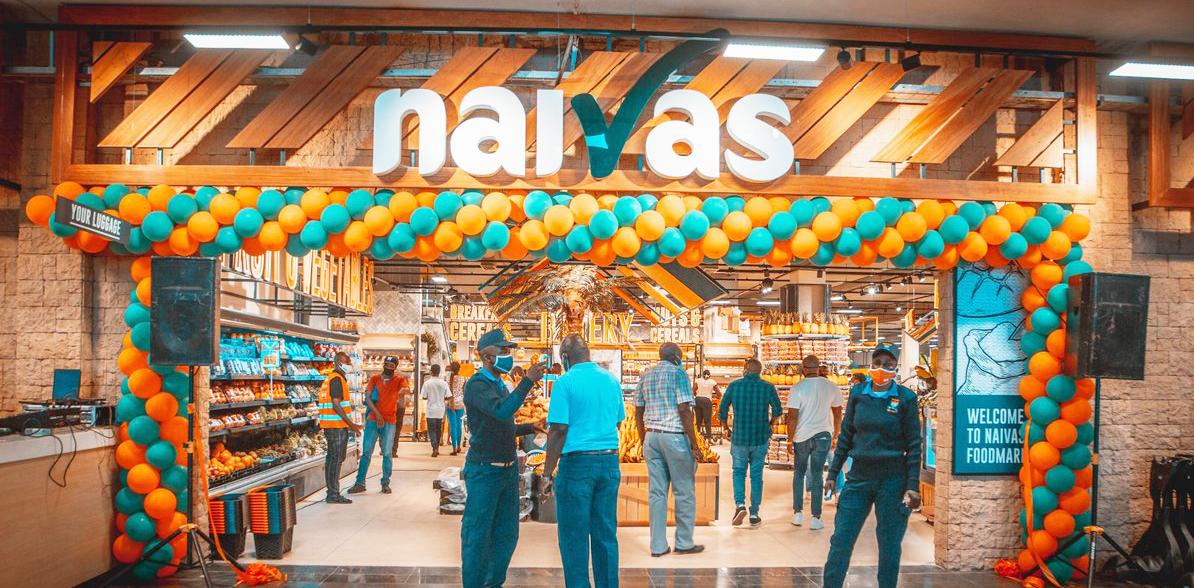
MAY/JUNE 2023 | FOOD BUSINESS AFRICA FOODBUSINESSAFRICA.COM 58
MARKET TRENDS:
IN
RETAIL
AFRICA
KENYA HAS A SIMILAR CASE TO EGYPT WHERE MODERN RETAIL IS RAPIDLY EXPANDING LED BY HOMEGROWN BRAND NAIVAS WHICH IN APRIL 2023 OPENED ITS 92ED BRANCH.
of total trade. Unlike Nigeria where modern retail is struggling, in Morocco it’s the opposite with the largest retailer BIM having more than 550 stores. The closest competitors Marjane and Carrefour each have a respectable store network that is well above the 100-store mark, demonstrating a relatively mature market. In the financial year 2022, Marjane achieved a turnover of US$1.22 billion, providing an insight into the size of operations of these retail companies. With such high store numbers, modern retailers have somehow managed to create a shift toward modern trade with a 2022 survey by Sunergia Group revealing that 33% of Moroccans shop at medium-sized markets and supermarkets at least once a week. In Casablanca, where purchasing power is higher, 43% of respondents said they visit supermarkets at least once a week.

In Egypt, the market is warming up to modern retailers, particularly locally based ones which are emerging rapidly across all formats. Modern formats posted 21% annual growth from 2015 through 2020, according to the BCG report. Their market share over that period rose from 15% to 25%, one of the highest growth rates across the continent. The Kazyon discount supermarket has expanded rapidly in Egypt since 2014, with small-
format stores in underserved lowand middle-income areas. Today, the supermarket chain has over 600 stores in 17 governorates. Other successful Egyptian supermarket chains include Awlad Ragab and Seoudi.
Kenya has a similar case to Egypt where modern retail is rapidly expanding led by homegrown brand Naivas which in April 2023 opened its 92ed branch. A month earlier, close competitor Quickmart opened its 52ed store in the country in push to reach more customers. A late entrant, French supermarket brand operated by UAE-based Majid AL Futtaim,
Carrefour has also expanded its store network to 19, 8 years after it opened its flagship store in Two Rivers Mall, one of the country’s largest malls. In March 2023, Carrefour Kenya posted annual sales of KES40 billion (US$290 million), once again demonstrating the lucrativeness of Kenya’s modern retail. Its however noteworthy to note that Kenya has more than 20 large supermarket chains which account for more than 25% of all retail sales in the country. BCG is optimistic about its outlook for modern trade in Kenya noting that the current leading brands had managed to find the right formulas

FOODBUSINESSAFRICA.COM MAY/JUNE 2023 | FOOD BUSINESS AFRICA 59
MARKET TRENDS: RETAIL IN AFRICA
in terms of format and assortment to address the market and may therefore expand in the future to reach more underserved regions.
INVESTMENTS, MERGERS & ACQUISITION DRIVE GROWTH
Over the past few years, the modern retail segment in Africa has been characterized by increased investment by retail chain owners. In Morocco, LabelVie which operates the carrefour brand in the country has in recent years invested heavily in the supermarket chain’s expansion. In 2022, the company invested US$320 million in capital expenditure including the opening of 19 stores. Revenues that year jumped 19% to US$3.8 billion. In Egypt, Carrefour Egypt, which is owned and operated by Majid Al-Futtaim (MAF) Retail, announced plans to pour significant further investment into the Egyptian market, including EGP400m (US$16 million) in 2023 and EGP750m (US$30 million) through 2025.
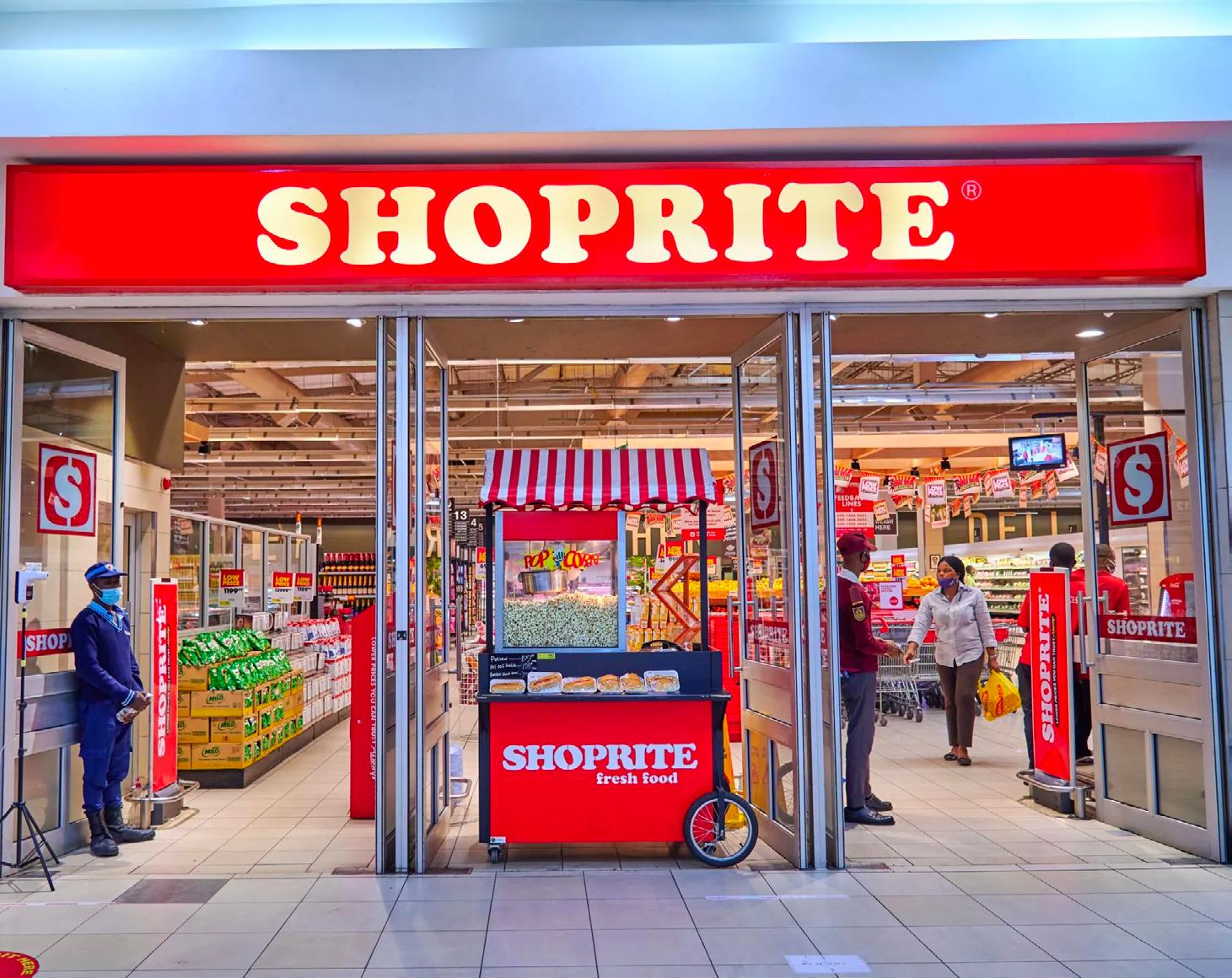
The investments are ostensibly meant to counter competition from Kazyon which in itself has been receiving investment funding from its
KEY NUMBERS
backers. In April 2023, Development Partners International announced that it has injected US$165 million equity investment into Kazyon, alongside co-investors, including British International Investment (BII), South Suez, and others. According to DPI, the investment is expected to accelerate Kazyon’s ambitious growth strategy which includes expanding its retail network which is currently comprised of over 600 stores.
In Kenya, private equity capital, has been monumental in driving modern retail growth. In 2020, a cash-strapped Naivas Limited (Kenya) raised KES6 billion (US$49.8 million) from the sale of a 31.5 percent stake in 2020 to a consortium of investors including the International Finance
Corporation (IFC), private equity firms Amethis and MCB Equity Fund and German sovereign wealth fund DEG. While announcing its exit from the Naivas venture, Amethis noted that during the investment period, Naivas was able to grow its retail network from just 60 to over 84. Today Naivas is nearly approaching 100 stores and has new venture partners in the name of IBL group, A Mauritian conglomerate, and Proparco. Its closest competitor Quick Mart has also benefited greatly from its private equity backers Adenia Partners who have been instrumental in growing the retail chain into the second largest in Kenya. The Majid Al Futtaim-operated Carrefour Kenya enjoys the financial muscle of its parent company which reported revenues of US$9.89 billion in 2023. Today the retailer has managed to grow its network to 19 stores barely 6 years after it first entered the Kenyan market.
In South Africa, it has been a bag full of opportunities and challenges. After having trouble succeeding in the rest of the continent, Shoprite the country’s largest retailer, was forced to retreat back home and strategize. The company closed its operations in Kenya, Uganda, Nigeria, and Madagascar and only maintained its presence in Zambia and Angola. Meanwhile, in South Africa, the company embarked on an expansion drive that saw it acquire Massmart’s non-core food businesses. A local daily, Business Live, recently reported that Shoprite could also be exploring a deal to acquire assets of distressed retailer Choppies South Africa. Still, in South Africa, Walmart Inc has launched a 6.4 billion rand (US$377.6 million) offer for the remaining 47% of South African retailer Massmart it does not already own. "The potential offer, if finalised, will provide Massmart with needed access to ongoing financial and operational support," Massmart said in a statement.
Choppies, the largest retailer in southern Africa outside of South Africa, has also found itself in murky waters
MAY/JUNE 2023 | FOOD BUSINESS AFRICA FOODBUSINESSAFRICA.COM 60
THE VALUE OF RETAIL SALES IN AFRICA IN 2028.
US$500B
after it incurred losses and closure costs of BWP1.7 billion (US$125.35 million) for the now discontinued operations in South Africa, Kenya, Tanzania, and Mozambique. In 2022, the company announced that it was in technical insolvency and may in the future require a recapitalization to strengthen the balance sheet. Having burnt its fingers abroad, the company has decided to refocus its energies back home where its strengths lie. The company opened 13 stores in 2022, 5 of which were opened in Botswana while the remainder were in its rest of Africa operations which include Namibia (4), Zambia (3), and Zimbabwe (1).
The failure of Choppies and Shoprite to replicate their home successes abroad proves what we have been stating throughout this article, that the African retail landscape is diverse and that it is not guaranteed that successes in one market could be easily replicated in another. Carrefour franchise owner Majid Al Futtaim seems to figure out the right formulas in terms of format and assortment to address the different African markets where it has a presence. Its successes in Kenya and Uganda should be given particular focus as these are the same market where both Shoprite and Massmart retreated from after failing to turn a profit.

FUTURE IS MODERN AND LOCAL
Analysts at BCG foresee a future where the retail trade in Africa becomes increasingly modern as the middle class in many countries expands. A precedent for this transition has been set in Morocco where a rise in incomes, particularly in the cities, has resulted in a greater transition to modern trade. Modern retailers here are capitalizing on the opportunity by aggressively expanding their store footprints. We can only
CHOPPIES, INCURRED LOSSES AND CLOSURE COSTS OF BWP1.7 BILLION (US$125.35 MILLION) FOR THE NOW DISCONTINUED OPERATIONS IN SOUTH AFRICA, KENYA, TANZANIA, AND MOZAMBIQUE
expect the same to be replicated elsewhere in the continent as incomes rise. Despite the potential of modern retail, it cannot however be stressed enough, that to succeed, modern retails will need to be local and by that we mean, they need to adopt formats—whether big or small—that are tailored to the needs of their communities. Despite the incursion by modern retail, traditional retail is still expected to continue playing a dominant role in the sector due to the value proposition that it offers customers. If the current trends are anything to go by, the traditional retailers of the future will have more sophisticated business models that leverage opportunities offered by digital solutions to offer new services that align to the present and future needs of the African consumer. FBA
FOODBUSINESSAFRICA.COM MAY/JUNE 2023 | FOOD BUSINESS AFRICA 61
Kerry Group unveils two new sustainable plant-based brewing solutions
IRELAND – Kerry Group, a prominent global taste and nutrition company, has tailored new sustainable plantbased processing aids for enhancing beer quality, improving process efficiency, and delivering cost savings in brewing.

The new products, Biofine Eco and FermCap Eco, which are part of Kerry’s new Eco Range family of plant-based and sustainable brewing solutions, are a collection of tools designed to help brewers create exceptionally consumer-friendly beers while reducing their impact on the environment.
Biofine Eco is an aid that greatly
improves beer clarification while FermCap Eco is a foam-control product that optimizes process
efficiency by increasing fermenter capacity, improving hop utilization, and eliminating over-foaming and beer waste.
A consistent performer, Biofine Eco delivers more compact yeast sedimentation, removes haze during the brewing process, and is more economical to use. It has been developed as a chemical and allergen-free alternative to traditional clarification aids.
Kerry also explained that FermCap Eco has been developed to be a more sustainable alternative to traditional silicon-based anti-foam products when crossflow filtration is used.
Aleph Farms partners with Enzymit biotech company to develop alternatives for cultivated meat production
cellular agriculture, will help build the foundations for the sector to achieve cost-efficiency and long-term impact, the partners said.
Besides reducing the cost and time associated with the production of insulin proteins, this collaboration opens the door to further potential benefits.
ISRAEL – Israeli-based cultivated meat company, Aleph Farms, in partnership with Enzymit biotech company, has successfully developed a new processing aid for animalfree serum in the form of insulin-like proteins to support cell growth in cultivated meat processing.
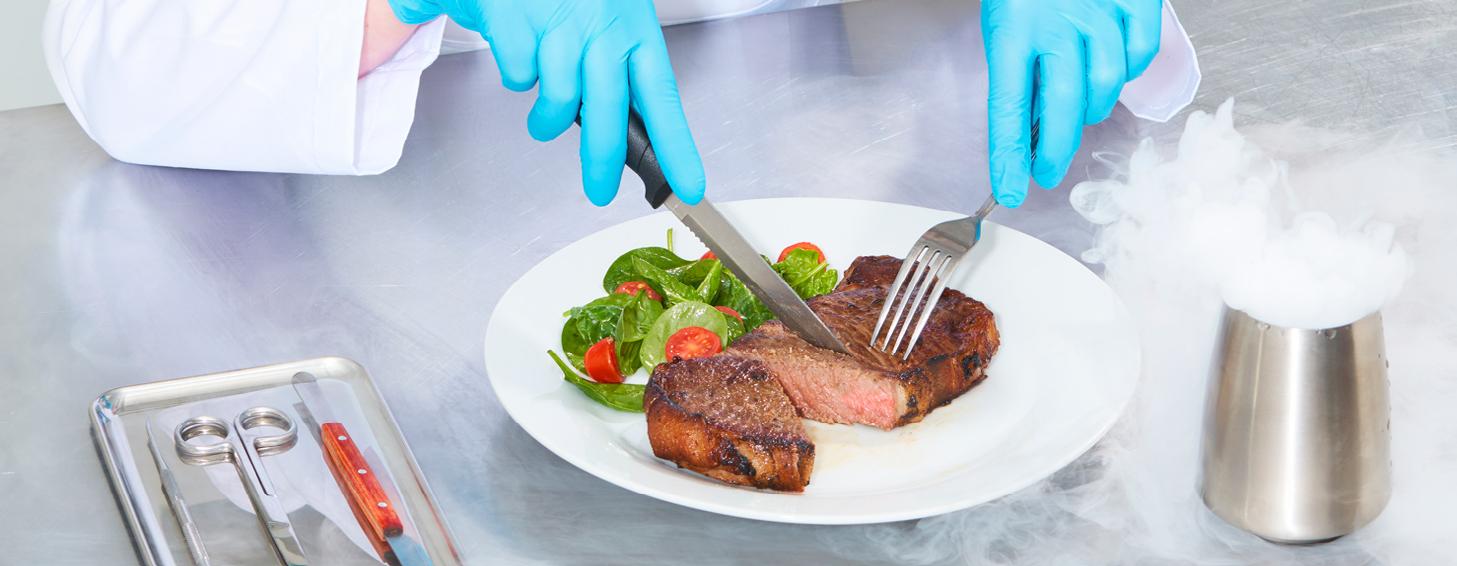
According to Aleph Farms, the cultivated meat industry is growing rapidly but relies on expensive and low-scale pharmaceutical inputs that often do not meet the requirements for cell growth in bioreactors.
“Developing more suitable processing aids for the production
of cultivated meat is imperative for driving economies of scale and taking cultivated meat mainstream,” said Aleph Farms.
Aleph Farms further explained that insulin proteins are not widely available in quantity, quality, and cost for large-scale production, therefore, to grow slaughter-free meat, they must develop non-animal-derived processing aids to advance their operations.
The innovation, combining Enzymit’s outstanding protein design and experimental capabilities with Aleph Farms team’s expertise in
MAY/JUNE 2023 | FOOD BUSINESS AFRICA FOODBUSINESSAFRICA.COM 62
SUPPLIER NEWS & INNOVATIONS NEW PRODUCT
ACCORDING TO ALEPH FARM, THE CULTIVATED MEAT INDUSTRY IS GROWING RAPIDLY BUT RELIES ON EXPENSIVE PHARMACEUTICAL INPUTS
Azelis deepens roots in Latin America with acquisition of ingredients specialist Vogler
specialty ingredient distributor, active in the food & nutrition and animal nutrition markets.
With over 130 experienced employees, the company operates three full-service application laboratories at its headquarters in São Paulo and a regional office in Recife, serving over 2,000 food and animal feed producers.
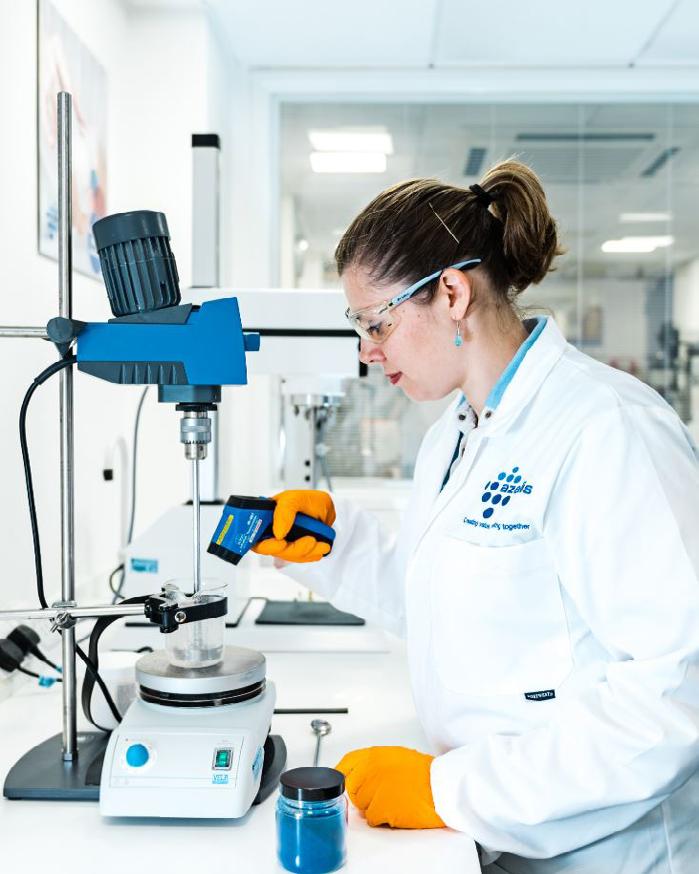
Azelis said the Vogler acquisition represents a strategic expansion of the group’s footprint in the largest economy in Latin America, reinforcing its focus on executing its regional growth strategy.
the business post-closing, remarked that the company was delighted to become part of Azelis, a move that will allow Vogler to enter new markets and serve existing ones better.
BRAZIL – Azelis, a global multi-industry ingredient company headquartered in Belgium, has agreed to acquire majority shares in Vogler Ingredients Ltd, a legendary specialty distributor of food ingredients in Brazil.
Vogler is a Brazil-based leading
Azelis will benefit from Vogler’s long-standing relationships with global blue-chip principals, existing product portfolio, and market expertise, significantly allowing the group to accelerate its growth strategy in the region.
João Viveiros, who will remain the General Director of Vogler and lead
acquires Spanish producer of flavors solutions Calaf Nuances

Nactarome
ITALY – Nactarome, a Europe-based group of ingredient companies, has marked its fourth acquisition this year, by snapping up a Spanish-based producer of flavors solutions with broad application expertise across F&B categories, Calaf Nuances.
The Spanish flavor solutions provider is said to have a large group of loyal customers based internationally across Spain, Europe, and Mexico. It has in-house technologies, including biotransformation, Maillard reactions, distillation, concentration, and encapsulation.
Nactarome indicated that Calaf Nuances will provide “an interesting
addition to its range of sweet and savory flavors and blends for F&B.”
On 9th May, Nactarome completed its third acquisition, purchasing Royal Buisman, a Dutch producer of natural, clean-label caramel ingredients, which would help to create a strategic presence in the Netherlands.
Nactarome specializes in the production of natural flavors, colors, and functional ingredients for the food & beverage industry.
In the last five years, Nactarome has expanded its operations, which now comprises 13 production sites and over 550 employees.
FOODBUSINESSAFRICA.COM MAY/JUNE 2023 | FOOD BUSINESS AFRICA 63 ACQUISITION
THE VOLGER ACQUISITION REPRESENTS A STRATEGIC EXPANSION OF THE GROUP'S FOOTPRINT IN THE LARGEST ECONOMY IN LATIN AMERICA
DSM-Firmenich completes mega-merger in Ingredient space
Canadian cooling equipment provider FPS Food Process Solutions opens MEA hub in Morocco
MOROCCO – FPS Food Process Solutions (FPS), a global leader in turnkey freezing and cooling equipment, has inaugurated its new Middle East/ Africa (MEA) office in the Tanger Med port facility in Morocco to serve as a regional hub.
The FPS MEA office will enhance logistics and operational efficiency across the Middle East and Africa, offering value-added services such as sales, parts, services, and retrofits to FPS customers.
“By utilizing the Hub’s infrastructure,
we can reduce costs, provide greater efficiency, and still meet world-class standards. This will only help to meet customer expectations, a massive benefit for both sides,” stated Jeffrey Chang, President of FPS Food Process Solutions Corp.
The company emphasized that the new location enables both the business and its clients to leverage world-class hub services and substantial cost savings, thanks to the infrastructure at the Tanger Hub Port Facility.
NETHERLANDS – DSM, and Firmenich, two-ingredient giants, have completed their planned merger which was first announced in May 2022, and will now be trading as DSM-Firmenich.

At the time, the two Dutch food ingredient companies noted that they aimed to create an ‘industry leader’ via a ‘merger of equals,’ to combine their respective strengths across the flavors, fragrances, and nutritional ingredients segments.
The completion of the merger has combined their capabilities bringing along a team of nearly 30,000 employees, a combined revenue of more than €12bn, and what its decision-makers describe as ‘unparalleled’ capabilities built on more than a century of ‘cutting-edge’ science.
DSM-Firmenich will be composed of four business units: Animal Nutrition & Health, delivering healthy animal proteins efficiently and sustainably, harnessing the power of data to make animal farming practices more sustainable, productive, and transparent.
Ralf Schmeitz will become the new chief financial officer and will join the executive board effective September 1.
INNOVATION HUB
Doehler opens new innovation hub in North Brunswick
US – Doehler, a global provider of technology-driven natural ingredients, has inaugurated a new office and lab hub in North Brunswick, USA.
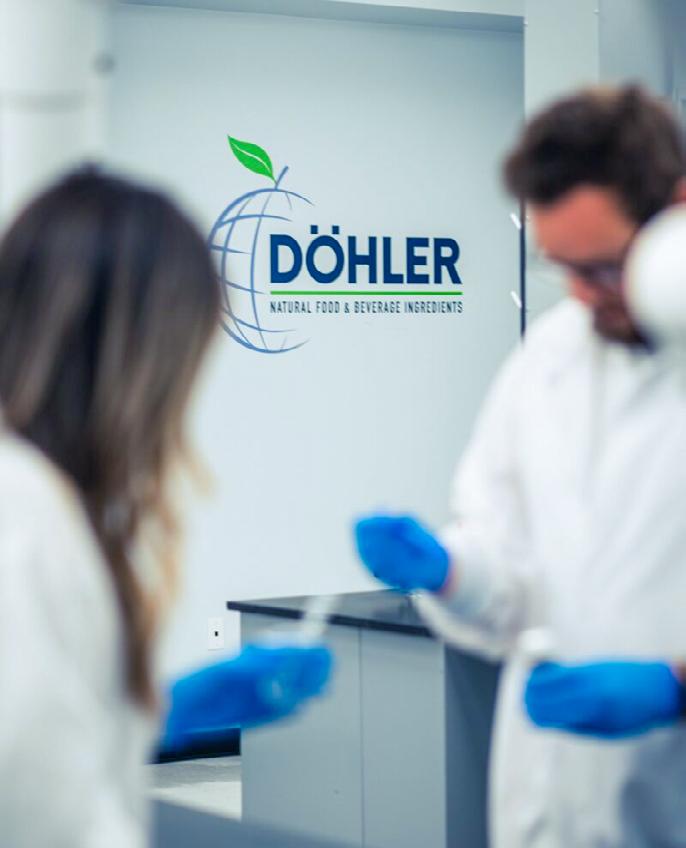
The more than 12,000 square feet of laboratory space of the flavour analytics laboratory is equipped with both volatile and non-volatile capabilities, as well as a functional extraction laboratory.
According to the company’s CEO, Paul Graham, the investment in the North Brunswick hub reflects the company’s commitment to meeting the evolving needs of the U.S. food and beverage industry.
As part of the new technology installed in the hub, Doehler has also outlined its imminent plans to utilize ultramodern sampling technology, where customers can enjoy faster, more agile, and higher-quality sampling.
In addition to the new North Brunswick hub, Doehler will also expand its Cartersville plant, which will include an automated flavour
production facility and bring additional capacity, customer-facing meeting spaces, and administrative offices.
All these efforts are channeled at tapping into the ever-growing flavour food and beverage market that Fortune Business Insights projects to experience a CAGR of 4.64%, reaching US$20.12 billion by 2028.
MAY/JUNE 2023 | FOOD BUSINESS AFRICA FOODBUSINESSAFRICA.COM 64 SUPPLIER NEWS & INNOVATIONS
MARKET EXPANSION
Keep up to date with the food, beverage & milling industry in Africa Subscription form

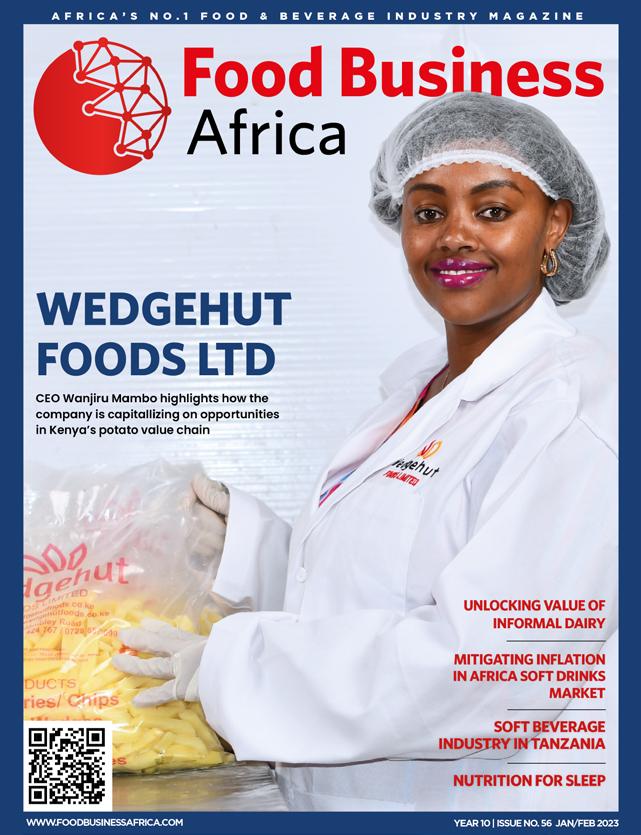

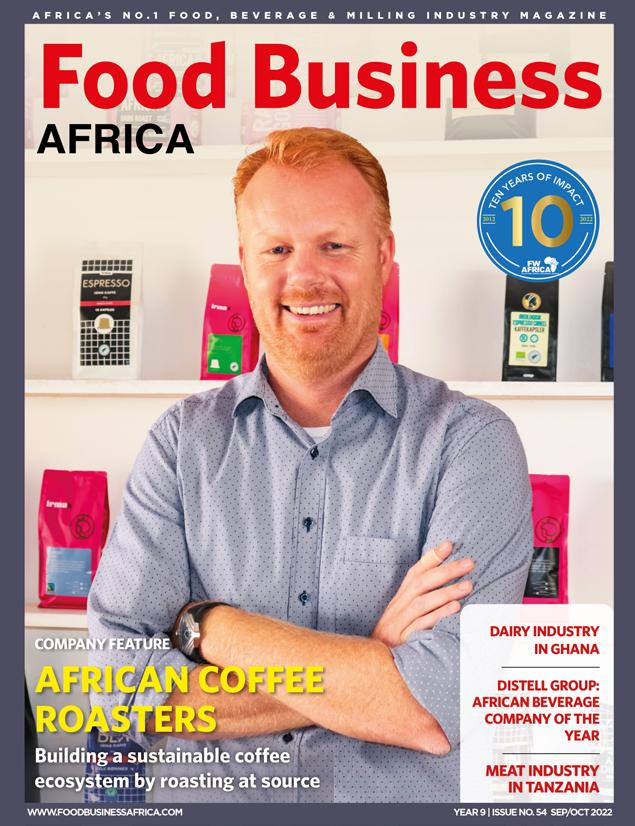
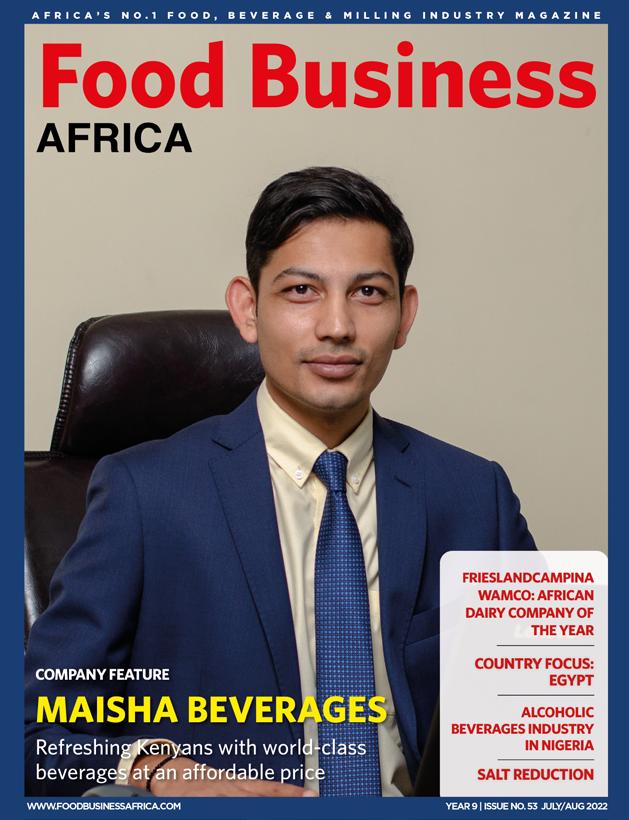
Please complete the following details
Telephone: Website:
Email:
What best describes your main business activity (e.g. dairy, banking, consultant, packaging supplier, NGO)
What best describes your job:
Chairman, CEO, Director General Management
Sales/Marketing
QA/R&D
Others (specify)
NOTE: An invoice will be generated once we receive this form
Would you like us to have a feature on your company? Yes
Applicant’s Signature & Stamp:
Date:
Purchasing/Supply chain
Process Management
Subscribe Name: Company: P.O. Box:
Town: Physical
Country:
Post code:
Location:
FOODWORLD MEDIA LTD T/A FW AFRICA PO BOX 1874 - 00621 Village Market, Nairobi, KENYA Tel: +254 20 8155022 | Cell: +254 725 343932 Email: info@fwafrica.net Corporate Website: www.fwafrica.net
KENYA REST OF AFRICA REST OF WORLD 1 year KSh 5,900 USD 120.00 USD 200.00 2 years KSh 11,500 USD 220.00 USD 380.00
DETAILS OF SUBSCRIPTION * Food Business Africa is published 6 times a year. Prices inclusive of airmail where applicable
Get your own personal copies Number
Number of
of copies
years
AFRICA
BUSINESS SUMMIT
Nairobi, Kenya
INCORPORATING:

The Africa Business Summit is the ground-breaking conference and exhibition that brings together the key decision makers to define the future of business innovation, strategic leadership and the transformation of Africa, as we approach 2030 and beyond.


The program at the 3-day Summit will comprise of high-level keynote speeches and panel discussions plus sponsored industry and country-focused sessions. It will also feature fireside chats with influential people and change makers who are making waves – and inspiring the next phase of leaders in Africa
www.africabusinesssummit.biz

* *

JUNE 12-14, 2024
Digitizing Africa Strategic Leadership in Africa Connecting & Trading In Africa Healthier Africa Industralising Africa Investing In Africa Sustainable Africa Powering Africa Feeding Africa
KEY AGENDAS
SCAN ME
The Africa CEO & Leadership Forum





















































































 WILLIAM BRENT Chief Marketing Officer at Husk Power Systems
ASHISH PANDE Country Head, Olam Agri, Nigeria
ESSAM EL-MADDAH HR & General Secretary Director, Danone Egypt & North East Africa
KEVIN SHAH Managing Director, ACEteK Software
CLAUDIA CASTELLANOS Managing Director, Black Mamba
MARGARET KIBOGY Managing Director, Kenya Dairy Board
GAURAV VJ CEO, 260 Brands
MATTHIAS GRABE Managing Director, Buhler East Africa
PALOMA FERNANDES, OGW CEO, Cereal Millers Association, Kenya
DR. KEN MUMA CEO, AAR Hospital
WILLIAM BRENT Chief Marketing Officer at Husk Power Systems
ASHISH PANDE Country Head, Olam Agri, Nigeria
ESSAM EL-MADDAH HR & General Secretary Director, Danone Egypt & North East Africa
KEVIN SHAH Managing Director, ACEteK Software
CLAUDIA CASTELLANOS Managing Director, Black Mamba
MARGARET KIBOGY Managing Director, Kenya Dairy Board
GAURAV VJ CEO, 260 Brands
MATTHIAS GRABE Managing Director, Buhler East Africa
PALOMA FERNANDES, OGW CEO, Cereal Millers Association, Kenya
DR. KEN MUMA CEO, AAR Hospital













































































































 By Mary Wanjira
By Mary Wanjira







 By Abel Ndeda
By Abel Ndeda











 By Martha Kuria
By Martha Kuria









 By Alphonce Okoth
By Alphonce Okoth



































